



AMG REVIEW:
Inspired by Chris Marker's benchmark 1962 short film La Jetee, director Terry Gilliam continues his examination of the real versus the surreal in this mind-bending piece of science fiction. In a vein typical of Gilliam's oeuvre, the film leaps through time almost at will, which produces uneven results. Obviously a play on genre conventions, 12 Monkeys succeeds at creating its various worlds (all with various degrees of grunge and gloom). However, the film spirals off in so many directions it's sometimes a trial to keep track -- but it's also this very quality that keeps it interesting and engaging. Very much a visceral film above all else, Gilliam extracts solid turns from his actors, including a nicely understated Bruce Willis and a cheerfully (and entertainingly) manic Brad Pitt, a surprise Oscar nominee for his supporting role. Almost ten years after the highly publicized director vs. studio debacle with the director's acclaimed 1985 film Brazil, Gilliam and Universal had obviously patched things up, as they distributed this film to great financial success and a place as one of the leading cult favorites of the 1990s. -- Jason Clark
AWARDS:
Best Costume Design (nom) - Julie Weiss - 1995 Academy
Best Supporting Actor (nom) - Brad Pitt - 1995 Academy
Best Supporting Actor (win) - Brad Pitt - 1995 Golden Globe




A mind-bending sci-fi symphony, Stanley Kubrick's landmark 1968 epic pushed the limits of narrative and special effects toward a meditation on technology and humanity. Based on Arthur C. Clarke's story "The Sentinel", Kubrick's and Clarke's screenplay is structured in four movements. At the Dawn of Man, a group of hominids encounters a mysterious black monolith alien to their surroundings. To the strains of Strauss' "Thus Spoke Zarathustra," a hominid discovers the first weapon, using a bone to kill prey. As the hominid tosses the bone in the air, Kubrick cuts to a 21st- century space craft hovering over the earth, skipping ahead millions of years in technological development only to imply that man hasn't advanced very far at all psychologically. U.S. scientist Dr. Heywood Floyd (William Sylvester) travels to the moon to check out the discovery of a strange object on the moon's surface: a black monolith. As Floyd touches the mass, however, a piercing sound emitted by the object stops his fellow investigators in their path. Cutting ahead 18 months, impassive astronauts David Bowman (Keir Dullea) and Frank Poole (Gary Lockwood) head towards Jupiter on the space ship Discovery, their only company three hibernating astronauts and the vocal, man-made HAL 9000 computer running the entire ship. When the all-too-human HAL malfunctions, however, he tries to murder the astronauts to cover his error, forcing Bowman to defend himself the only way he can. Free of HAL, and finally informed of the voyage's purpose by a recording from Floyd, Bowman journeys to "Jupiter and Beyond the Infinite," through the psychedelic slit-scan Star-Gate to an 18th century room, and the completion of the monolith's evolutionary mission. With assistance from special effects expert Douglas Trumbull, Kubrick spent over two years meticulously creating the most "realistic" depictions of outer space ever seen, greatly advancing cinematic technology for a story expressing grave doubts about technology itself. Despite some initial critical reservations that it was too long and too dull, 2001 became one of the most popular films of 1968, underlining the generation gap between young moviegoers who wanted to see something new and challenging and oldsters who "didn't get it." Provocatively billed as "the ultimate trip," 2001 quickly caught on with a counterculture youth audience open to a contemplative, i.e. chemically enhanced, viewing experience of a film suggesting that the way to enlightenment was to free one's mind of the U.S. military-industrial-technological complex. -- Lucia Bozzola
AMG REVIEW:
Stanley Kubrick rewrote the book on what a mainstream, major-studio motion picture could look, sound, and feel like with this groundbreaking work. At a time when science fiction on screen meant bug-eyed monsters menacing scantily clad women, 2001: A Space Odyssey was a visually dazzling and intellectually challenging experience. Kubrick abandoned narrative convention to tell four tangentially related stories about man's destiny, reflected in the conquest of space. Kubrick also insisted that a story set in outer space should look like it was taking place in outer space, and his special effects team (headed by Douglas Trumbull) created some of the most stunning visual effects to appear on screen before or since. Unlike the effects-laden films that followed in the wake of Star Wars, the imagery in 2001 doesn't slow the story but helps move it along, and it creates a genuine sense of wonder about the beautiful, dangerous vastness of space. Kubrick's embrace of avant-garde music and abstract visual textures brought experimental art to an audience that had no exposure to the works of such '60s avant-garde filmmakers as Stan Brakhage or Jordan Belson, and the film's resulting "trippy" atmosphere greatly increased its popularity (and revenue) as a late 1960s drug movie. Still as richly thought-provoking as ever, 2001: A Space Odyssey remains a watershed work in '60s cinema and lives up to its billing as "the ultimate trip." -- Mark Deming
AWARDS:
Best Art Direction (nom) - Harry Lange - 1968 Academy
Best Art Direction (nom) - Tony Masters - 1968 Academy
Best Art Direction (nom) - Archer, Ernie - 1968 Academy
Best Director (nom) - Stanley Kubrick - 1968 Academy
Best Original Screenplay (nom) - Arthur C. Clarke - 1968 Academy
Best Original Screenplay (nom) - Stanley Kubrick - 1968 Academy
Best Visual Effects (win) - Stanley Kubrick - 1968 Academy
Best Art Direction (win) - Archer, Ernie - 1968 British Academy Awards
Best Art Direction (win) - Harry Lange - 1968 British Academy Awards
Best Art Direction (win) - Tony Masters - 1968 British Academy Awards
Best Cinematography (win) - Geoffrey Unsworth - 1968 British Academy Awards
Best Film - Stanley Kubrick - 1968 British Academy Awards
Best Soundtrack (win) - Winston Ryder - 1968 British Academy Awards
Best Director (nom) - Stanley Kubrick - 1968 Directors Guild of America
10 Best Films - 1968 National Board of Review of Motion Pict
Best Direction - Stanley Kubrick - 1968 New York Film Critics Circle
Best Film - Stanley Kubrick - 1968 New York Film Critics Circle
Best Screenwriting - Stanley Kubrick - 1968 New York Film Critics Circle
Best Screenwriting - Arthur C. Clarke - 1968 New York Film Critics Circle
U.S. National Film Registry (win) - 1991 Library of Congress
100 Greatest American Movies (win) - 1998 American Film Institute




AMG REVIEW:
Kevin Costner puts the finishing touches on a major career slump with this ultra-bad crime thriller that would have been passé (and just as ghastly) five years earlier. Positioned as a goofy, comic action flick, 3000 Miles to Graceland is in actuality a soulless, vile enterprise utterly devoid of human feeling or thought, chock full of pointless blood, mayhem, and carnage. The depiction of women is deplorable not just for its archaic reprehensibility but also for its sheer plot-bending senselessness. Example number one: A mother (Courtney Cox-Arquette), characterized throughout the film as loving and attentive, abandons her beloved son with a stone-cold killer for a long section of the narrative, apparently because she finds his taste for waving a gun in her face just ginchy. Example number two: In many a noir crime tale, the central anti-heroes are presented as likable simply by contrast to the sheer villainy and corruptibility of the so-called "ordinary" folks they encounter. In noir, everyone's on the make, a venerable conceit stretching back to Philip Marlowe and Sam Spade. The level of understanding that director Demian Lichtenstein brings to this hallowed device becomes clear in a sequence depicting Murphy (Costner) liberating a teen sex abuse victim from a loathsome gas station attendant. The teen nymphet character is speedily dropped -- in the most sexist, stomach-turning fashion imaginable -- and it becomes clear that Lichtenstein has used a narrative tradition in order to stage a really cool explosion that he can film from a variety of angles, sending the film's already jaw-dropping lack of credibility to new heights. Never has a film worked so hard to be dubbed "Tarantino-esque," but unlike the films of Quentin Tarantino, which are seeped in character and dexterous plot confabulations, music video director Lichtenstein's debut feature is soaked in caricature, twisting like a dying carp all over the literal and figurative terrain of its genre, desperate to introduce some gratifying plot point while never delving deeper into any of its characters than an interstitial cartoon. Moments that are meant to play as sleek and cool, such as a stroll through a casino by Elvis-impersonating rip-off artists (in an umpteenth nod to a scene from 1983's The Right Stuff), fall hopelessly flat, making the film unintentionally hilarious and thereby entertaining in ways never planned by its creators. Virtually unwatchable, 3000 Miles to Graceland is one of the worst films of 2001 or any other year. -- Karl Williams


Tom Welles (Nicolas Cage) is a surveillance expert on the rise. He's living the American dream with a wife, Amy (Catherine Keener), infant daughter, and a house in the suburbs of Harrisburg, Pennsylvania. After the completion of an assignment for a U.S. Senator, Welles is summoned to the house of a recently deceased captain of industry. His widow, in settling his estate, has discovered an 8MM film in her late husband's private safe. The silent short depicts the apparent murder of a young woman by a large, masked figure, what is known as a "snuff" film. Greatly disturbed by the film's contents, the widow hires Welles to find the identity of the woman and determine if she is still alive. Welles finds the girl's identity and follows her trail from the time she ran away from home to Hollywood. Once there, Welles meets adult bookstore clerk Max California (Joaquin Phoenix) to act as Virgil to Welles' Dante. As the two begin their descent into the world of underground pornography, the detective grows more and more distant from his family, as if he cannot shake the taint of the world in which he now walks. Tom and Max eventually meet pornographers Dino Velvet (Peter Stormare) and Eddie Poole (James Gandolfini). By this time the detective finds he can no longer walk out of the inferno. -- Ron Wells
AMG REVIEW:
To some critics, 8MM represented director Joel Schumacher hitting rock bottom after ruining the Batman franchise, with Nicolas Cage joylessly coming along for the ride. But unsavory subject matter alone is not enough to condemn this uncompromising look into the fetishistic underworld of hardcore pornography, which the viewer enters through a hardened family man and private investigator (Cage) investigating an apparent snuff film found in the private belongings of a dead billionaire. Film noir at its best, or maybe worst, 8MM gained notoriety for its perhaps unsurprising level of brutality, particularly in the frankness of the pornographic images that stretch its R rating. But Schumacher and Cage deserve some credit for the unflinching way they immerse themselves in the subject matter without apparent regard for the stain to their reputations. Furthermore, the film avoids some of the more nauseating clichés that often attend any film in which the hero's darling wife (an underused Catherine Keener) and infant daughter are among the first introduced. Its relentlessly unhappy outlook will turn off some viewers, and there are none of the stylistic advances that characterize the best in film noir. But the sheer audacity of this perverse yet fascinating topic may awaken the curiosity of those who can hold their meals down. -- Derek Armstrong

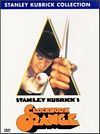
Stanley Kubrick dissects the nature of violence in this darkly ironic, near-future satire, adapted from Anthony Burgess's novel, complete with "Nadsat" slang. Classical music-loving proto-punk Alex (Malcolm McDowell) and his "Droogs" spend their nights getting high at the Korova Milkbar before embarking on "a little of the old ultraviolence," such as terrorizing a writer, Mr. Alexander (Patrick Magee), and raping his wife while jauntily warbling "Singin' in the Rain." After he's jailed for bludgeoning the Cat Lady (Miriam Karlin) to death with one of her phallic sculptures, Alex submits to the Ludovico behavior modification technique to earn his freedom; he's conditioned to abhor violence through watching gory movies, and even his adored Beethoven is turned against him. Returned to the world defenseless, Alex becomes the victim of his prior victims, as Mr. Alexander using Beethoven's Ninth to inflict the greatest pain of all. When society sees what the state has done to Alex, however, the politically expedient move is made. Casting a coldly pessimistic view on the then-future of the late 1970s-early 1980s, Kubrick and production designer John Barry created a world of high-tech cultural decay, mixing old details like bowler hats with bizarrely alienating "new" environments like the Milkbar. Alex's violence is horrific, yet it is an aesthetically calculated fact of his existence; his charisma makes the icily clinical Ludovico treatment seem more negatively abusive than positively therapeutic. Alex may be a sadist, but the state's autocratic control is another violent act, rather than a solution. Released in late 1971 (within weeks of Sam Peckinpah's brutally violent Straw Dogs), the film sparked considerable controversy in the U.S. with its X-rated violence; after copycat crimes in England, Kubrick withdrew the film from British distribution until after his death. Opinion was divided on the meaning of Kubrick's detached view of this shocking future, but, whether the discord drew the curious or Kubrick's scathing diagnosis spoke to the chaotic cultural moment, A Clockwork Orange became a hit. On the heels of New York Film Critics Circle awards as Best Film, Best Director, and Best Screenplay, Kubrick received Oscar nominations in all three categories. -- Lucia Bozzola
AMG REVIEW:
After the visionary journey through space and time of 2001: A Space Odyssey, Stanley Kubrick offered a very different look at the future (which seemed uncomfortably close to the present) in A Clockwork Orange. But if one has to compare A Clockwork Orange to any of Kubrick's other films, it comes closest to Dr. Strangelove: for all its horrific violence and troubling moral ambiguity, it is ultimately a satire, and, like Dr. Strangelove, it wrings a shocking amount of humor from situations that few people would think of as funny. With the notable exception of Alex (Malcolm McDowell in the best performance of his career), most of the characters are little more than cartoons (with dialogue to match), while a great deal of the violence walks a fine line between "Looney Tunes" absurdity and crushingly vivid brutality. Kubrick's future state is often garish and ugly, veering between an amusingly hideous riot of color and texture gone wrong and the decaying remnants of a cinder-block nation (remarkably, Kubrick and production designer John Barry built only one set for the entire film, with everything else shot on existing locations that were dressed in "futuristic" style). And Kubrick throws in plenty of crude comic relief that suggests some degenerate variation on a Carry On film; from the overexcited school representative to the doctor and nurse enjoying recreational sex as Alex regains consciousness, Kubrick places his grim vision in an England where foolish absurdity is the order of the day. And while Alex seems one of the few characters capable of making a complex moral choice (never mind how sinister his choices happen to be), he also takes his choice more seriously than anyone else in the film. Alex has adopted violent hedonism not out of profit, politics, or pragmatism, but because he likes it, and, while this makes him difficult to admire, he's still the smartest and freest man in the film's moral universe. -- Mark Deming
AWARDS:
Best Adapted Screenplay (nom) - Stanley Kubrick - 1971 Academy
Best Director (nom) - Stanley Kubrick - 1971 Academy
Best Editing (nom) - Bill Butler - 1971 Academy
Best Picture (nom) - 1971 Academy
Best Director (nom) - Stanley Kubrick - 1971 Directors Guild of America
Best Actor - Malcolm McDowell - 1971 New York Film Critics Circle
Best Direction (win) - Stanley Kubrick - 1971 New York Film Critics Circle
Best Film (win) - Stanley Kubrick - 1971 New York Film Critics Circle
Best Screenwriting - Stanley Kubrick - 1971 New York Film Critics Circle
Best Film - Stanley Kubrick - 1972 British Academy Awards
100 Greatest American Movies (win) - 1998 American Film Institute

In 1998, Andrew Lau's groundbreaking smash hit The Storm Riders came out of nowhere and resurrected the ailing Hong Kong film industry. Lau's follow-up, using much of the same cast and crew, is another martial arts epic set largely in New York's Chinatown. The film opens in the early 20th century with a young Hero Wah (Ekin Cheng) going to study under Master Pride (Anthony Wong). When he returns to his parents, he learns that they have been murdered by a band of evil Westerners. After impregnating his wife Jade (Kristy Yang), Hero Wah ventures to New York in search of his parents' killers. Sixteen years later, Hero's son Sword Wah (Nicholas Tse) along with family friend Sang (Jerry Lamb), arrive at Ellis Island in search of Hero's dad. Once the tearful reunion finally takes place, much of the rest of the story is related through flashbacks involving a fearsome fight with Japanese ninjas and the death of Jade at the hands of the ninja ring leader. The film climaxes a la Alfred Hitchcock or Remo Williams: The Adventure Begins (1985) with a battle to the death against the ninja grand master at the Statue of Liberty. -- Jonathan Crow

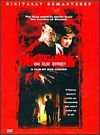
A decade of wisecracking sequels have not diminished the power of this striking horror film from the director of Scream. Teenagers in a small town are dropping like flies, apparently in the grip of mass hysteria causing their suicides. A cop's daughter (Heather Langenkamp) traces the cause to child molester Fred Krueger (Robert Englund), who was burned alive by angry parents many years before. Krueger has now come back in the dreams of his killers' children, claiming their lives as his revenge. The teenaged leads are sympathetic and intelligent, unlike the dumb victims presented in most films of the period, and they are ably backed up by veterans like John Saxon and Ronee Blakley. Director Wes Craven creates moments of real dread by examining the line between nightmares and reality, as well as the "sins of the parents" theme, and although the film is quite gory, it never resorts to cheap bloodletting for its effect. A unique and disturbing experience, this film is highly recommended for horror buffs. -- Robert Firsching
AMG REVIEW:
Behold the horror epic that started the Krueger craze and the Elm Street franchise. This low-budget effort not only put frightmaster Wes Craven on the map, but it slashed new life into the dying horror genre. Nightmare on Elm Street is a surreal and artistic experiment in dark and bloody filmmaking, levitating above the senseless gorefests seen in Friday the 13th. Built upon a brilliant premise, Elm Street became known as a near-masterpiece of post-'70s terror that skillfully blurred the line between reality and fantasy. The character of Freddy Kreuger instantly joined the ranks of infamous modern horror villains. While Jason Vorhees and Michael Myers were steadfast and robotic, Freddy was a humorous sadist who refused to hide behind a mask. The dreamscape and surreal atmosphere that Craven creates is a key reason why A Nightmare on Elm Street remains so haunting to this day. Cinematographer Jacques Haitkin knows how to use shadow and light to his advantage, most notably in the trippy and eerie basement scenes and the moment in which a character is dragged across the ceiling. For a movie with a budget just over $1 million, Elm Street possesses a surprisingly stylish look; even the low-grade special effects manage to be effective. The film is tailor-made for those who like their gore coupled with smart and inventive ideas, a rarity in the horror genre. -- Adam Goldberg




Based on the 1969 short story Super-Toys Last All Summer Long by Brian Aldiss, this science fiction fantasy bears similarities to Pinocchio (1940) and originated as a long-gestating project of director Stanley Kubrick that passed to his friend Steven Spielberg after Kubrick's death. Haley Joel Osment stars as David, a "mecha" or robot of the future, when the polar ice caps have melted and submerged many coastal cities, causing worldwide starvation and human dependence upon robotic assistance. The first mecha designed to experience love, David is the "son" of Henry (Sam Robards), an employee of the company that built the boy, and the grief-stricken Monica (Frances O'Connor). David is meant to replace the couple's hopelessly comatose son, but when their natural child recovers, David is abandoned and sets out to become "a real boy" worthy of his mother's affection. Along the way, David is mentored by a pleasure-providing mecha named Gigolo Joe (Jude Law) and a talking "super toy" bear named Teddy. His adventures take him to the Roman Circus-style "Flesh Fair," where mechas are destroyed for the amusement of humans; Rouge City, where Gigolo Joe narrowly avoids capture by police; and finally a submerged New York City, where David's creator William Hurt reveals the secrets of the boy's creation. Brendan Gleeson and narrator Ben Kingsley co-star in A.I., which was adapted from Kubrick's treatment by Spielberg, in his first crack at screenwriting since Close Encounters of the Third Kind (1977). -- Karl Williams
AMG REVIEW:
A.I. is a heady, but surprisingly mournful blend of styles from two filmmakers whose disparate artistic points of view mix uncomfortably yet produce fascinating results. This highly anticipated science fiction fable is a somber meeting of Pinocchio (1940) and the dystopian visions of humankind's downfall that fueled such futuristic films as Soylent Green (1973), Logan's Run (1976), and Blade Runner (1982). Despite the obvious parallels with the Disney feature, this emotionally wrenching picaresque is a lot closer in cynical spirit to the latter films, the story's dim view of humanity's woes astonishing coming from director Steven Spielberg, whose tastes until recently ran to the sickly sentimental. Blame it on Stanley Kubrick, whose sardonic take on humankind might have made this long-simmering but aborted project even darker still, had he lived to complete it. His and Spielberg's worldviews are ill-suited bedfellows and the final result shows it: depressing but poignant, by turns silly and heartbreaking, with an ending that will either leave viewers giddy with awe or giggling with glee (or both). Still, while the film unfolds schizophrenically, it also benefits from this multiple personality aesthetic by creating a welcome, though never quite satisfied ache for the hero's woes to be assuaged. Spielberg sets viewers up for rousing psychological completion à la E.T. (1982), but channeling Kubrick, he heads for a slightly different destination. So it is that in an age when all films must, according to corporate dictates, end happily or in buckets of tears, the quiet dignity of the film's final curtain call is a stunner. Notice must be paid to young actor Haley Joel Osment, probably the best child actor since Jodie Foster and one of a miniscule handful ever to succeed on acting talent and not apple-cheeked, adorable precocity. A.I. is not the classic it should have been, but it's one of the most unusual, eccentrically enchanting films of either director's resume, and probably the biggest-budgeted experimental film ever made. -- Karl Williams
AWARDS:
Best Original Score (nom) - John Williams - 2001 Academy
Best Visual Effects (nom) - Scott Farrar - 2001 Academy
Best Visual Effects (nom) - Michael Lantieri - 2001 Academy
Best Visual Effects (nom) - Dennis Muren - 2001 Academy
Best Visual Effects (nom) - Stan Winston - 2001 Academy
Best Cinematography (nom) - Janusz Kaminski - 2001 American Film Institute
Best Digital Effects (nom) - Scott Farrar - 2001 American Film Institute
Best Digital Effects (nom) - Dennis Muren - 2001 American Film Institute
Best Production Design (nom) - Rick Carter - 2001 American Film Institute
Best Supporting Actress (nom) - Frances O'Connor - 2001 American Film Institute
Best Special Visual Effects (nom) - 2001 British Academy Awards
Best Composer (nom) - John Williams - 2001 Broadcast Film Critics Association
Best Young Actor/Actress (nom) - Haley Joel Osment - 2001 Broadcast Film Critics Association
Best Director (nom) - Steven Spielberg - 2001 Golden Globes
Best Original Score (nom) - John Williams - 2001 Golden Globes
Best Supporting Actor (nom) - Jude Law - 2001 Golden Globes
#8 Film of the Year (win) - 2001 National Board of Review


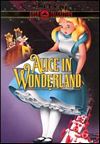
This Disney feature-length cartoon combines the most entertaining elements of Lewis Carroll's Alice in Wonderland and Through the Looking Glass. Chasing after the White Rabbit, who runs into view singing "I'm Late! I'm Late!," Alice falls down the rabbit hole into the topsy-turvy alternate world of Wonderland. She grows and shrinks after following the instructions of a haughty caterpillar, attends a "Very Merry Unbirthday" party in the garden of the Mad Hatter and the March Hare, stands in awe as the Cheshire Cat spouts philosophy, listens in rapt attention as Tweedledum and Tweedledee relate the story of the Walrus and the Carpenter (a sequence usually cut when Alice is shown on TV), and closes out her day with a hectic croquet game at the home of the Red Queen. The music and production design of Alice in Wonderland is marvelous, but the film is too much of a good thing, much too frantic to do full honor to the whimsical Carroll original, and far too episodic to hang together as a unified feature film. One tactical error is having Alice weep at mid-point, declaring her wish to go home: This is Alice in Wonderland, Walt, not Wizard of Oz! Its storytelling shortcomings aside, Alice in Wonderland is superior family entertainment (never mind the efforts in the 1970s to palm off the picture as a psychedelic "head" film). -- Hal Erickson
AMG REVIEW:
Not fully appreciated upon its initial release by either critics or audiences, Alice in Wonderland has grown in stature over the years. Its primary failing is that its conventional approach (in both script and design) fails to capture the special dreamlike quality of the Lewis Carroll source material. However, on its own terms, the film is enormously entertaining. The animation is top-notch throughout, but especially so in the sequences involving the Cheshire Cat, the climactic card chase, Alice's many changes of size, and the wonderful Mad Hatter tea party. The actors providing the voices are extremely well cast and are responsible for a great deal of the film's success. Ed Wynn and Jerry Colonna capture the inspired lunacy of the Mad Hatter and the March Hare respectively, and Sterling Holloway is an appropriately disturbing Cheshire Cat. Kathryn Beaumont's Alice is charming, stubborn, bewildered, bossy, prissy, obedient, polite, and irritated by turns, and Beaumont makes the many swift changes believable. Also noteworthy is the score, most of which consists of very short and sometimes incomplete numbers, but still is quite beguiling. Pay special attention to the lovely "In a World of My Own" and the lush "All in the Golden Afternoon." Although Alice in Wonderland may have been taken somewhat for granted originally, the next films for this directing triumvirate -- Peter Pan and Lady and the Tramp -- would be recognized immediately as animated classics. -- Craig Butler
AWARDS:
Best Score (nom) - Oliver Wallace - 1951 Academy
Competing Film - Hamilton Luske - 1951 Venice Film Festival
Competing Film - Clyde Geronimi - 1951 Venice Film Festival
Competing Film - Wilfred Jackson - 1951 Venice Film Festival

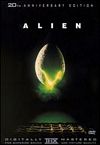
"In space, no one can hear you scream." A close encounter of the third kind becomes a Jaws-style nightmare when an alien invades a spacecraft in Ridley Scott's sci-fi/horror classic. On the way home from a mission for the Company, the Nostromo's crew is woken up from hibernation by the ship's Mother computer to answer a distress signal from a nearby planet. Capt. Dallas (Tom Skerritt)'s rescue team discovers a bizarre pod field, but things get even stranger when a face-hugging creature bursts out of a pod and attaches itself to Kane (John Hurt). Over the objections of Ripley (Sigourney Weaver), science officer Ash (Ian Holm) lets Kane back on the ship. The acid-blooded incubus detaches itself from an apparently recovered Kane, but an alien erupts from Kane's stomach and escapes. The alien starts stalking the humans, pitting Dallas and his crew (and cat) against a malevolent killing machine that also has a protector in the nefarious Company. -- Lucia Bozzola
AMG REVIEW:
Combining science fiction with horror, Swiss artist H.R. Giger's alien design and Carlo Rambaldi's visual effects creepily meld technology with corporeality, creating a claustrophobic environment that is coldly mechanical yet horribly anthropomorphized, like the metallic monster itself. Director Ridley Scott keeps the alien out of full view, hiding it in the dark or camouflaging it in the workings of the Nostromo. Signs of '70s cultural upheaval permeate Alien's future world, from the relationship between corporate capitalism and rapacious monstrosity, to the heterogeneous crew and Ripley's forceful horror heroine. The intense frights and gross-outs, however, are credited with making Alien one of the biggest hits of 1979 (it premiered on the two-year anniversary of Star Wars); Giger, Rambaldi et al. won the Oscar for Best Visual Effects. Alien went on to spawn three genre-bending sequels (and re-conditioned Ripleys) with exceptional '80s actioner Aliens (1986), dark prison drama Alien 3 (1992), and exotically grotesque Alien Resurrection (1997). With its atmospheric isolation, implacable monster, and whiff of social conscience, Alien stands as one of the more thoughtful yet utterly terrifying horror films of the 1970s. -- Lucia Bozzola
AWARDS:
Best Art Direction (nom) - Michael Seymour - 1979 Academy
Best Art Direction (nom) - Ian Whittaker - 1979 Academy
Best Art Direction (nom) - Roger Christian - 1979 Academy
Best Visual Effects (win) - Nick Allder - 1979 Academy
Best Visual Effects (win) - H.R. Giger - 1979 Academy
Best Visual Effects (win) - Carlo Rambaldi - 1979 Academy
Best Visual Effects (win) - Brian Johnson - 1979 Academy
Best Art Direction (win) - Michael Seymour - 1979 British Academy Awards


Big-budget special effects, swiftly paced action and a distinct feminist subtext from writer-director James Cameron turned what should have been a by-the-numbers sci-fi sequel into both a blockbuster and a seven-time Oscar nominee. Sigourney Weaver returns as Ellen Ripley, the last surviving crewmember of a corporate spaceship destroyed after an attack by a vicious, virtually unbeatable alien life form. Adrift in space for half a century, Ripley grapples with depression until she's informed by her company's representative, Carter Burke (Paul Reiser) that the planet where her crew discovered the alien has since been settled by colonists. Contact with the colony has suddenly been lost, and a detachment of Colonial Marines is being sent to investigate. Invited along as an advisor, Ripley predicts disaster, and sure enough, the aliens have infested the colony, leaving a sole survivor, the young girl Newt (Carrie Henn). With the soldiers picked off one by one, a final all-female showdown brews between the alien queen and Ripley, who's become a surrogate mother to Newt. Several future stars made early career appearances in Aliens (1986), including Lance Henriksen, Bill Paxton and Reiser. -- Karl Williams
AMG REVIEW:
For big-budget, high-octane showmanship, Aliens (the sequel to Alien, directed by Ridley Scott) is hard to beat. While not as deliberate or interesting as the first in the series, Aliens is a wide-open visual effect bonanza, with enough intensity and thrill for three standard action movies. Director James Cameron again proves himself more than capable when it comes to making the genre pay off. Sigourney Weaver reprises her role as Ripley, but this time she's no mere survivor, she's ready to lay waste to those ultra-nasty creatures from the first movie. She's like Wonder Woman without the skimpy clothes. The female heroine in this series has always been fascinating because of her complete ignorance of her sexuality. This is given an interesting spin at the end of this film when Ripley's goal becomes to destroy the alien eggs in their nest. A slap in the face to traditional motherhood? Anyway, too much shouldn't be read into the proceedings here. The dialogue is often horrendous, and the characters other than Ripley are little more than fodder for some impressive scenes of carnage. But this remains one of the most enjoyable action movies of the mid-1980s. -- Brendon Hanley
AWARDS:
Best Actress (nom) - Sigourney Weaver - 1986 Academy
Best Art Direction (nom) - Peter Lamont - 1986 Academy
Best Art Direction (nom) - Crispian Sallis - 1986 Academy
Best Editing (nom) - Ray Lovejoy - 1986 Academy
Best Score (nom) - James Horner - 1986 Academy
Best Sound (nom) - Roy Charman - 1986 Academy
Best Sound (nom) - Hartstone, Graham V. - 1986 Academy
Best Sound (nom) - Carter, Michael A. - 1986 Academy
Best Sound (nom) - LeMessurier, Nicolas - 1986 Academy
Best Sound Effects (win) - Sharpe, Don - 1986 Academy
Best Visual Effects (win) - Stan Winston - 1986 Academy
Best Visual Effects (win) - John Richardson - 1986 Academy
Best Visual Effects (win) - Bob Skotak - 1986 Academy
Best Visual Effects (win) - Benson, Suzanne - 1986 Academy
Best Production Design (nom) - Peter Lamont - 1986 British Academy Awards
Makeup Award (nom) - Peter Robb-King - 1986 British Academy Awards
Sound Award (nom) - 1986 British Academy Awards
Visual Effects Award (nom) - 1986 British Academy Awards
Best Actress (Drama) (nom) - Sigourney Weaver - 1987 Golden Globe



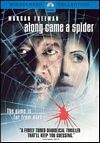
AMG REVIEW:
The novel by best-selling author James Patterson becomes this thriller that, in the chronology of the writer's series of books featuring the character of Alex Cross, is actually a prequel to Kiss the Girls (1997). Morgan Freeman brings his usual intelligent gravity to FBI Special Agent-In-Charge role he's assayed once before, while Michael Wincott, always so memorable in villain roles, plays his genius kidnapper with a nervous, detached reserve that's a thoughtful contrast to the expected over-the-top histrionics of most cinematic antagonists. His motivations are never made clear or believable, but Wincott's Gary Soneji is sufficiently frightening in his off-kilter, wounded way. Jezzie Flannigan, as portrayed by Monica Potter, is more problematic. The actress plays the tough, smart, morally conflicted Secret Service agent as a wide-eyed runway model at best, an emotionless automaton at worst. It could be to throw the audience off in preparation for a third-act twist, but Potter lacks authenticity in a part that should have been played by a seasoned performer (such as Susan Sarandon) to provide a mature, full-bodied foil for the daunting presence of Freeman. As for the story itself, major changes from the source novel may leave Patterson fans enraged, but director Lee Tamahori provides his underrated, skillful service, keeping the pace brisk and the unanswered questions properly glossed-over. Not as artistically nutritious as The Silence of the Lambs or as good as its predecessor, Along Came a Spider is just good enough, never quite reaching the heights that everyone involved is capable of, existing instead as a proper, adequately entertaining example of its genre. -- Karl Williams

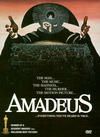
AMG REVIEW:
Amadeus is a rarity: a dramatic film made by people who understood music as much as filmmaking. A celebration of music and genius, the film exults over Mozart's seemingly divine creations even as it refuses to canonize the man behind them. Instead, the decision to tell the story from Salieri's point of view provides a justly critical portrait of Mozart, and in so doing so it provides a commentary on genius that mines trenchant insight from resolute objectivity. That Mozart's music is beyond reproach is never called into doubt; likewise, that the man himself could be utterly reproachful is also beyond question. Paradox is at the film's core, both in the presentation of Mozart and his music, and in the character of Salieri, who managed to be both Mozart's greatest fan and most punishing detractor. In making this sort of paradox its central theme, Amadeus is one of the most illuminating pictures of genius ever committed to celluloid. Part of its brilliance lies in its principal performances: in Tom Hulce's Mozart, we see a man equally un-self-conscious about his genius and his vulgarity, and in F. Murray Abraham's Oscar-winning Salieri, we see the tragedy that results from the inability of talent to live up to desire. These performances are lavishly complemented by the music in question, a forceful character in its own right. Part of Forman's great acheivement as the film's director was bringing this music to millions who had never set foot inside of an opera house or theatre, with a passion and immediacy that could appeal to a much wider audience than just classical music enthusiasts. -- Rebecca Flint
AWARDS:
Best Actor (nom) - Tom Hulce - 1984 Academy
Best Actor (win) - F. Murray Abraham - 1984 Academy
Best Adapted Screenplay (win) - Peter Shaffer - 1984 Academy
Best Art Direction (win) - Karel Cerny - 1984 Academy
Best Art Direction (win) - Patrizia Von Brandenstein - 1984 Academy
Best Cinematography (nom) - Miroslav Ondrícek - 1984 Academy
Best Costume Design (win) - Theodor Pistek - 1984 Academy
Best Director (win) - Forman, Miloš - 1984 Academy
Best Editing (nom) - Nena Danevic - 1984 Academy
Best Editing (nom) - Michael Chandler - 1984 Academy
Best Makeup (win) - Dick Smith - 1984 Academy
Best Makeup (win) - Paul LeBlanc - 1984 Academy
Best Picture (win) - 1984 Academy
Best Sound (win) - Chris Newman - 1984 Academy
Best Sound (win) - Tom Scott - 1984 Academy
Best Sound (win) - Mark Berger - 1984 Academy
Best Sound (win) - Todd Boekelheide - 1984 Academy
Best Director - Milos Forman - 1984 Directors Guild of America
Best Foreign Film (win) - Milos Forman - 1984 French Academy of Cinema
Best Actor (win) - F. Murray Abraham - 1984 L.A. Film Critics Association
Best Director (win) - Milos Forman - 1984 L.A. Film Critics Association
Best Picture (win) - 1984 L.A. Film Critics Association
Best Screenplay (win) - Peter Shaffer - 1984 L.A. Film Critics Association
Best Adapted Screenplay (nom) - Peter Shaffer - 1985 British Academy Awards
Best Cinematography (nom) - Miroslav Ondrícek - 1985 British Academy Awards
Best Costumes (nom) - Theodor Pistek - 1985 British Academy Awards
Best Film (nom) - 1985 British Academy Awards
Best Production Design (nom) - Patrizia Von Brandenstein - 1985 British Academy Awards
Editing Award (nom) - 1985 British Academy Awards
Makeup Award (nom) - Dick Smith - 1985 British Academy Awards
Sound Award (nom) - Dick Smith - 1985 British Academy Awards
Best Actor (Drama) (win) - F. Murray Abraham - 1985 Golden Globe
Best Actor (in Drama) (win) - 1985 Golden Globe
Best Director (win) - 1985 Golden Globe
Best Director (win) - Milos Forman - 1985 Golden Globe
Best Film (Drama) (win) - 1985 Golden Globe
Best Film (in Drama) (win) - 1985 Golden Globe
Best Screenplay (win) - Peter Shaffer - 1985 Golden Globe
Editing Award (nom) - Michael Chandler - 1986 British Academy Awards
100 Greatest American Movies (win) - 1998 American Film Institute






Tony Kaye made his feature directorial debut with this dramatic exploration into the roots of race hatred in America. In a shocking opening scene, teen Danny Vinyard (Edward Furlong) races to tell his older brother, neo-Nazi Derek (Edward Norton), about the young blacks breaking into his car in front of the house, whereupon Derek gets his gun and with no forethought shoots the youths in their tracks. Tried and convicted, Derek is sent away for three years in prison, where he acquires a different outlook as he contrasts white-power prisoners with black Lamont (Guy Torry), his prison laundry co-worker and eventual pal. Meanwhile, Danny, with a shaved head and a rebellious attitude, seems destined to follow in his big brother's footsteps. After Danny writes a favorable review of Hitler's Mein Kampf, black high-school principal Sweeney (Avery Brooks) puts Danny in his private "American History X" course and assigns him to do a paper about his older brother, who was a former student of Sweeney's. This serves to introduce flashbacks, with the film backtracking to illustrate Danny's account of Derek's life prior to the night of the shooting. Monochrome sequences of Derek leading a Venice, California gang are intercut with color footage of the mature Derek ending his past neo-Nazi associations and attempting to detour Danny away from the group led by white supremacist, Cameron (Stacy Keach), who once influenced Derek. Director Tony Kaye, with a background in TV commercials and music videos, filmed in L.A. beach communities. Rated R "for graphic brutal violence including rape, pervasive language, strong sexuality and nudity." -- Bhob Stewart
AMG REVIEW:
Edward Norton is absolutely riveting as the menacing skinhead at the center of American History X, in the controversial star-making performance that earned him his second Oscar nomination. Among many impressive feats the actor pulls off in the role of Derek Vinyard, Norton packs on so much bulk that he is virtually unrecognizable from his debut as the scrawny schizophrenic in Primal Fear two years earlier. Standing shirtless with his hands behind his ears, at police gunpoint, Norton radiates the righteous hatred of a monster in the body of a tattooed Adonis. Unfortunately, the rest of the film is not equal to Norton's buff acting chops and searing presence. It ventures into shocking territory and presents violent images that can't be unseen, but it also resolves core issues in simplistic ways that are out of synch with its uncompromising intensity. The way the script handles Vinyard's unlikely prison mea culpa is especially scant, as though only the hatred were interesting enough to warrant serious treatment. Director Tony Kaye deserves credit for bringing a crisp look to the project, including the black-and-white flashback sequences that underscore Norton's talent and accentuate the rawness of the film's themes. But American History X could benefit from some subtlety in its handling of the complexity of bigotry, as well as its ultimate repudiation. A film clearly meant to make audiences reevaluate their prejudices, American History X is too extreme for viewers to meaningfully extrapolate its message to their own lives. -- Derek Armstrong
AWARDS:
Best Actor (nom) - Edward Norton - 1998 Academy


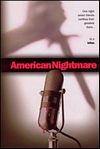
Facing ones fears becomes a death warrant in this independent horror film. It's Halloween, and a group of friends who earlier spent some time discussing their favorite horror movies find themselves listening to an underground radio station, which is presenting a call-in show in which listeners are encouraged to discuss their deepest fears for the benefit of the audience. While the twenty-something bohemians call in with the hopes of being purged of their anxieties, a different fate awaits them -- an unbalanced former nurse (Debbie Rochon) is also listening to the show, and she sets out to track down each caller, and murder them in a manner that reflects their worst fear. American Nightmare also stars Chris Ryan, Brandy Little, and Johnny Sneed. -- Mark Deming







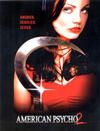




AMG REVIEW:
In this 1999 adaptation of George Orwell's Animal Farm, special effects coax farm animals to speak out against tyranny and reenact the 1917 Russian Revolution. Studio wizardry turns real and almost-real pigs, ducks, chickens, and sheep into lip-synching actors portraying political heroes, villains, and the easily led hoi polloi. However, the dramatis personae lack the sassy vibrancy of cartoon characters. Moreover, close-ups of Old Major, the Lenin figure personified by the voice of Peter Ustinov, and Napoleon, the Stalin figure personified by the voice of Patrick Stewart, reveal these two pigs as little more than slobbering machines. When the jaws of either pig move, the viewer wonders how much gadgetry Jim Henson's Creature Shop used to create the illusion. In the end, what the film gives the audience is artificial realism that deadens the characters and reduces them to high-tech puppets. Consequently, the characters cannot generate the kind of hyperbole and whimsy that animate cartoon characters and make fantasy fun. During the 90-minute running time of the film, director John Stephenson and producer Robert Halmi Sr. generally adhere to the plot of Orwell's 1947 novel satirizing the excesses of communism. But they do take liberties on occasion, most notably when they show the collapse of the Animal Farm wall to symbolize the fall of the Berlin Wall. The solemn, humorless atmosphere pervading the production tends to make viewers yearn for a Daffy Duck or a Pluto to enliven it. -- Mike Cummings



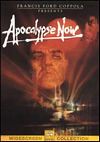
One of a cluster of late-1970s films about the Vietnam War, Francis Ford Coppola's Apocalypse Now adapts the Joseph Conrad novella Heart of Darkness to depict the war as a descent into primal madness. Capt. Willard (Martin Sheen), already on the edge, is assigned to find and deal with AWOL Col. Kurtz (Marlon Brando), rumored to have set himself up in the Cambodian jungle as a local, lethal godhead. Along the way Willard encounters napalm and Wagner fan Col. Kilgore (Robert Duvall), draftees who prefer to surf and do drugs, a USO Playboy Bunny show turned into a riot by the raucous soldiers, and a jumpy photographer (Dennis Hopper) telling wild, reverent tales about Kurtz. By the time Willard sees the heads mounted on stakes near Kurtz's compound, he knows Kurtz has gone over the deep end, but it is uncertain whether Willard himself now agrees with Kurtz's insane dictum to "Drop the Bomb. Exterminate them all." Coppola himself was not certain either, and he tried several different endings between the film's early rough-cut screenings for the press, the Palme d'Or-winning "work-in-progress" shown at Cannes, and the final 35 mm U.S. release (also the ending on the video cassette). The chaotic production also experienced shut-downs when a typhoon destroyed the set and star Sheen suffered a heart attack; the budget ballooned and Coppola covered the overages himself. These production headaches, which Coppola characterized as being like the Vietnam War itself, have been superbly captured in the documentary, Hearts of Darkness: A Filmmaker's Apocalypse. Despite the studio's fears and mixed reviews of the film's ending, Apocalypse Now became a substantial hit and was nominated for eight Academy Awards, including Best Picture, Best Director, Best Supporting Actor for Duvall's psychotic Kilgore, and Best Screenplay. It won Oscars for sound and for Vittorio Storaro's cinematography. This hallucinatory, Wagnerian project has produced admirers and detractors of equal ardor; it resembles no other film ever made, and its nightmarish aura and polarized reception aptly reflect the tensions and confusions of the Vietnam era. -- Lucia Bozzola
AMG REVIEW:
Filmmaking masterpieces are often products of fate rather than design, and while Francis Ford Coppola's fierce ambition to create a great work of art is obvious in Apocalypse Now, the same ambition often threatens to crush the picture under its own weight. Apocalypse Now is an elaborate but often haphazard construction that starts to run out of gas at the three-quarter point without delivering a satisfying ending, and Marlon Brando's often lackadaisical performance as Col. Kurtz never lives up to the massive buildup the story gives it. And yet there are moments as powerful as anything Coppola (or anyone else) ever put on screen, and there are enough of them to make the film a flawed but unmistakable triumph. The air attack set to Wagner's The Ride of the Valkyries and the Battle at Do Lung Bridge capture the terror and madness of war as few films have, and the further Capt. Willard (Martin Sheen) and his men travel up the river, the deeper they are drawn into a surreal nightmare where right and wrong, danger and security, past and present, have begun to blur. Coppola also drew a superb performance from Martin Sheen as Willard; a fine but inconsistent actor, Sheen rarely had a role as good as Willard, and he rises to the occasion. There's also excellent supporting work from Robert Duvall, Frederic Forrest, G.D. Spradlin, and particularly Albert Hall, who, as Chief, has the burden of being the sole unambiguously disciplined and dedicated soldier in the film. Coppola was famously quoted as saying "This isn't a film about Viet Nam, this film is Viet Nam." If, like that war, Apocalypse Now doesn't quite achieve its objective, it comes close enough to stand as Coppola's last great film. -- Mark Deming
AWARDS:
Best Adapted Screenplay (nom) - Francis Ford Coppola - 1979 Academy
Best Adapted Screenplay (nom) - John Milius - 1979 Academy
Best Art Direction (nom) - George R. Nelson - 1979 Academy
Best Art Direction (nom) - Angelo P. Graham - 1979 Academy
Best Art Direction (nom) - Dean Tavoularis - 1979 Academy
Best Cinematography (win) - Vittorio Storaro - 1979 Academy
Best Director (nom) - Francis Ford Coppola - 1979 Academy
Best Editing (nom) - Richard Marks - 1979 Academy
Best Editing (nom) - Jerry Greenberg - 1979 Academy
Best Editing (nom) - Lisa Fruchtman - 1979 Academy
Best Editing (nom) - Walter Murch - 1979 Academy
Best Picture (nom) - 1979 Academy
Best Sound (win) - Walter Murch - 1979 Academy
Best Sound (win) - Richard Beggs - 1979 Academy
Best Sound (win) - Mark Berger - 1979 Academy
Best Sound (win) - Boxer, Nat - 1979 Academy
Best Supporting Actor (nom) - Robert Duvall - 1979 Academy
Best Film - Francis Ford Coppola - 1979 British Academy Awards
Best Supporting Actor (win) - Robert Duvall - 1979 British Academy Awards
Fipresci Prize (win) - Francis Ford Coppola - 1979 Cannes Film Festival
Golden Palm (win) - Francis Ford Coppola - 1979 Cannes Film Festival
Best Director (nom) - Francis Ford Coppola - 1979 Directors Guild of America
10 Best Films - 1979 National Board of Review of Motion Pict
Best Actor - Robert Duvall - 1979 New York Film Critics Circle
Best Direction - Francis Ford Coppola - 1979 New York Film Critics Circle
Best Supporting Actor - Robert Duvall - 1979 New York Film Critics Circle
Best Supporting Actor - 1979 SOC
Best Director (win) - 1980 Golden Globe
Best Supporting Actor (win) - 1980 Golden Globe
100 Greatest American Movies (win) - 1998 American Film Institute

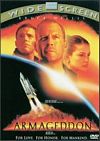
Michael Bay directed this $150 million science fiction action thriller about an asteroid on a collision course with Earth, sending fireballs down on Manhattan, prompting a plan to split the asteroid into two sections before it arrives and causes human extinction. NASA executive director Dan Truman (Billy Bob Thornton) brings in the world's number-one oil driller, Harry S. Stamper (Bruce Willis), who assembles his team that is trained for the task. The group includes top crew hand A.J. Frost (Ben Affleck), who is involved in a relationship with Stamper's daughter Grace (Liv Tyler). With only days remaining, two shuttles head into space to drill 800 feet into the asteroid and nuke the rock. Back on Earth, as mini-asteroids pelt Paris and Shanghai, humanity hopes and prays for a successful mission. -- Bhob Stewart
AMG REVIEW:
Exactly what you'd expect from the Jerry Bruckheimer school of action extravaganzas, this gargantuan asteroid-hitting-Earth tale works on its own blockbuster terms, but offers nothing that countless other big-budget offerings haven't. Drenched in director Michael Bay's signature orange hues and amber waves of grain, Armageddon bogs itself down in an unbelievably silly romantic subplot with wide-eyed lovers Ben Affleck and Liv Tyler that is actually harder to stomach than its hackneyed and contrived space logic. Bruce Willis employs his trademark scowl here, but the movie has some expert components, namely Billy Bob Thornton's measured, intelligent turn as a NASA honcho and an amusing Owen Wilson as one of our unlikely heroes. The film contains a certain dumb charm, but that's hardly a reason to make it memorable. Interestingly, the film was a box-office smash in America and overseas, despite it being the oft-cited example of Hollywood soullessness by critics all over the nation, who deplore its quick-cutting, fast-food sensibilities. -- Jason Clark
AWARDS:
Best Original Song (nom) - Diane Warren - 1998 Academy
Best Sound (nom) - Keith A. Wester - 1998 Academy
Best Sound (nom) - Kevin O'Connell - 1998 Academy
Best Sound (nom) - Greg P. Russell - 1998 Academy
Best Sound Effects Editing (nom) - George Watters II - 1998 Academy
Best Visual Effects (nom) - John Frazier - 1998 Academy
Best Visual Effects (nom) - Pat McClung - 1998 Academy
Best Visual Effects (nom) - Richard Hoover - 1998 Academy

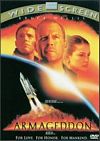
Michael Bay directed this $150 million science fiction action thriller about an asteroid on a collision course with Earth, sending fireballs down on Manhattan, prompting a plan to split the asteroid into two sections before it arrives and causes human extinction. NASA executive director Dan Truman (Billy Bob Thornton) brings in the world's number-one oil driller, Harry S. Stamper (Bruce Willis), who assembles his team that is trained for the task. The group includes top crew hand A.J. Frost (Ben Affleck), who is involved in a relationship with Stamper's daughter Grace (Liv Tyler). With only days remaining, two shuttles head into space to drill 800 feet into the asteroid and nuke the rock. Back on Earth, as mini-asteroids pelt Paris and Shanghai, humanity hopes and prays for a successful mission. -- Bhob Stewart
AMG REVIEW:
Exactly what you'd expect from the Jerry Bruckheimer school of action extravaganzas, this gargantuan asteroid-hitting-Earth tale works on its own blockbuster terms, but offers nothing that countless other big-budget offerings haven't. Drenched in director Michael Bay's signature orange hues and amber waves of grain, Armageddon bogs itself down in an unbelievably silly romantic subplot with wide-eyed lovers Ben Affleck and Liv Tyler that is actually harder to stomach than its hackneyed and contrived space logic. Bruce Willis employs his trademark scowl here, but the movie has some expert components, namely Billy Bob Thornton's measured, intelligent turn as a NASA honcho and an amusing Owen Wilson as one of our unlikely heroes. The film contains a certain dumb charm, but that's hardly a reason to make it memorable. Interestingly, the film was a box-office smash in America and overseas, despite it being the oft-cited example of Hollywood soullessness by critics all over the nation, who deplore its quick-cutting, fast-food sensibilities. -- Jason Clark
AWARDS:
Best Original Song (nom) - Diane Warren - 1998 Academy
Best Sound (nom) - Keith A. Wester - 1998 Academy
Best Sound (nom) - Kevin O'Connell - 1998 Academy
Best Sound (nom) - Greg P. Russell - 1998 Academy
Best Sound Effects Editing (nom) - George Watters II - 1998 Academy
Best Visual Effects (nom) - John Frazier - 1998 Academy
Best Visual Effects (nom) - Pat McClung - 1998 Academy
Best Visual Effects (nom) - Richard Hoover - 1998 Academy





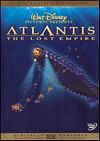
The first Disney cartoon to be produced in the 70 mm format since The Black Cauldron (1985), this blend of traditional animation with computer-generated imagery is a straight adventure tale of the Jules Verne school, eschewing the studio's typical formula of cute critters mixed with song-and-dance routines. Michael J. Fox is the voice of Milo Thatch, a lowly museum employee and linguist in the early 20th century who's determined to continue his late grandfather's search for the lost, sunken empire of Atlantis. Bankrolled by eccentric millionaire Preston Whitmore (John Mahoney), Milo teams up with a diverse crew of mercenaries led by submarine commander Rourke (James Garner). After a sea battle with a giant denizen of the deep, the explorers locate the submerged civilization. Milo falls in love with Princess Kida (Cree Summer), the daughter of Atlantis' aged ruler (Leonard Nimoy), and must choose sides when it's revealed that some of his fellow expedition members intend to steal a mystical energy source from their hosts. Claudia Christian, Mark Hamill, David Ogden Stiers, Don Novello, and the late Jim Varney co-star. Although considered a shoo-in for a nomination in the debut year of the new Oscar category of Best Animated Feature, Atlantis: The Lost Empire faced stiff competition from other non-live-action entertainment in the summer of 2001, including Shrek, Final Fantasy, and Monsters Inc.. -- Karl Williams
AMG REVIEW:
For years, mature audiences have longed for a Disney animated feature that didn't place furry critters singing pop songs front and center. While this long-anticipated effort to create just such a story for the PG-13 crowd is occasionally quite entertaining, it comes up a bit short. An attack sequence by an aquatic robot monster that resembles the offspring of a squid mated to a lobster is particularly effective, as is a climactic battle atop a hot air balloon rising from the bowels of a volcano. The problem is that too much time is wasted in the interim on introducing a populous supporting cast of characters who don't end up adding much to the proceedings. Comic relief players such as a French "digger" known as Mole (Corey Burton) and a rootin' tootin' cowboy cook named, imaginatively, Cookie (the late Jim Varney) become quickly irksome, leaving the film's female lead Kida (Cree Summer) almost a cameo role. The film's truncated running time, kept within the "under 90 minutes," toddler-friendly dictum that has ruled the Disney roost for decades, doesn't do much service to the story either. It was a bold decision to let the characters take their time finding the lost city, but at that point the film's half over and what follows feels rushed and forced. Atlantis: The Lost Empire has all the makings of a classy sci-fi epic for animation fans, but like Titan A.E. (2000) before it, the studio's effort to be all things to all audience demographics results in a film that never quite coalesces into a story about which any one specific group of viewers can care. -- Karl Williams

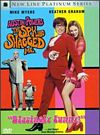
AMG REVIEW:
Austin Powers: The Spy Who Shagged Me may not have been half the unexpectedly enjoyable romp of the original, but it doubled the character's pop culture prominence and the vernacular use of the phrases "Yeah, baby!" and "Do I make you horny?" In fact, rarely has there been such a widely mimicked film icon as Austin Powers, even if the most inspired bits from these films concern the fey supervillain Dr. Evil, also played by Mike Myers. It's a testament to the blind affection accorded this franchise that the sequel's most celebrated character is Mini Me, played by the vertically challenged Verne Troyer, who turned into such a stature-defying popular curiosity that he became the shortest man since Tom Cruise to get so much work. Audiences were so giddy to plunk themselves back into that free-lovin' world of shagadelic goofiness, they didn't even notice that many of the jokes were essentially repeated, or that the improvisation level was shockingly high. All that mattered was Myers returning in both brilliant roles, plus a third (the sweaty Fat Bastard), and Heather Graham filling the eye-candy role vacated by Elizabeth Hurley. The movie hits its funniest strides when reveling in its anachronistic cultural references, such as Dr. Evil covering Will Smith's paternal ode "Just the Two of Us," or aping Jerry Maguire by telling his miniature self, "You complete me." Capable of enormous feats at the box office, as well as getting incredible mileage from kitsch, the Austin Powers series should be healthy for as long as Myers wants to continue coining catch phrases. -- Derek Armstrong
AWARDS:
Best Makeup (nom) - Mike Smithson - 1999 Academy
Best Makeup (nom) - Michele Burke - 1999 Academy
Best Original Song (nom) - Madonna - 1999 Golden Globe
Best Original Song (nom) - William Orbit - 1999 Golden Globe

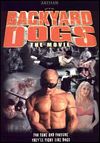
The wild and colorful world of backyard wrestling provides the backdrop for this action comedy. Cole (Scott Hamm) and Lee (Walter Emanuel Jones) are two close friends who love professional wrestling and hope to make it onto the pro circuit themselves some day. Everybody has to start somewhere, and Cole and Lee soon become involved in the underground world of amateur backyard wrestling, in which grappling hopefuls do body slams and piledrivers next to the picnic table or the storage shed. Cole and Lee start making a name for themselves among backyard wrestling fans, and they soon begin working with aspiring manager Kristy (Bree Turner), a smart and sexy girl who soon makes Cole and Lee the talk of the Internet. But as Cole and Lee's star rises, they discover a lot more fighters are interested in taking them down a few notches, and the competition only gets tougher as they become more successful. -- Mark Deming


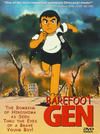

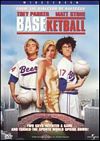
David Zucker directed this slapstick sports comedy starring South Park creators Trey Parker and Matt Stone. Competing two-on-two against some basketball jocks, goofballs Joe Cooper (Parker) and Doug Remer (Stone) attempt to win by devising new rules while they play. Thus is born the bizarre game of "BASEketball." Rules: Court position decides whether a sunk basket counts as a single, a home run, or whatever; the opposing team can retrieve missed shots. Verbal abuse is allowed. Ditto for gross-outs -- or anything to annoy the shooter. The game becomes popular in driveways, so sports promoter Ted Denslow (Ernest Borgnine) proposes a deal to form a pro league. Dallas Felons owner Baxter Cain (Robert Vaughn), hopes to increase revenues with product placements and pro endorsements, but he needs the okay of team owners. Ted dies during the season finals, leaving Cain to deal with his widow Yvette (Jenny McCarthy). However, Ted willed the team to Cooper, who must win the upcoming season or ownership goes to Yvette. Cameos by Bob Costas and Al Michaels. -- Bhob Stewart
AMG REVIEW:
TV bad boys Trey Parker and Matt Stone bring their signature style of juvenile, naughty potty humor to this sports comedy that, except for a winning prologue, never reaches the absurd heights or withering satire of the duo's best work. In fact, BASEketball isn't really even as funny as director David Zucker's other films in the Naked Gun series. With his tale of two all-American mutts who invent the new national pastime, Zucker seems to have something critical he wants to say about the increasingly corporate nature of pro sports. Whatever it is, the message is lost in the midst of an overly busy plot wrought by a quartet of scribes (multiple writers are rarely a positive sign in feature filmmaking) and a crippling number of momentum-wrecking star cameos. Parker and Stone don't share too much in the culpability (the film isn't written by them), leaving fans to pine for the more observant, piercing, and wickedly offbeat project that could have been if only the duo had stronger involvement. Under their narrative guidance, BASEketball still wouldn't have been for everyone, but at least it would have been for someone. -- Karl Williams

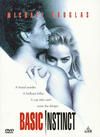

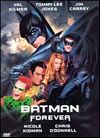
AMG REVIEW:
While it hadn't yet sunk into the mire of Batman and Robin, the Batman franchise was well on its way with this third installment, the first directed by Joel Schumacher. After two dark chapters that each explored new territory, arguably improving in quality and thematic juiciness with the feminist slant of Batman Returns, Batman Forever sorely misses the presence of Tim Burton and Michael Keaton, who jumped ship before the ideas dried up. It's much more a platform for Jim Carrey than the adequate but dull Val Kilmer, finally permitting Carrey to sink his teeth into the super-villain he was born to play, in turn granting him license to overact his heart out. But for all of Carrey's undeniable gusto, the performance doesn't come close to making the movie. Whether there should have been more of Tommy Lee Jones' Two Face is debatable, since he's not very interesting, but even with more screen time, he still would have contributed the least of any Batman villain to date. Batman Forever shows the strain of trying to do too much with too little inspiration, and the diminishing returns of scraping the bottom of the barrel for previously unused villains, whose powers are pretty fringe by this point. The film's goofy title, which sounds like an overconfident political slogan, is a hint that Schumacher wanted mindless fun to replace the psychological brooding of Burton's movies. But Batman is better when he's profoundly disturbed, when there's not so much window dressing to distract from his tortured heroism. -- Derek Armstrong
AWARDS:
Best Cinematography (nom) - Stephen Goldblatt - 1995 Academy
Best Sound (nom) - Michael Herbick - 1995 Academy
Best Sound (nom) - Mitchell, Donald O. - 1995 Academy
Best Sound (nom) - Montano, Frank A. - 1995 Academy
Best Sound Effects (nom) - Bruce Stambler - 1995 Academy
Best Sound Effects (nom) - Leveque, John - 1995 Academy













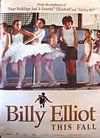

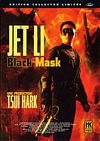
WOULD YOU LIKE TO TELL THIS STORY ?
Send us your own summary with your first name and the name of your town at
summary@dvdzone2.com

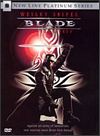
British director Stephen Norrington helmed this David S. Goyer adaptation of the Marvel Comics character created in 1973 by scripter Marv Wolfman and artist Gene Colan. In the Tomb of Dracula comic book origin, just before Blade's mother gave birth to Blade, she was bitten by a vampire, which made Blade immune to vampires. Now a vampire hunter, Blade, joined by vampire detective Hannibal King and Dracula-descendent Frank Drake, stalks vampires. In the 1990s (in Marvel's Nightstalkers), Blade teamed with Drake and King in an agency created to fight a variety of supernatural beings. The Marvel origin is retold in this 1998 Norrington film, with Blade's mother dying as he is born. Thirty-some years later, Blade now exists somewhere between the two worlds, not human but not fully vampire. He has become a relentless and superhuman vampire hunter, out to avenge the death of his mother and protect the rest of humankind from the evil vampire race. In this pursuit, Blade storms a notorious vampire nightclub and in a virtual bloodbath manages to wipe out most of the blood-lusting denizens. But the burnt corpse of vampire Quinn (Donal Logue) is reanimated at the hospital morgue and bites hematologist Karen Jenson (N'Bushe Wright). Blade magically appears at the hospital just in time to whisk Karen to his hideaway, a machine-shop run by his mentor Abraham Whistler (Kris Kristofferson), who once rescued Blade and who now produces a antidote to keep Blade from turning into a full-fledged vampire and who builds custom weapons for Blade to use against his evil foes. Meanwhile, Blade's vampire arch-nemesis Deacon Frost (Stephen Dorff) uses computers to translate the Book of Erebus, with the ultimate aim of bringing down the old-guard vampire council, headed by Dragonetti (Udo Kier), and triggering the Blood Tide -- an event in which everyone in the world becomes a vampire. -- Bhob Stewart
AMG REVIEW:
It took a quarter-century, but the Marvel Comics vampire-slayer created by Marv Wolfman and Gene Colan finally hit the big screen, and it was worth the wait. Wesley Snipes is terrific as the half-vampire Blade, fighting the undead legions with the aid of a high-tech arsenal manufactured by his crusty partner, Whistler (Kris Kristofferson). Stephen Dorff is equally memorable as the villainous half-breed Frost, planning to usurp the more genteel purebred vampires in order to destroy and enslave the human race. But he needs Blade's blood to call an ancient vampire-god first. The action scenes are dynamite, Greg Cannom's bloody special-effects are suitably outlandish to match the comic-book tone, and there are some nice bits by cult favorites Udo Kier and Traci Lords along the way. It's not a straight horror film, as its numerous fight scenes and hyperbolic mythologizing make clear, but -- despite its comic-book roots -- it is still another of 1998's releases to push the "R" rating to its limit with blood-soaked violence. Viewers with strong stomachs and a yen for a very dark take on the Mortal Kombat-style of filmmaking should, however, be extremely pleased. -- Robert Firsching







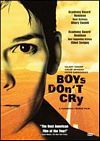
Based on a true story, this drama was adapted from the life of Brandon Teena, born Teena Brandon, a woman who chose to live her life as a man and suffered tragic consequences as a result. In 1993, 20-year-old Brandon (Hilary Swank) leaves Lincoln, Nebraska for the nearby community of Falls City, where she sports a crew cut, favors jeans and boots, and is regarded as a man by most of the people in town. While Brandon's friend Lonny (Matt McGrath) warns her that sexual outsiders aren't looked upon kindly in Falls City, she develops a reputation for being something of a ladies' man, and is soon living with a single mother named Candace (Alicia Goranson). But when Brandon meets teenage Lana (Chloe Sevigny), the two become romantically involved almost immediately. Brandon makes friends with Lana's mother (Jeanetta Arnette) and a burly ex-con named John (Peter Sarsgaard). John and his buddy Tom (Brendan Sexton) run with a rough group of men who like to drink and carouse, and they accept Brandon as one of their own. However, when Brandon ends up in jail on a traffic violation, her secret comes out, and, while Lana stands by Brandon's side, John and Tom feel betrayed -- and their anger soon boils over into violence. A distinguished feature debut for director Kimberly Peirce, Boys Don't Cry was enthusiastically received in its showings at 1999 film festivals in Venice, Toronto, and New York. -- Mark Deming
AMG REVIEW:
With what was possibly the most acclaimed independent debut film since Quentin Tarantino's Reservoir Dogs, first-time director Kimberly Peirce paints an unforgettable portrait of small-town doldrums and gender identity crisis, using the harrowing tale of Teena Brandon, a young Nebraska girl who successfully passed herself off as a male, resulting in a violent attack on her life. Expertly realized by Peirce, the film is straightforward, uncompromised filmmaking, and smartly removes any traces of martyrdom or cheap sentiment in exploring its fascinating lead case study. More than any film about gender identity preceding it, Boys doesn't resort to needless exposition in order to translate the story to the uninitiated. This factor is best actualized by the film's sterling cast, including Hilary Swank in a mesmerizing, dexterous performance as Brandon; Chloe Sevigny, heartbreaking and faultless as Brandon's love interest; and Peter Sarsgaard, hypnotically and believably menacing as one of Brandon's eventual assailants. In a robust Best Actress victory, lead actress Swank managed to beat perennial favorite Annette Bening to the Oscar podium in 1999, proving that being a relatively new talent to motion pictures was by no means a deterrent to the recognition of her significant achievement. (Many noted that not since Simone Signoret's win for 1959's Room at the Top had an actress in an independently-produced film received the statuette.) The events of Boys are also covered in a documentary film about the same subject, The Brandon Teena Story, which recounts some material in a different light. -- Jason Clark
AWARDS:
Best Actress (win) - Hilary Swank - 1999 Academy
Best Supporting Actress (nom) - Chloe Sevigny - 1999 Academy
Best Actress (win) - Hilary Swank - 1999 Broadcast Film Critics Association
Best Actress (Drama) (win) - Hilary Swank - 1999 Golden Globe
Best Supporting Actress (Motion Picture) (nom) - Chloe Sevigny - 1999 Golden Globe
Best Actress (win) - Hilary Swank - 1999 L.A. Film Critics Association
Best Supporting Actress (win) - Chloe Sevigny - 1999 L.A. Film Critics Association
Best Actress (win) - Hilary Swank - 1999 Los Angeles Film Critics Association
Best Supporting Actress (win) - Chloe Sevigny - 1999 Los Angeles Film Critics Association
#7 Film of the Year - 1999 National Board of Review
Best Breakthrough Performance- Female (win) - Hilary Swank - 1999 National Board of Review
Best Directorial Debut (win) - Kimberly Peirce - 1999 National Board of Review
Best Actress (win) - Hilary Swank - 1999 New York Film Critics Circle
Best Female Actor in a Leading Role (nom) - Hilary Swank - 1999 Screen Actors Guild
Best Female Actor in a Supporting Role (nom) - Chloe Sevigny - 1999 Screen Actors Guild
Best Actress (nom) - Hilary Swank - 2000 British Academy Awards







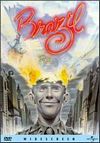
AMG REVIEW:
Director Terry Gilliam's comic fantasy-nightmare portrays a future in which Big Brother is definitely watching. The film suggests no particular time, boasting a retro style that gives it an ominous timelessness. Like Ridley Scott's Blade Runner or Stanley Kubrick's A Clockwork Orange, Brazil succeeds precisely because it presents a grimy future with real similarities to the present, where technology and efficiency lead to more, not less, government interference and bureaucracy. Brazil also adds an element of comedy to the mix; some of the zaniest scenes involve Robert DeNiro, playing against type as the hilarious terrorist Harry Tuttle. Visually, the film is a near-psychedelic wonder, with such indelible images as the bleak metropolis that launches from the ground, disrupting the idyllic dreams of unlikely hero Sam Lowry (Jonathan Pryce). To say Gilliam pulled out all the stops is an understatement -- it seems that every image that popped into his head has found its way into the film. Brazil was criticized by some for going too far, and this lack of restraint does extend to the sometimes hard-to-follow plot. But a little incoherence is a relatively small price to pay for what is otherwise a startlingly imaginative work. -- Matthew Doberman
AWARDS:
Best Art Direction (nom) - Norman Garwood - 1985 Academy
Best Art Direction (nom) - Maggie Gray - 1985 Academy
Best Original Screenplay (nom) - Terry Gilliam - 1985 Academy
Best Original Screenplay (nom) - Charles McKeown - 1985 Academy
Best Original Screenplay (nom) - Tom Stoppard - 1985 Academy
Best Director (win) - Terry Gilliam - 1985 L.A. Film Critics Association
Best Picture (win) - 1985 L.A. Film Critics Association
Best Screenplay (win) - Charles McKeown - 1985 L.A. Film Critics Association
Best Screenplay (win) - Tom Stoppard - 1985 L.A. Film Critics Association
Best Screenplay (win) - Terry Gilliam - 1985 L.A. Film Critics Association
Best Film (win) - 1985 LA Film Critics Association

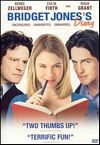
AMG REVIEW:
The success of the best-selling novel on which this movie was based lies in author Helen Fielding's ability to make us simultaneously cringe with recognition and laugh out loud at the over-the-top failures of its spirited, single heroine. The Bridget Jones of both the book and the film weathers frustrated career ambitions, romantic flops, and frequent failures of common sense -- all with a determination that straddles the line between self-help stick-to-it-iveness and deranged masochism. In adapting her novel for the screen and turning over the direction to her friend Sharon Maguire, a documentarian, Fielding translates the essence of her story without nailing its nuances. The entire movie hinges on the performance of Renee Zellweger, who perfectly captures Bridget's cigs-and-booze bravado but overplays her wretched neediness. The actress was game enough to gain weight, wear unflattering outfits, and take over-the-top pratfalls in the name of rambunctious comedy, but her wide-open face and wounded eyes often turn the book's singular heroine into another variation on her own vulnerable screen persona. Hugh Grant has nasty fun with the role of Bridget's hollow but charming boss/boyfriend, while Colin Firth, as the standoffish Mark Darcy, grits his teeth convincingly till the final reel. Fielding and her award-winning co-writers, however, plug these characters into a standard-issue romantic-comedy triangle, reducing much of the novel's supporting cast to a series of cameos. In the end, despite its many charms, the film turns a post-feminist farce into a pre-feminist fairy tale, one where the knight in shining armor is more important than the princess' friends. -- Brian J. Dillard
AWARDS:
Best Actress (nom) - Renee Zellweger - 2001 Academy
Best Actress (nom) - Renee Zellweger - 2001 British Academy Awards
Best Adapted Screenplay (nom) - Richard Curtis - 2001 British Academy Awards
Best Adapted Screenplay (nom) - Helen Fielding - 2001 British Academy Awards
Best Adapted Screenplay (nom) - Andrew Davies - 2001 British Academy Awards
Best British Film (nom) - Jonathan Cavendish - 2001 British Academy Awards
Best British Film (nom) - Eric Fellner - 2001 British Academy Awards
Best British Film (nom) - Tim Bevan - 2001 British Academy Awards
Best Supporting Actor (nom) - Colin Firth - 2001 British Academy Awards
Best Actress (nom) - Renee Zellweger - 2001 Broadcast Film Critics Association
Best Picture (nom) - 2001 European Film Academy
Best Actress - Musical or Comedy (nom) - Renee Zellweger - 2001 Golden Globes
Best Picture - Musical or Comedy (nom) - 2001 Golden Globes
Best Actress (nom) - Renee Zellweger - 2001 Screen Actors Guild
Best Adapted Screenplay (nom) - Helen Fielding - 2001 Writer's Guild of America
Best Adapted Screenplay (nom) - Andrew Davies - 2001 Writer's Guild of America
Best Adapted Screenplay (nom) - Richard Curtis - 2001 Writer's Guild of America











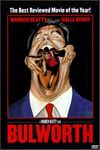
Warren Beatty directed, co-produced (with Pieter Jan Brugge), co-scripted (with Jeremy Pikser), and stars in this political satire, a comedy-drama about a U.S. senator who decides to start speaking the truth. Despondent California Sen. Jay Bulworth (Beatty), up for re-election, is disillusioned by the usual campaign banalities; his marriage to Constance (Christine Baranski) seems equally hollow. In the midst of a nervous breakdown, Bulworth goes without sleep or food for three days and takes out a $10 million insurance policy on himself while arranging his own assassination. Drinking during a return to Los Angeles, Bulworth is scheduled to speak at an African-American church in South Central L.A. Once there, he tosses aside his prepared speech, startling both the audience and his campaign manager Murphy (Oliver Platt) by improvising truthful remarks instead of the familiar rhetoric. These loose-cannon salvos gain the attention of an attractive young woman, Nina (Halle Berry). Bulworth finds an exhilaration with this new freestyle approach, and after shocking a gathering in Beverly Hills with further fulminations, Bulworth invites Nina and her girlfriends into his limo. During a spaced-out sojourn at one of South Central's more frenzied after-hours clubs, Bulworth gains respect for hiphop culture. Still reeling from insights gained by this nightlife, he arrives the next day for a fund-raising function at the Beverly Wilshire, startling everyone with a diatribe delivered in the intonations of a rap artist. His interest in Nina and his new optimistic outlook on life give Bulworth a sense of elation and a will to live. He phones to call off the hit, but gears have been set in motion. After an assumed hitman turns up during a church appearance, Bulworth flees, and Nina offers him a safe-house hideout at the home of her family, veterans of the Civil Rights movement. Here Bulworth goes through the final steps in his transformation -- making a Kennedy-styled connection with the disenfranchised as he tunes into forgotten memories of the '60s. Outfitted in homeboy clothing, the born again Bulworth heads for a TV station to unleash even more caustic comments on the American political scene. Language and drug use brought this film an R rating. -- Bhob Stewart
AMG REVIEW:
As co-producer, co-writer, director and star, Warren Beatty puts his political and comedic cards on the table in his pungent satire of the 1990s political system in Bulworth. As a corrupt California senator rejuvenated by telling it like it is, love for enigmatic Halle Berry, and immersion in African American pop culture, Beatty pokes fun at his own image as an aging rebel-turned-Establishment figure while critiquing the state of American politics in the Bill Clinton era. Inspired by Amiri Baraka's metaphorical griot, Bulworth's shift to expounding the truth in rap becomes a spectacle of deeply serious comedy as he takes aim at the corporate control of politics, and race/class divisions. Oliver Platt's frantic spin doctor, Laurie Metcalf's C-SPAN reporter, Don Cheadle's reformed drug baron, Paul Sorvino's insurance executive, and Christine Baranski's jaded political wife further underline the humorously pointed message about political and media hypocrisy. A rare Hollywood film in its overtly confrontational stance, Bulworth provoked debate over racial stereotyping and ideological intent, but critics, black and white, were also impressed by Beatty's boldness as well as the excellent performances, polished production and sharp wit. As co-writer with Jeremy Pikser, Beatty earned his 14th Oscar nomination for Bulworth's screenplay. -- Lucia Bozzola
AWARDS:
Best Original Screenplay (nom) - Jeremy Pikser - 1998 Academy
Best Original Screenplay (nom) - Warren Beatty - 1998 Academy
Best Screenplay (win) - Jeremy Pikser - 1998 L.A. Film Critics Association
Best Screenplay (win) - Warren Beatty - 1998 L.A. Film Critics Association

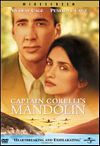
Louis de Bernieres' best-selling novel of love during wartime is brought to the screen in this story that blends comedy, action, and romance. In 1940, war rages throughout Europe, but the fighting has yet to arrive on the Greek island of Cephallonia, where life continues to follow its own slow, deliberate path until word arrives that Italian troops have invaded neighboring Albania. A wave of anti-Axis patriotism sweeps the island, and Mandras (Christian Bale), a local fisherman, is one of a handful of men who volunteer for the Army, leaving behind his aging mother (Irene Pappas) and the woman he loves, Pelagia (Penelope Cruz), the daughter of the island's physician, Dr. Iannis (John Hurt). The timing of Mandras and his compatriots proves less than fortuitous, as Italian troops invade Greece in their absence, but the remaining leaders of the island issue an ultimatum -- the people of Cephallonia will surrender, but only to a ranking German officer. Since none of the available German officers can speak a word of Greek, an Italian soldier fluent in the language, Capt. Antonio Corelli (Nicholas Cage), is sent in to serve as translator. Corelli stays on with the Greek occupation forces, and he soon finds himself falling in love with beautiful Pelagia, who believes that Mandras was killed in the fighting in Albania. But as romance slowly blooms between the Italian soldier and the Greek girl, Mandras and a handful of surviving soldiers have joined a guerilla resistance faction, and they join up with Allied forces in a bid to retake Greece; soon, Pelagia must choose between the two men she loves, as the Greeks battle both the Italian occupation troops and German soldiers who have been sent in to replace them. Captain Corelli's Mandolin was directed by John Madden; the project originally began shooting with Roger Michell, but Michell was forced to resign from the film after he suffered a heart attack. -- Mark Deming
AMG REVIEW:
Neither a convincing war film nor a moving romance, Captain Corelli's Mandolin is so middle of the road that it's hard to imagine anyone getting heated up over it. At the film's heart is a vague and unsatisfying love triangle between the beautiful Pelagia (Penelope Cruz), her fisherman fiancé Mandras (Christian Bale), and Italian army captain Antonio Corelli (Nicolas Cage). It's never really clear why Pelagia should prefer Corelli over Mandras, and the ethics of love between enemies is barely touched upon. Yet, the grand scope of the film begs us to be swept up in its forbidden romance. Despite being burdened with such a sappy script, the actors acquit themselves well; in particular, it's great to see such an accomplished and underused actor like John Hurt given such a fitting role as the wise and humorous Dr. Iannis. The cast is able to make some sequences work: the scene where Corelli and his men lie on the beach and sing opera with half-naked women conjures an absurdist poetry reminiscent of Frederico Fellini. Unfortunately, the scene shows a conviction the rest of the film seems to lack. Then there is the problem of the mandolin itself -- much like the diary in Bridget Jones' Diary, it appears at the beginning and then somewhat at the end. Director John Madden never really develops the instrument into a useful symbol of the dichotomy between personal choice and fate. Like so much else in Captain Corelli's Mandolin, these epic trappings are never realized, but merely serve as a skeleton over which the limp skin of this romance is draped. -- Matt Collar



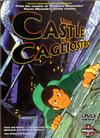


AMG REVIEW:
Steven Spielberg, leaving behind the darker implications found in A.I.: Artificial Intelligence and Minority Report, brings audiences a highly enjoyable cat-and-mouse escapade in Catch Me if You Can. Despite purposely fudging some fairly major aspects of Frank Abagnale Jr.'s personal history for dramatic effect -- the character of Carl Hanratty (Tom Hanks), for example, is completely fictitious -- the film is nonetheless an engaging and relatively accurate account of Abagnale's life. Somewhat overshadowed by Daniel Day-Lewis and Liam Neeson in Gangs of New York, Leonardo DiCaprio's talents have not been showcased this well since his Academy Award nominated performance in What's Eating Gilbert Grape. DiCaprio's boyish features and bright charisma make for a sympathetic portrayal of the young con artist. Frank's actions seem less motivated by greed than they are by the desire to restore his family to what it once was, as well as, ironically, a way to discover his true identity. Likewise, Tom Hanks puts in an equally strong performance as droll FBI agent Hanratty, whose determination to apprehend Frank is more of an exercise in his own ideals and even paternal concern than an ego-motivated manhunt. The film's only major faults are the palpable slow down in its later half, and a conclusion that, like A.I. and Minority Report, does not seem to end where it should. Regardless, Catch Me if You Can is a beautifully shot, thoroughly enjoyable movie with a whole lot of heart. -- Tracie Cooper
AWARDS:
Best Original Score (nom) - 2002 Academy
Best Supporting Actor (nom) - Christopher Walken - 2002 Academy
Best Composer (nom) - John Williams - 2002 Broadcast Film Critics Association
Best Director (nom) - Steven Spielberg - 2002 Broadcast Film Critics Association
Best Picture (nom) - 2002 Broadcast Film Critics Association
Best Actor - Drama (nom) - 2002 Golden Globe
Best Supporting Actor (Runner-up) (win) - Christopher Walken - 2002 L.A. Film Critics Association
Best Supporting Actor (win) - Christopher Walken - 2002 National Society of Film Critics
Best Supporting Actor (win) - Christopher Walken - 2002 Screen Actors Guild




Former documentary filmmaker Walter Salles (Foreign Land) directed this Brazilian-French road movie tracing the travels and travails of a young boy and an aging woman across the Brazilian landscape. In Rio de Janeiro's central railroad station, callous Dora (leading Brazilian stage/screen actress Fernanda Montenegro) works at a stand where she writes letters for a parade of poor and illiterate. Some of these remain undelivered because she chooses not to mail all of the letters. One of her customers is a woman whose nine-year-old son, Josue (Vinicius de Oliveira), hopes to see the father he has never met, but after the mother dictates two letters to the father, she's killed when hit by a bus. Since Josue is left homeless, Dora reluctantly takes him home to her small apartment overlooking the railroad tracks, where she sometimes spends time with her neighbor Irene (Marilia Pera). Dora places Josue with people who claim to find adoptive parents. When Irene informs her they actually sell children who are then killed for their organs, Dora rescues Josue, and the two board a bus. After a failed attempt to abandon Josue at a roadside stop, Dora and Josue hitch a ride from a religious truck driver. Failing to locate his father, they arrive penniless at a huge rural religious convocation, where Josue suggests Dora bring her letter-writing skills back into play. The notion works, and Dora profits by writing letters to saints for the more devout among the assembled multitudes. Continuing on, they arrive at a sprawling-mass housing development -- and hopefully, a solution to the problem of a family for Josue. Young actor de Oliveira was a shoeshine boy who beat out more than 1,500 other children who auditioned or were interviewed for the Josue role. Made with grants from the Sundance Institute, NHK, and the French Ministry of Culture, this film was shown at 1998 film festivals (Sundance, Berlin). -- Bhob Stewart
AMG REVIEW:
Global awareness of Brazil's rebounding film community continued to grow with Central Station (1998), the third feature of Rio de Janeiro-born director Walter Salles. Oscar nominated for Best Foreign Language Film and for the performance of leading lady Fernanda de Montenegro, the film is similar to Vittorio de Sica's The Bicycle Thief (1948) in its depiction of the fragile relationship between a world-weary, cold-hearted adult and a fearful but idealistic boy. Salles' preoccupation with Brazil's economic hardships and their effect on his native society was also the basis for his previous film, Terra Estrangeira (1995), about a generation of Brazilians who have emigrated to the industrialized south or out of the country entirely, seeking greater economic opportunity. Central Station is also a tearjerker and functions effectively on a purely emotional level, due in no small part to the non-manipulative, dazzlingly subtle performance by Montenegro. Reminiscent of both the DeSica classic and of the writing of Charles Dickens, Salles' film is a tale of spiritual reawakening that calls, like many nostalgic American films, for both a new identity and a return to a place and sense of self that has been lost. -- Karl Williams
AWARDS:
Best Actress (nom) - Fernanda Montenegro - 1998 Academy
Best Foreign Language Film (nom) - 1998 Academy
Best Actress (Silver Bear) (win) - Fernanda Montenegro - 1998 Berlin Film Festival
Best Film (Golden Bear) (win) - 1998 Berlin Film Festival
Best Foreign Language Film (nom) - Walter Salles, Jr. - 1998 French Academy of Cinema
Best Foreign Language Film (win) - 1998 Golden Globe
Best Actress (win) - Conchita Montenegro - 1998 L.A. Film Critics Association
Best Foreign Language Film (win) - 1998 L.A. Film Critics Association









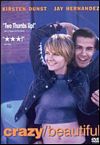
The Romeo and Juliet story has been modernized to a high school setting previously, but this romance from director John Stockwell turns the tale inside out. Jay Hernandez stars as Carlos Nunez, a poor but athletically gifted Latino teenager who endures a two-hour bus ride every day from East L.A. to attend the posh, wealthy Pacific Palisades High School in Los Angeles on a football scholarship. A straight-A student, Carlos is focused and driven, but his future is cast in doubt when he becomes the flirtation target of spoiled, self-destructive bad girl Nicole Oakley (Kirsten Dunst), who's the daughter of a prominent congressman (Bruce Davison). When his friends, family, and even Nicole's own father oppose the romance for Carlos' sake, he chooses to ignore their advice and stubbornly pursues his relationship with Nicole, whose feelings grow from simple physical attraction to something much deeper. Crazy/beautiful is directed by writer, actor, and director John Stockwell, who also penned the same year's Rock Star. -- Karl Williams
AMG REVIEW:
For a while, it seems as if crazy/beautiful has more on its mind than the average forbidden romance teen flick: employing two talented young actors (Kirsten Dunst and Jay Hernandez) as well as a gritty, realistic look, director John Stockwell clearly aspires to resonate with his target audience in a way uncommon to turn-of-the-century youth product. If only he had ordered a few more rewrites of Phil Hay and Matt Manfredi's script. With its hazy, dappled sunlight and themes of class, substance abuse, and disaffection, crazy calls to mind great films of the '70s; unfortunately, the similarities prove mostly superficial, as the plot heads off into territory normally reserved for melodramatic pap like Endless Love (1981) or Splendor in the Grass (1961). Since her emotional state is so vaguely described -- is she drunk, high, mentally unbalanced, or just plain sullen? -- Dunst's character grows more and more frustrating over the course of the film. Worse, it's hard to see what a cool, collected guy like Hernandez would want with her. (Though there's an insinuation that he's interested in a taste of the forbidden, the idea is quickly dropped.) By the time the plot performs its final logistic somersault, most viewers -- teen or otherwise -- will no doubt be inclined to describe crazy/beautiful by using only the former half of its title. -- Michael Hastings







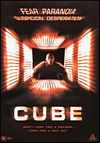
This low-budget science-fiction drama, winner of a 1997 Toronto Film Festival prize for "Best Canadian First Feature," depicts the plight of a group of people clad in prison-style uniforms and trapped in futuristic cube-like metal cells. Their memories are hazy; no one can recall how they got there. Alderson (Julian Richings) awakens in a cell, seeks an exit, and arrives in an adjacent cube where he's sliced and diced. Former cop Quentin (Maurice Dean-Wint) becomes the group leader, and he's challenged by conspiracy theorist Dr. Holloway (Nicky Guadagni). Government worker Worth (David Hewlett) remembers a past government link to the project. A discovery that the cubes have numerical codes suggests study by math-student Leaven (Nicole deBoer) while former thief Rennes (Wayne Robson) knows some escape tricks. However, the extreme behavior of Kazan (Andrew Miller) becomes a threat to their survival. Also shown at the 1997 Vancouver Film Festival. -- Bhob Stewart


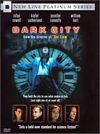
Alex Proyas (The Crow) directed this noir-styled futuristic thriller, scripted by Proyas, Lem Dobbs (Kafka), and David S. Goyer (The Puppet Masters). Separated from his wife Emma (Jennifer Connelly), amnesiac John Murdoch (Rufus Sewell) awakens alone in a strange hotel to learn he is wanted for a series of brutal killings -- but he can't remember if he did or didn't commit these murders. Indeed, most of his memories have completely vanished, and he becomes the focus of interest for both mad genius Dr. Schreber (Kiefer Sutherland) and sympathetic detective Frank Bumstead (William Hurt). Attempting to unravel the twisted riddle of his identity, Murdoch encounters a group of ominous beings known as the Strangers, shadow-like figures who have a collective memory and possess the ability to stop time and alter physical reality through a process called The Tuning. Focusing their minds, they are able to change the size and shape of the material world. Murdoch manages to stay a step ahead of his adversaries as he slowly jigsaws together the puzzle of his past-bittersweet memories of his childhood, his love for Emma, and the key to the murders -- while following a labyrinth leading to the Strangers' Underworld, a set inspired by Fritz Lang's Metropolis. Rufus Sewell commented on the Underworld: "When Alex first sent me the sketches for that set, I was more excited than I had been when I read the script. The Underworld was truly remarkable -- a little bit scary, very thrilling, and full of hundreds of bald people." At the Fox Film Studios in Sydney, Australia, where 50 sets were built, three months were spent constructing the set for the Underworld, the largest indoor set ever built in Australia. The production design by George Liddle (Rapa Nui) and Patrick Tatopoulos (Godzilla, Space: Above and Beyond) is a composite of different styles and eras, combining the look of 1940s Manhattan with German Expressionism. The music is by Trevor Jones (G.I. Jane). The film's dedication reads: "In Memory of Dennis Potter with gratitude and admiration." -- Bhob Stewart
AMG REVIEW:
An extremely ambitious film about the nature of the human soul, Dark City is worth seeing for simply for its visual artistry. The film presents a bleak, film noir-ish urban landscape of no particular era and perpetual nighttime. The imaginative story begins as a crime thriller, though we quickly learn that the murder mystery is part of an all-encompassing puzzle that blends the realms of science fiction and philosophy. Dark City takes what could have been a wildly pretentious storyline and imbues it with skill and substance. Director Alex Proyas was responsible for the similarly desolate, dreamlike world of The Crow; with this film, he proves himself not just a visual wunderkind, but a deft storyteller as well (he co-wrote the screenplay with Lem Dobbs and David S. Goyer). Rufus Sewell is excellent as the brooding, justly paranoid John Murdoch, and Kiefer Sutherland is delightfully creepy as the wheezy Dr. Schreber. Those who like their stories straightforward and grounded in reality should be forewarned, but for those who don't mind mixing their entertainment with metaphysics, Dark City is one of the most overlooked films of the 1990s. -- Matthew Doberman










AMG REVIEW:
In this follow-up to his first international hit, Run Lola Run, writer/director Tom Tykwer spins an offbeat love story between a disturbed army vet named Bodo Benno Fürmann and an equally unbalanced asylum nurse, Sissi (Lola's Franka Potente). Compared to its highly stylized predecessor, this film is timid, which is probably why it proved such a disappointment on the international festival circuit. But it still has much to recommend it as a worthy addition to a growing canon of works by Germany's hottest young auteur. Shot in Tykwer's native Wuppertal -- a misty city in the Ruhr valley known for its peculiar "hanging trains" -- the setting lends itself well to the telling of a romance that is both moody and absurd. Maintaining a balance between those two elements is Tykwer's goal throughout. When he succeeds, the results are surprisingly poignant -- like the unforgettable scene in which Sissi becomes enamored of Bodo while he administers a tracheotomy. But there are elements handled with less dexterity that come off as misplaced humor, such as the backstory dealing with the death of Bodo's girlfriend, who was killed in a gas station explosion. Despite the art-house flourishes, Tykwer keeps the film together as a cohesive tale of love and loss, of trauma and healing. More importantly, as the title suggests, he even manages to make something new of the classic fairy tale romance. -- Connor McMadden
AWARDS:
Best Cinematography (nom) - Frank Griebe - 2001 European Film Academy

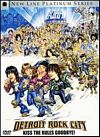
Are you ready for the hottest band in the land? It's 1978 in Detroit, and pretty much any teenager who isn't a total wimp is totally stoked for the upcoming Kiss concert (as anyone who ever listened to Kiss Alive! knows, Detroit has always loved this band). But four proud members of the Kiss Army find themselves without tickets to the show, and one has to deal with a mother who is convinced that Kiss and their music are evil incarnate. Will they be able to foil scalpers, security, and paranoid parents to witness the fire-spitting, blood-puking, hard rock frenzy that is Kiss on stage? Detroit Rock City stars Edward Furlong, Sam Huntington, Natasha Lyonne, Giuseppe Andrews, and James DeBello as the representative members of the Teenage Nation; the original four members of Kiss (Gene Simmons, Paul Stanley, Ace Frehley, and Peter Criss) play themselves, and Simmons also co-produced. -- Mark Deming
AMG REVIEW:
Like Dazed and Confused (1993) before it, this teen comedy attempts to do for the kids of the 1970s what American Graffiti (1973) did for their parents' generation. While genuinely funny at times and probably an entertaining diversion for teen comedy fans bold enough to try it, Detroit Rock City is too narrow. The film is strictly for and about diehard fans of the rock band Kiss and as such will be somewhat lost on those who don't share a passion for the men in makeup. Unlike Dazed or Graffiti, the youthful cast members here are blandly forgettable and don't much stand out one from the other; only the hilarious Lin Shaye, so good in Kingpin (1996), gives a memorable performance, this time as a proper churchgoing mother outraged by the "satanic" musical shenanigans of Kiss. Screenwriter Carl DuPre and director Adam Rifkin are to be commended for making a film that both captures and gently mocks blinding fan devotion, but only blindly devoted fans are likely to get it -- or care about it, for that matter. -- Karl Williams




Screenwriter Callie Khouri makes her directorial debut with this adaptation of a pair of popular novels by author Rebecca Wells, Divine Secrets of the Ya-Ya Sisterhood and Little Altars Everywhere. Sandra Bullock stars as Sidda Lee Walker, a New York playwright who opens a can of emotional worms with her estranged, boozy mother, Vivi (Ellen Burstyn), when she discusses her painful childhood and particularly Vivi's less-than-enviable mothering skills in a Time magazine article. The eccentric Louisiana drama queen Vivi has already been barred from her daughter's oft-delayed wedding to her fiancé, Connor (Angus Macfadyen), so the article sends her into a rage. Coming to the rescue of the relationship are Necie (Shirley Knight), Caro (Maggie Smith), and Teensy (Fionnula Flanagan), a trio of bickering women, who, along with Vivi, formed a secret society of feminist empowerment and friendship 60 years earlier that they dubbed the "Ya-Ya Sisterhood." The Ya-Yas kidnap Sidda and bring her home to Louisiana, where they reveal to Sidda via a carefully maintained scrapbook her mother's painful past (with Vivi portrayed in flashback by Ashley Judd), effecting a rapprochement between mother and daughter. Divine Secrets of the Ya-Ya Sisterhood also stars James Garner. -- Karl Williams
AMG REVIEW:
Another popular women's novel joins the sorority of Southern chick flicks with Divine Secrets of the Ya-Ya Sisterhood, which counts Fried Green Tomatoes and How to Make an American Quilt among its precursors. It commits few obvious gaffes, but in a genre this familiar, with such select appeal, a film needs at least one strong departure to attain distinction. Without that, it's too much of the generic recipe, equal parts regional whimsy and tepid melodrama. One problem is that the film hasn't much to do with the sisterhood in question, nor the perfunctory mysticism that binds it together. Hence, the viewer struggles to integrate this gaggle of quirky yentas into the worthier tale of mental instability passed through the generations. It's a shame that director Callie Khouri can't make better use of Ashley Judd and the risks she takes as a mother coming unglued. Instead of the incisive directness one might expect from the scribe who wrote Thelma & Louise, Khouri fumbles Judd's illness by failing to attribute it to anything concrete, generating doubt toward the character rather than a needed sympathy. Meanwhile, Khouri opts to handle the present tense in a manner just this side of broad comedy. Picky fans may quibble with other alterations to Rebecca Wells' material, such as softening James Garner's character from dysfunctional collaborator to guiltless victim. The less discriminating ones will probably be as content as need be, and savor the film's soul-searching agenda. -- Derek Armstrong


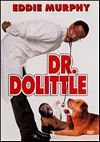
Betty Thomas directed this adaptation of the classic children's stories by Hugh Lofting (1886-1947), updating the original concepts into the present day. When noted surgeon Dr. John Dolittle (Eddie Murphy) swerves his car to avoid hitting a dog, he hits his head on the windshield, triggering his long-dormant gift for holding conversations with animals. Friends, associates and his wife Lisa (Kristen Wilson), all express concern, but Dr. Dolittle is happy as he takes on new animal clients. Soon Dolittle's clinic becomes a haven for talking rats, birds, and other assorted members of the animal kingdom, and Dolittle's new four-legged and furry friends, in turn, teach him a few things about being human. The effects seamlessly combine Jim Henson Creature Shop animatronics, computer graphics, and real animals, but some viewers might yearn for a return of the Great Pink Sea Snail and Lofting's other imaginative creatures. The 1967 20th Century Fox musical Dr. Dolittle starred Rex Harrison in a strange storyline that began with Dolittle escaping from a lunatic asylum and leaving the Victorian village Puddleby-by-the-Marsh, England, to search the South Seas for the Great Pink Sea Snail. Along the way, he gathered diverse Dolittle denizens and animal anomalies, including the Giant Moon Moth and the famed, two-headed Pushmi-Pullyu. The earlier film spawned the Oscar-winning popular song success, "Talk To The Animals," along with numerous now-forgotten toys, books, and collectibles. -- Bhob Stewart
AMG REVIEW:
Eddie Murphy continues to repeat his successful formula of mixing comedy with high-tech special effects with this family comedy, although this time he's not the one underneath a mountain of makeup. Director Betty Thomas scores another coup at the box office, and all concerned will be quickly on their way to sequel-ville, even if Murphy is doing not much more than his best Bill Cosby imitation. It doesn't matter, because the real stars of Dr. Dolittle are the host of talking animals. Spouting cleverly written lines via vocal cameos from aptly cast celebrities and doing so with the help of a convincing special effects cocktail of digital animation, live animals, and puppets, the chatting critters are the real reason to check out the film. Everyone from Murphy and Thomas to the film's clever marketing strategists knows it, with the star pulling back from his showy, multiple role-playing kinetics to portray an affable healer. Fox has discovered a successful formula here that genuinely appeals to a wide array of ages, and just as with Murphy's Nutty Professor series, the filmmakers and studio should reap the rewards of a long-running franchise if the one-liners remain funny and the animals entertaining. -- Karl Williams



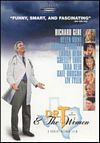
AMG REVIEW:
A disappointing film from a great artist, Dr. T and the Women trumpets the weaknesses of director Robert Altman while displaying few of his strengths. Script problems are severely compounded in productions that rely heavily on improvisation, and Altman's underwritten efforts, such as this one, are no exception. Virtually unexplored is the film's central male character, gynecologist Dr. Sullivan Travis (Richard Gere). It is hinted that Travis has an almost worshipful stance toward women, referring to them as "saints," but this fascinating hint at an inner life is never delineated. A subplot involving an absurd mental condition suffered by Dr. T's child-like wife Kate (Farrah Fawcett at her breathy, loony best) seems only to exist in order to make Dr. T seem more heroic and attractive to the audience. (Kate's break with reality is caused by her wealth and the unconditional love and support of her husband.) Stylistically, Altman's long-time use of overlapping dialogue reaches a fever pitch with this film, but is a disastrous choice, as it seems to be supporting an interpretation of the central female characters as nattering shrews and sniping backbiters. The film at large is an almost pathetically anachronistic portrayal of women as vain, vapid creatures quick to lose control and disintegrate without the guiding hand and loving attentions of a good man. A bizarre dénouement involving a tornado and the delivery of a baby boy seems almost like a bad punch line to a film that ultimately goes nowhere. Although ingenues Kate Hudson and Liv Tyler give absorbing performances as friends who may actually be lovers, Dr. T and the Women has nothing remotely enlightened to say about women or the men who love them. The film fails to reach the heights of Altman's greatest efforts, generating not even the genuine charm of a box-office flop such as Cookie's Fortune (1999), which ironically was also penned by screenwriter Anne Rapp. -- Karl Williams



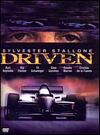
Sylvester Stallone wrote the screenplay for this action-packed drama directed by Renny Harlin and set in the dangerous, high-stakes world of CART auto racing. Jimmy Bly (Kip Pardue) is an up-and-coming young star of the open-wheel circuit, but he's slipping in the rankings as the championships loom. Under pressure from his promoter brother Demille (Robert Sean Leonard) and wheelchair-bound owner Carl Henry (Burt Reynolds), Jimmy is given a mentor -- Joe Tanto (Stallone), a once great CART competitor whose career and marriage to Cathy (Gina Gershon) were destroyed by a tragic accident. Joe must earn the rookie's trust, while attempting a career comeback, dealing with persistent reporter Lucretia Clan (Stacy Edwards), and facing Cathy, who's remarried to rival racing sensation Memo Moreno (Cristian de la Fuente). Meanwhile, Jimmy is stirring up his own romantic trouble by pursuing Sophia (Estella Warren), the girlfriend of top driver Beau Brandenburg (Til Schweiger). Long interested in creating a car racing drama, Stallone penned Driven after abandoning a film biography of real-life Formula One legend Ayrton Senna. -- Karl Williams
AMG REVIEW:
Writer/star Sylvester Stallone's gleefully bad Formula One action-melodrama is the kind of tale that can only benefit from ham-fisted plotting, lame dialogue, and wildly overmodulated performances -- all of which Driven sports in abundance. The film oscillates between high-octane international racing scenes, heavy on airborne crashes and preposterously non-life threatening injuries, and ludicrous, high-camp soap opera, heavy on self-parody thanks to the contributions of Burt Reynolds and Gina Gershon. Presumably worried that his audience might lose interest during the latter portions, director Renny Harlin shoots and edits the simplest of conversations as frantically as he does the race scenes -- the multiple angles and cuts after every line of dialogue suggest a sort of visual equivalent of Benzedrine. To their credit, Harlin and cinematographer Mauro Fiore offer up some tricky camerawork to illustrate the thrill of being a driver (check out the clutch-pedal POV shot). These fleeting moments hint at a better, more realistic auto-racing film hiding within Driven, if not one as good as 1983's Heart Like a Wheel, then at least one on par with the documentary-style Le Mans (1971) or Grand Prix (1966). Until Harlin finds a screenwriter that can help him realize that film, however, it's best to appreciate Driven for what it is: an ironic, high-kitsch laugh fest. -- Michael Hastings

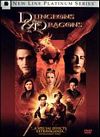
The imaginary world of the world's most popular fantasy role-playing game comes to life in this special-effects laden adventure. In the Empire of Izmer, magic is the key to power in both the supernatural and political realms. The Mages are a sect who know the secrets of magic and use it to hold sway over the masses. The youthful Empress Savina (Thora Birch) wants to use her powers to bring justice and prosperity to all, but Profion (Jeremy Irons) is an evil Mage who wants to use his knowledge of magic to overthrow Savina and establish his own despotic rule. Through deceitful means, Profion wins away the special scepter that allows him to control the nation's Golden Dragons; Savina's only hope to recover the scepter and the rule of Izmer is to obtain the Rod of Savrille, a talisman that will give her powers over the Red Dragons, even more powerful than their golden counterparts. As Savina sets out to gain control of the Red Dragons, she gains a number of unlikely allies, including a pair of thieves, Snails (Marlon Wayans) and Ridely (Justin Wayans); a powerful dwarf, Elwood (Lee Arenberg); and Norda (Kristen Wilson), an elf with a gift for finding lost objects. Dungeons & Dragons also features Zoe McLellan, Bruce Payne, and Richard O'Brien, the latter of whom is best known as the writer and co-star of the perennial cult item The Rocky Horror Picture Show. -- Mark Deming
AMG REVIEW:
An absolutely dreadful, no-holds-barred awful medieval fantasy epic, this wretchedly bad attempt to transform a popular role-playing game into a feature film is both a cautionary tale and a shining example of how not to render an adaptation. So flat, off-putting, and groan-inducing are the "adventures" endured by the cast of this misfire that few viewers are likely to make it to the finale. Those who do, however, are to be treated to a reversal of the film's only interesting plot development, the unexpected death of a major character, who is magically resurrected in the closing scene. The characters played by Justin Whalin and Marlon Wayans are the most annoying, obtrusive, and ill-conceived of the entire cast. Their ironic banter is a total distraction from what little sense of wonder director Courtney Solomon is able to feebly whip up, so it's unfortunate indeed that they are the film's protagonists. A drunken, rage-aholic dwarf who really seems to be more of a short Viking, an overly sexy elf being portrayed as if the actress thinks she's playing a Vulcan in a Star Trek picture, and the rampaging scenery chewing of Jeremy Irons, trying manfully to make the best of it, are the only guilty pleasures contained in Dungeons and Dragons (2000). Beware: here there be bad storytelling, acting, and special effects in one of the year's worst films. -- Karl Williams




A ruler learns how the other half lives -- the animal half, that is -- in this animated comedy-adventure from the Walt Disney Studios. Kuzco (voice of David Spade) is the young emperor of an Inca nation who takes a self-centered joy in the troubles of others. Not surprisingly, Kuzco's attitudes have earned the enmity of many of his subjects, including Yzma (voice of Eartha Kitt), a sorceress who wants to seize power away from the emperor after he relieved her of her royal duties, declaring she was too old and unattractive to do the job. Yzma and her musclebound assistant Kronk (voice of Patrick Warburton) hatch a plan to poison Kuzco and take the throne, but thanks to a mistake on Kronk's part, Kuzco isn't killed -- he's instead turned into a talking llama. Kronk can't bring himself to kill the llama, and instead sends the former emperor into the jungle to fend for himself. Kuzco doesn't do too well as a llama until he runs into Pacha (voice of John Goodman), a poor farmer whose property Kuzco once planned to take over for a vacation home. Soft-hearted Pacha agrees to help the emperor-turned-llama find his way back home where, hopefully, another sorcerer can reverse the spell, but once they hit the road, they discover Yzma and Kronk are looking for them, with Yzma determined to finish the assassination she started. Pop star Sting composed several original songs for The Emperor's New Groove, which during its long and troubled production had previously been announced as Kingdom in the Sun and Kingdom of the Sun. -- Mark Deming
AMG REVIEW:
The Emperor's New Groove was a curious anomaly for Disney; released in December, outside of the studio's regular blockbuster-per-summer schedule, without much fanfare or marketing muscle. It wasn't a very kid-friendly sell, almost totally lacking in cute animals and songs, and it stars a supercilious, bratty emperor (voiced by David Spade, natch) who repents his awful behavior far more gradually than your average reformed cartoon character. These characteristics undoubtedly contribute to its refreshing, adult-oriented charm, but what really distinguishes the film is not its story or dialogue, which are only mid-level clever. The grooviest thing is its angular, impressionistic animation, which is reminiscent of the studio's version of Hercules, but on acid. From the bat-like sorceress cackled by Eartha Kitt to the square-jawed numbskull voiced innocently by square-jawed Patrick Warburton, the animators delve deeply into their twisted side, using wild brush strokes to match drawings to character traits. The never-named setting and its landscapes are also replete with gnarled, jutting beauty. The film moves along quickly on a loopy succession of set pieces more than a developing story, and it doesn't need songs to bridge them, although Sting had written some that were mostly scrapped, to his great displeasure, when Disney decided to take the film in another direction. Despite a troubled production that featured periods when it might have been given a hip-hop edge, The Emperor's New Groove emerges as a sophisticated achievement in animation and one of Disney's more original films. -- Derek Armstrong
AWARDS:
Best Song (nom) - Sting - 2000 Academy
Best Song (nom) - David Hartley - 2000 Academy
Best Song (win) - Sting - 2000 Broadcast Film Critics Association
Best Original Song (nom) - Sting - 2000 Golden Globe






Julia Roberts stars in this legal drama based on the true story of a woman who helped win the largest settlement ever paid in a direct-action lawsuit. Erin Brockovich (Roberts) is a single mother of three who, after losing a personal injury lawsuit, asks her lawyer, Ed Masry (Albert Finney), if he can help her find a job. Ed gives her work as a file clerk in his office, and she runs across some information on a little-known case filed against Pacific Gas and Electric. Erin begins digging into the particulars of the case, convinced that the facts simply don't add up, and persuades Ed to allow her to do further research; in time, she discovers a systematic cover-up of the industrial poisoning of a city's water supply, which threatens the health of the entire community. Erin Brockovich was directed by Steven Soderbergh; Julia Roberts earned a $20 million payday for her work on the film, the highest salary paid to a female film star up to that time. -- Mark Deming
AMG REVIEW:
A crowd-pleasing, "based on true events" drama that sidesteps the usual treacly sentiment, Erin Brockovich finally gave Julia Roberts a role that capitalized on her strengths as it expanded her range, and in the process catapulted Steven Soderbergh into the highest echelon of Hollywood directors. Working from Susannah Grant's zinger-packed script, Soderbergh and Roberts portray Brockovich's crusade not as a leaden, courtroom-bound affair, but as a bustling, unpredictable journey: her everyday struggles with unreliable babysitters, reckless drivers, and unsympathetic employers are just as important as her effort to topple a corporate cover-up, and just as entertaining. Brockovich is brassy, foul-mouthed, and at times pig-headed, and there's no attempt to soften the character or bend her will to fit the saintly transformations of traditional melodrama. Instead of attempting a Meryl Streep-style disappearing act, Roberts accentuates the qualities that made her a star -- humor, empathy, confidence -- while inviting the audience to wonder if her character isn't occasionally too reactionary or short-fused. The wonderfully understated Albert Finney further emphasizes the give and take: "I really hate you sometimes," he barks, his character's respect and sympathy comically evident. Even as the film nears its preordained happy ending, Soderbergh maintains an air of unpredictability, thanks in large part to the democratic cuts of legendary editor Anne V. Coates and the unobtrusive, hazily beautiful camerawork of Ed Lachman. -- Michael Hastings
AWARDS:
Best Actress (win) - Julia Roberts - 2000 Academy
Best Director (nom) - Steven Soderbergh - 2000 Academy
Best Original Screenplay (nom) - Susannah Grant - 2000 Academy
Best Picture (nom) - 2000 Academy
Best Supporting Actor (nom) - Albert Finney - 2000 Academy
AFI's Top 10 Films of the Year (win) - 2000 American Film Institute
Best Actress (win) - Julia Roberts - 2000 British Academy Awards
Best Director (nom) - Steven Soderbergh - 2000 British Academy Awards
Best Editing (nom) - Anne V. Coates - 2000 British Academy Awards
Best Film (nom) - 2000 British Academy Awards
Best Original Screenplay (nom) - Susannah Grant - 2000 British Academy Awards
Best Supporting Actor (nom) - Albert Finney - 2000 British Academy Awards
Best Actress (win) - Julia Roberts - 2000 Broadcast Film Critics Association
Best Director (win) - Steven Soderbergh - 2000 Broadcast Film Critics Association
Best Director (nom) - Steven Soderbergh - 2000 Directors Guild of America
Best Actress - Drama (win) - Julia Roberts - 2000 Golden Globe
Best Director (nom) - Steven Soderbergh - 2000 Golden Globe
Best Motion Picture - Drama (nom) - 2000 Golden Globe
Best Supporting Actor (nom) - Albert Finney - 2000 Golden Globe
Best Actress (win) - Julia Roberts - 2000 L.A. Film Critics Association
Best Director (win) - Steven Soderbergh - 2000 L.A. Film Critics Association
Best Actress (win) - Julia Roberts - 2000 National Board of Review
Best Director (win) - Steven Soderbergh - 2000 National Society of Film Critics
Best Actress (win) - Julia Roberts - 2000 Screen Actors Guild
Best Supporting Actor (win) - Albert Finney - 2000 Screen Actors Guild
Best Original Screenplay (nom) - Susannah Grant - 2000 Writers Guild of America




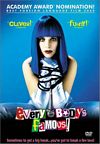



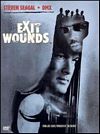
Returning to his action feature terrain after a short hiatus, Steven Seagal plays Orin Boyd, a maverick Detroit detective with an unconventional way of taking down foes. After a failed intervention in a terrorist kidnapping case that humiliates his superiors, Boyd -- who is hailed as a top-drawer investigator but frowned upon for his tactics -- is forced to do time in a tough downtown precinct. After discovering the covert drug operation performed by several corrupt cops at his new assignment, he decides to break the rules yet again. While the cops are planning a massive heroin deal with big-time gangster Latrell Walker (DMX), Boyd finds that Latrell is not who he once was, and Boyd persuades him to assist in bringing an end to the amoral police influence that helped ruin him. Exit Wounds is the second film from cinematographer-turned-director Andrzej Bartkowiak (Romeo Must Die) and also features Tom Arnold, Isaiah Washington, and Jill Hennessy. -- Jason Clark
AMG REVIEW:
Hitmakers Joel Silver (The Matrix) and Andrzej Bartkowiak (Romeo Must Die) joined forces to resurrect Steven Seagal in this oddly witty, entertaining movie. Exit Wounds slyly helps the aged, slow Seagal ease right back into the action genre. Orin Boyd, Seagal's maverick police tough guy, is pigeon-toed, double-chinned, and more than a little over-the-hill. He is repeatedly chastised. He is perennially demoted. He is ordered to take an anger management class with other cynical, irascible, underappreciated white males, and forced to obey a sassy lady commander. He is simply a grown-up, beat-up, grumpier version of all the iconoclastic bone-crushing heroes of Seagal's past. While fondly remembered for beating a suspect unconscious with a cat, Orin is really just a rebellious pain in the rear. However, when a jolly red helicopter marked "Have a Nice Day" starts gunning down half the police force, it becomes apparent that Orin's pessimism is not so unfounded. He eventually hones his anger and impudence into great aikido, satisfying sarcasm, and everything else for which Seagal is famous. Look for when Seagal as Orin interrupts his commander's romantic dinner, banishes her boyfriend, and then brazenly eats from his plate -- only eliciting a coy, aroused smile from the lady. Seagal is back, baby, and no one's complaining. -- Aubry Anne D'Arminio

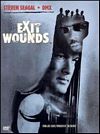
Returning to his action feature terrain after a short hiatus, Steven Seagal plays Orin Boyd, a maverick Detroit detective with an unconventional way of taking down foes. After a failed intervention in a terrorist kidnapping case that humiliates his superiors, Boyd -- who is hailed as a top-drawer investigator but frowned upon for his tactics -- is forced to do time in a tough downtown precinct. After discovering the covert drug operation performed by several corrupt cops at his new assignment, he decides to break the rules yet again. While the cops are planning a massive heroin deal with big-time gangster Latrell Walker (DMX), Boyd finds that Latrell is not who he once was, and Boyd persuades him to assist in bringing an end to the amoral police influence that helped ruin him. Exit Wounds is the second film from cinematographer-turned-director Andrzej Bartkowiak (Romeo Must Die) and also features Tom Arnold, Isaiah Washington, and Jill Hennessy. -- Jason Clark
AMG REVIEW:
Hitmakers Joel Silver (The Matrix) and Andrzej Bartkowiak (Romeo Must Die) joined forces to resurrect Steven Seagal in this oddly witty, entertaining movie. Exit Wounds slyly helps the aged, slow Seagal ease right back into the action genre. Orin Boyd, Seagal's maverick police tough guy, is pigeon-toed, double-chinned, and more than a little over-the-hill. He is repeatedly chastised. He is perennially demoted. He is ordered to take an anger management class with other cynical, irascible, underappreciated white males, and forced to obey a sassy lady commander. He is simply a grown-up, beat-up, grumpier version of all the iconoclastic bone-crushing heroes of Seagal's past. While fondly remembered for beating a suspect unconscious with a cat, Orin is really just a rebellious pain in the rear. However, when a jolly red helicopter marked "Have a Nice Day" starts gunning down half the police force, it becomes apparent that Orin's pessimism is not so unfounded. He eventually hones his anger and impudence into great aikido, satisfying sarcasm, and everything else for which Seagal is famous. Look for when Seagal as Orin interrupts his commander's romantic dinner, banishes her boyfriend, and then brazenly eats from his plate -- only eliciting a coy, aroused smile from the lady. Seagal is back, baby, and no one's complaining. -- Aubry Anne D'Arminio







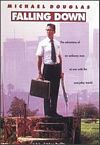
AMG REVIEW:
Joel Schumacher's social commentary features an exceptional performance from Michael Douglas as D-Fens, a man who unravels under the weight of the nerve-wracking oppression of the Establishment. Balancing precariously on the edge of convention, D-Fens' sense of the "American way" is increasingly undermined as one frustration after another materializes during his mission through the urban jungle of Los Angeles. In the course of his plunge into a profound, sociopathic disillusionment, D-Fens strips away society's constructs to reveal internally flawed social and economic mechanisms. The host of caricatures he encounters, from a stingy Korean store owner to uncompromising fast-food employees, turf-conscious gangbangers and a neo-Nazi army-surplus store owner (played with gleeful ickiness by Frederic Forrest), are products of a dehumanizing social and economic system, and are used to symbolize capitalism's darker side. Unfortunately Schumacher does well to pinpoint the flaws of the system, but he offers nothing in the way of solutions. Meanwhile, both Douglas and the peerless Robert Duvall nail their respective roles and find their grooves within a well-written script. This street-smart film is as entertaining as it is biting, but ultimately suffers from a denouement not nearly as spectacular as its build-up; what could have been a modern masterpiece is downgraded to exceedingly above-average cinema. -- Mike DiBella
AWARDS:
In Competition - Joel Schumacher - 1993 Cannes Film Festival






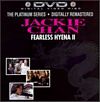





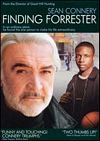
In the spirit of his Oscar-winning Good Will Hunting, Gus Van Sant directs this tale of the unlikely bond that develops between an aging, reclusive novelist named Forrester (Sean Connery) -- who hasn't written anything since winning a Pulitzer Prize decades earlier -- and Jamal (Rob Brown), a 16-year-old with a hidden desire to be a writer. When Jamal is cited for his athleticism in basketball by an elite Manhattan prep school, he is forced to adapt to an environment far from his South Bronx upbringing, and a small mishap leads him to the eccentric, uneasy Forrester. After their initial apprehension of each other, they begin to fuel each other's fire for writing, and become unlikely friends despite their ages and backgrounds. Forrester's devotion to Jamal becomes enhanced when he must defend allegations of plagiarism enforced by Professor Crawford (F. Murray Abraham), jeopardizing Jamal's future. The film also features Anna Paquin, Busta Rhymes, and Zane Copeland Jr.. -- Jason Clark
AMG REVIEW:
Fairly lacerated by critics for being too derivative of both Scent of a Woman (1992) and director Gus Van Sant's earlier film Good Will Hunting (1997), this drama also occasionally strays into clichéd storytelling territory. Particularly stereotypical is Van Sant's interpretation of the Bronx and its residents, as well as the pretensions of the literary life. A hinted-at interracial romance that goes nowhere and the egomaniacal posturing of an embittered, tyrannical professor played by F. Murray Abraham with the same ludicrous, ham-fisted glee he brought to his alien villain in Star Trek: Insurrection (1998) are egregious and overindulgent. Despite these flaws, the film's real focus is the lovely, mutually beneficial relationship that evolves between the film's protagonists, legendary author William Forrester Sean Connery and teen basketball star Jamal Wallace Rob Brown. Rooted in this pair of bold, passionate performances, the story's fairly outlandish central idea becomes believable and realistic, and the film's surprising conclusion achieves its goal of being both energizing and heartbreaking. At some times firing on all cylinders and at others falling to pieces, Finding Forrester is that oddest of films, one that might have been more effective as a stage play, with its best moments taking place in a central location, orbiting around a world of ideas and thought, not around a world of action and visuals. -- Karl Williams

















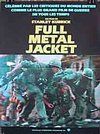















AMG REVIEW:
The producers' first conceit is even attempting to link their film to the classic Japanese monster (didn't they learn anything from Dino De Laurentiis?). The story line is so far removed from the original Toho feature that it's unnecessary to call this a remake; Inshiro Hondo certainly didn't hold a copyright on the "giant nuclear monster destroys big city" story line. In fact, the modern Godzilla's plot limps along feebly in its first half where the behemoth plows through Manhattan. It's only when the writers break completely from the original and introduce a nest full of baby monsters that the energy picks up and Godzilla provides some fun, fast-paced action. Another problem that the "blockbuster" has is the creature itself. Even with the original Godzilla's rubbery body and fixed face, he (or more accurately, she) had personality, something that this modern, digitally animated beast woefully lacks, so it's up to the human cast to provide it, and they're not all up for the task. As the "worm guy" who figures out how to fight back against the monster, Matthew Broderick is his usual appealing self, even when spouting such ridiculous lines as "Each one of these amazing reptiles are born pregnant" and "That's a lot of fish." Maria Pitillo, as his ex-girlfriend and cub reporter, exists mainly to wear flattering tops and suck lollipops. The best performances, not surprisingly, come from two regulars from The Simpsons; Hank Azaria is funny as a gonzo TV cameraman and Harry Shearer essentially reprises his Kent Brockman role from the animated sitcom. If the makers of Godzilla hadn't been so hot to jump on the remake bandwagon of the late '90s, they might have produced a film with more lasting impact than a series of Taco Bell tie-in commercials. -- Fred Beldin






AMG REVIEW:
Frank Darabont's second prison drama in as many directorial efforts (following his hugely admired The Shawshank Redemption), this stilted supernatural yarn pushes viewer endurance at more than three hours, without the finely tuned attention to character that made Shawshank so memorable. While admirably performed, with Tom Hanks giving another understated and sympathetic portrayal, the film often feels like it's unfolding on a loop. Many scenes play as if you're seeing them for the second or third time, and usually do little to further its fantastical story. The morbid fascination of Stephen King's serial novel is muted here in favor of a more sentimental (thus less convincing) rendering, and unlike the written source from which its based, Darabont's film paints all of its characters in an easily accessible good vs. evil mosaic. This proves crippling to the film as a whole, especially one so ambitious as to address racial tension, capital punishment and moral values. In an odd turn of events, however, the film gained an audience the longer it played, and eventually scored four Oscar nominations, including Best Picture and a Best Supporting Actor for Michael Clarke Duncan, who was a relative novice at the time of release. -- Jason Clark
AWARDS:
Best Adapted Screenplay (nom) - Frank Darabont - 1999 Academy
Best Picture (nom) - 1999 Academy
Best Sound (nom) - Michael Herbick - 1999 Academy
Best Sound (nom) - Willie D. Burton - 1999 Academy
Best Sound (nom) - Robert J. Litt - 1999 Academy
Best Sound (nom) - Elliot Tyson - 1999 Academy
Best Supporting Actor (nom) - Michael Clarke Duncan - 1999 Academy
Best Adapted Screenplay (win) - Frank Darabont - 1999 Broadcast Film Critics Association
Best Supporting Actor (win) - Michael Clarke Duncan - 1999 Broadcast Film Critics Association
Best Director- Feature Film (nom) - Frank Darabont - 1999 Directors Guild of America
Best Supporting Actor (Motion Picture) (nom) - Michael Clarke Duncan - 1999 Golden Globe
Best Male Actor in a Supporting Role (nom) - Michael Clarke Duncan - 1999 Screen Actors Guild
Best Performance by a Cast (nom) - 1999 Screen Actors Guild

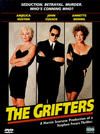

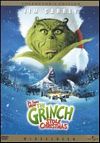
AMG REVIEW:
Visually impressive, this adaptation of a classic children's book and television special is a depressing example of how marketing can manage to make a hit out of a turgid work that's more a feature-length display of canny design in makeup, costumes, and sets than a compelling yarn. Jim Carrey is at his energetic, engaged peak as the green-haired grouse of the title, and it's a good thing for the film that his effervescence shines through his onscreen uniform, as the star is virtually unrecognizable under mounds of prosthetics and fakery. While the technical aspects of The Grinch are impressive (the sets, a combination of traditional construction and computer-generated images, are a particular standout), the story is weak, and padded with mindless chatter and visual fluff. Subplots involving a cruel mayor (Jeffrey Tambor) and the Grinch's former flame (Christine Baranski) are a drag on the film's running time, and the tale fails to register emotionally. Director Ron Howard, who cast several of his family members in the film and dedicated it to his late mother, seems constrained by the film's studio-bound limitations. What results is his most hemmed-in, calculated effort to date, despite the film's conquest of the annual box-office tallies. -- Karl Williams
AWARDS:
Best Art Direction (nom) - Michael Corenblith - 2000 Academy
Best Art Direction (nom) - Merideth Boswell - 2000 Academy
Best Costume Design (nom) - Rita Ryack - 2000 Academy
Best Makeup (win) - Gail Ryan - 2000 Academy
Best Makeup (win) - Rick Baker - 2000 Academy
Best Makeup/Hair (win) - 2000 British Academy Awards
Best Actor - Comedy or Musical (nom) - Jim Carrey - 2000 Golden Globe


In this action-laced comedy, a cop on the verge of a nervous breakdown finds love at the least convenient time. Charlie Mayo (Liam Neeson) is an undercover agent with the DEA who was nearly killed when a sting set up to nail a gang of drug dealers went horribly wrong. The accident left Charlie shaken, and he's gone into therapy to hold himself together as he struggles through one final case before retiring. Charlie's superior (Mitch Pileggi) has set him up on another undercover assignment as he tries to bring in two Colombian drug kingpins and a low-level Mafiosi with delusions of grandeur (Oliver Platt). As Charlie makes his way through therapy, he's referred to a nurse (Sandra Bullock) interested in New Age healing techniques; now he has love on his mind as he tries to keep himself out of harm's way under increasingly dangerous circumstances. Gun Shy marked the feature directorial debut of television veteran Eric Blakeney. -- Mark Deming
AMG REVIEW:
An uneven blend of romance, comedy, and crime drama, Gun Shy owes more than a small debt to the television series The Sopranos and the similar feature film Analyze This (1999), although it is not as effectively funny as either. Flashes of witty dialogue, insightfully funny character moments, and genuinely affecting emotional beats are not enough to sustain interest when the film moves too rapidly from one genre to the next. Pinwheeling at times from romance to action to therapy-group drama to comedy -- all in a single scene -- the script overwhelms director Eric Blakeney in his feature debut. With too many narrative balls in the air, the film's busy third act grows top-heavy with plot threads that need sewing up. While possessing engaging performances from a cast of rich supporting players -- especially male lead Liam Neeson, whose character is delightfully hangdog, needy, and glum in contrast to his usual stalwart hero roles -- the film simply tries to encompass too many different styles and ends up a confusing morass. Gun Shy was the second feature film released by star andra Bullock's production company, Fortis Films. -- Karl Williams












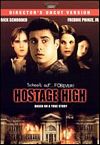










Camille Keaton, grand-niece of Buster and star of the thriller Cosa Avete Fatto a Solange?, appears here as Jenny, an aspiring novelist who rents a cabin in the Connecticut woods. Three rednecks at a local gas station and a retarded delivery boy seem quite friendly at first, and many viewers wonder just where director Meir Zarchi is going with the story. Then he drops them 200,000 feet right into the center of Hell for the longest, nastiest, and most brutal gang-rape in motion-picture history. Zarchi takes his time with this scene, not for the sake of titillation, but to make the audience feel the absolute horror of Jenny's plight. She is humiliated, sodomized over a rock, and brutally beaten in the middle of the woods. Then she crawls home, naked and bruised, only to get a repeat performance with her new novel shredded, her stomach kicked and a bottle rammed violently inside her. The experience leaves Jenny shell-shocked, a cipher completely detached from reality. She hangs the delivery boy from a tree, gorily castrates the ringleader in a bathtub, and dispatches the other two rapists with an axe and an outboard motor. Eron Tabor, Richard Pace, Anthony Nicholls and Gunter Kleeman co-star. -- Robert Firsching
AMG REVIEW:
There's a reason why this one is commonly described as a "cult classic": its smallish audience has maxed out and will not grow beyond the number of admirers it has now. I Spit on Your Grave, like The Texas Chainsaw Massacre and Last House on the Left, will never have the semi-mainstream audience of Night of the Living Dead or Sam Raimi's Evil Dead series because it is too gut-wrenching for the public at large. Look at what happens to poor Jennifer (played with total realistic abandon by Camille Keaton, who made a few B-movies before vanishing in 1989): The harrowing, near-pornographic torture she is put through for the first 30 minutes is excruciating to watch, and to do so requires a degree of third-person sadism few people will willfully admit to. It's disturbing as anything committed to celluloid. But it's all done to set up the revenge motif, and boy does it work. When Jennifer regains her strength and sets out to even the score, it is impossible not to respond with an authentic adrenaline rush of one's own. Shot on a budget of about 87 cents on leftover film stock seemingly hand-cranked through an antique camera, I Spit On Your Grave makes other low-budget independent horror films that came after it seem quaint. While its audience numbers may not expand, it will always remain stable because there is always another crop of budding horror fans who have heard of its reputation and will go out of their way to find out what everyone in their circle is talking about. And once they see it, they'll never forget it. -- Buzz McClain



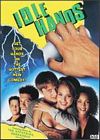

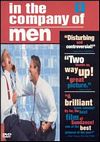
AMG REVIEW:
Neil LaBute's disturbing and corrosively funny debut feature is pure dynamite as a character study and investigation of the mindset of the corporate male (or perhaps the male in general). As both writer and director, LaBute gives his leading characters enough detail to emerge as flesh-and-blood people rather than caricatures of Bad Men, and Aaron Eckhart and Matt Malloy make the most of their material as Chad and Howard, the yuppies who seek to win and then crush the affections of a hearing impaired co-worker. In this story, Chad and Howard's humanity doesn't redeem them; in fact, they seem all the more repulsive for it, especially Howard, initially the more benign member of the pair, whose fear and distrust of women becomes as ugly as Chad's more obvious misogyny. While Stacy Edwards isn't given as much to do, she makes Christine well-rounded enough to have her own complement of virtues and flaws. The starkly beautiful images evoke Edward Hopper's paintings of urban isolation, as they enhance the film's tone of clinical and sterile detachment. In the company of men of course carries a double meaning, as the movie indicts American corporate culture as much as (or more than) men as a gender. If you wanted to kick start a heated debate about gender issues at the end of the 20th century, one viewing of this movie gave you all the encouragement you needed. -- Mark Deming
AWARDS:
Filmmakers Trophy: Dramatic (win) - 1997 Sundance


The third installment in the Spielberg/Lucas Indiana Jones saga, Indiana Jones and the Last Crusade evokes many of the thrills of the first two efforts (Raiders of the Lost Ark and Indiana Jones and the Temple of Doom) without blatantly copying either of them. After a lengthy prologue in which we learn how young Indy (River Phoenix) first developed a taste for heart-pounding adventure -- and his lifelong fear of snakes -- we find the grown-up Jones (who else but Harrison Ford?) teaching his archeology classes in 1938. He is approached by an art collector (Julian Glover), who wants Jones to embark upon a search for the Holy Grail. It so happens that another archaeologist has disappeared while searching for the precious goblet; it so happens further that the missing man is Indy's own father, Dr. Henry Jones (marvelously portrayed by Sean Connery). What follows is a roller-coaster of thrills, whisking both the elder and the younger Joneses to Venice, Berlin, and the most treacherous regions of the Middle East. Complicating matters is the presence of lovely Alison Doody, whose attraction to Indy -- and his dad -- does not dissuade her from her loyalty to the Nazi party. As in Raiders of the Lost Ark, the much-sought-after religious artifact in Indiana Jones and the Last Crusade is not so easily found -- and even when it is discovered, its powers are a bit too much for those impure of heart. This Indiana Jones effort set a record by grossing $50 million in the first week of release. -- Hal Erickson
AMG REVIEW:
The third installment of the Indiana Jones trilogy exceeds the sequel, Indiana Jones and the Temple of Doom, in quality, but its impact is still not equal to that of the original. After the somewhat disappointing Temple of Doom, Steven Spielberg returned to the formula of the original, again using a pseudo-historical backdrop. Spielberg's patented wizardry makes for the usual movie magic, transforming Harrison Ford and Sean Connery's quest for the Holy Grail into an excellent mix of archaeological thrills and light comedy. The late River Phoenix plays a young Indy, providing the film's audience with background for the archeologist. Heavy on outrageous stunts and deus ex machina, The Last Crusade is a true audience pleaser in the tradition of the first two Indy outings. In effect, Raiders of The Lost Ark was highly successful because of its accessibility and The Last Crusade is a return to this form, the kind of action-packed romp that viewers came to expect from the Indiana Jones saga. -- Mike DiBella
AWARDS:
Best Score (nom) - John Williams - 1989 Academy
Best Sound (nom) - Tony Dawe - 1989 Academy
Best Sound (nom) - Gary Summers - 1989 Academy
Best Sound (nom) - Ben Burtt - 1989 Academy
Best Sound (nom) - Shawn Murphy - 1989 Academy
Best Sound Effects (win) - Richard Hymns - 1989 Academy
Best Sound Effects (win) - Ben Burtt - 1989 Academy
Achievement in Special Effects Award (nom) - 1989 British Academy Awards
Best Supporting Actor (nom) - Sean Connery - 1990 Golden Globe


The second of the George Lucas/Steven Spielberg Indiana Jones epics is set a year or so before the events in Raiders of the Lost Ark (1984). After a brief brouhaha involving a precious vial and a wild ride down a raging Himalyan river, Indy (Harrison Ford) gets down to the problem at hand: retrieving a precious gem and several kidnapped young boys on behalf of a remote East Indian village. His companions this time around include a dimbulbed, easily frightened nightclub chanteuse (Kate Capshaw), and a feisty 12-year-old kid named Short Round (Quan Ke Huy). Throughout, the plot takes second place to the thrills, which include a harrowing rollercoaster ride in an abandoned mineshaft and Indy's rescue of the heroine from a ritual sacrifice. There are also a couple of cute references to Raiders of the Lost Ark, notably a funny variation of Indy's shooting of the Sherpa warrior. -- Hal Erickson
AMG REVIEW:
Bigger, busier, louder, and far less satisfying than Raiders of the Lost Ark, this first sequel (or, chronologically speaking, prequel) starts with a bang but then indulges in some serious miscalculations. After saddling Harrison Ford with a whiny love interest (Kate Capshaw) and a cloying young sidekick, the film then plunges them all into a grim, subterranean adventure with few of the globe-trotting thrills of the original. Doom, somewhat understandably, stirred controversy at the time of its release for its violence, gross-out gags, and general darkness. While the furor was exaggerated, all those grim deaths and enslaved children do kind of put a damper on the fun. Even so, a Spielberg-directed adventure can only plunge so far, and the director delivers the goods in numerous set pieces, though the series itself did not recover until 1989's Indiana Jones and the Last Crusade. -- Keith Phipps
AWARDS:
Best Score (nom) - John Williams - 1984 Academy
Best Visual Effects (win) - Dennis Muren - 1984 Academy
Best Visual Effects (win) - Peterson, Lorne - 1984 Academy
Best Visual Effects (win) - Michael J. McAlister - 1984 Academy
Best Visual Effects (win) - George Gibbs - 1984 Academy





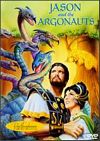
AMG REVIEW:
A quintessential Ray Harryhausen/Charles Schnerr fantasy adventure, Jason and the Argonauts also holds up relatively well as a representative genre film, considering the vast achievements in technological effects since the film's 1963 release. While the story and direction are ably accomplished, the real draw of this film -- as with any Harryhausen endeavor -- are the legendary stop-motion special effects that influenced scores of subsequent filmmakers and helped pave the way for the fantasy/science fiction blockbusters of the 1980s and beyond. On the other hand, the human cast of the film -- while delightful in their own little ways -- never comes close to matching the impressiveness of the effects, with acting that is more often than not overwrought and just plain silly. As an entertainment, however, Jason and the Argonauts remains a light and engaging diversion for the entire family, worthy of afternoon viewings even after all these years. -- Ryan Shriver

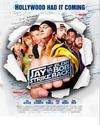

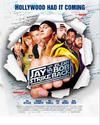




Based on the animated hit TV show of the 1970s, Josie and the Pussycats is a live-action tale of a group of young girl rockers who desire to make it big. Josie (Rachael Leigh Cook), Val (Rosario Dawson), and Melody (Tara Reid) make up an aspiring garage band that is discovered by shady megalomaniac executive Wyatt Frame (Alan Cumming), the sidekick to MegaRecords boss Fiona (Parker Posey), who runs an industry powerhouse that has been grooming the very successful boy band Du Jour. Unbeknownst to the band, MegaRecords is a company whose real intent is to brainwash young people, with subliminal messages inserted in CDs to assure a healthy sales record. Josie and her crew soon latch on to the real deal behind their new label and are forced to choose between their burgeoning rock-star success and doing what's right for future music lovers. The film also stars Gabriel Mann as Josie's love interest/folk singer Alan M. Its soundtrack features work by Counting Crows' Adam Duritz, the Go-Go's Jane Wiedlin, and Babyface. Rachael Leigh Cook's voice was dubbed by Letters to Cleo's Kay Hanley for the film's musical set pieces. -- Jason Clark
AMG REVIEW:
Satirizing teen wish-fulfillment fantasies as it satisfies them, Josie and the Pussycats provides just enough bite to set it apart from the cookie-cutter parade of high-gloss, adolescent-marketed offerings of the new century. Although laid on in thick, broad, fluorescent-hued strokes, Josie's pointed satire could never be mistaken for mere absurdity: the plot insinuates that boy bands, MTV, and mall record stores are all part of a corporate conspiracy to sell more Starbucks coffee and Abercrombie and Fitch T-shirts. Directors Deborah Kaplan and Harry Elfont occasionally let the film's staging and pacing go slack -- perhaps they should've reviewed a few more screwball comedies before shooting -- but they smartly keep the proceedings at Saturday morning-cartoon level (even the insidious subliminal-advertising generator is a giant, opaque plastic box). Better yet, leads Rachel Leigh Cook, Rosario Dawson, and Tara Reid strike a near-perfect balance between savvy and giddy; Reid's superlative dumb-blonde schtick, for instance, is the kind of performance only an intelligent actress can deliver. The film's catchy, proto-grunge soundtrack may be its greatest asset and -- at least commercially -- its biggest liability: full of raw power chords and hummable melodies, it's a throwback to the days of good punk-pop, as opposed to the saccharine, Britney-esque sound of its time. -- Michael Hastings






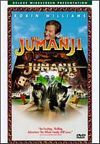
Jumanji is a visually elaborate fantasy about an enchanted board game that opens a magical portal to a jungle universe. Two young children, Judy (Kirsten Dunst) and Peter (Bradley Pierce), discover the game in an abandoned home and suddenly are greeted by Alan (Robin Williams), an adult who has spent his life trapped inside the game since playing it at age 12. Alan's only hope for freedom involves finishing the game, but this proves rather dangerous, as Judy, Peter, and Alan find themselves running for their lives from huge rhinoceroses, evil monkeys, vicious lions, and other terrifying jungle beasts. Director Joe Johnston, whose special-effects background previously came to good use in Honey, I Shrunk the Kids, used groundbreaking computer imagery to simulate the thrills. -- Judd Blaise
AMG REVIEW:
The imaginative children's novel by Chris Van Allsburg becomes this successful, if a bit too sour, big-budget action-adventure. The basic idea of Jumanji (1995) is certainly an inventive and exciting one: a board game in which a player can be literally drawn into a savage jungle world upon a losing roll of the dice. Where the film seems to go wrong is in having its milquetoast hero disappear for so long, only to reappear as a physically tougher but emotionally wounded adult played by Robin Williams. What this story needs is a sense of joy, of a small-minded town too concerned about appearances and normalcy getting its comeuppance. Instead, an underlying sense of tragedy (parents undone by a child's disappearance, other kids orphaned, childhood scars holding adults back from moving on in life) scuttles the whole endeavor. Director Joe Johnston has all the trappings just right, and the computer-generated critters are sufficiently frightening, exciting, and realistic. It's the film's somber emotional content that saps what should have been a wild ride of the giddy vibe that should have been fueling the trip. -- Karl Williams





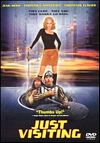
AMG REVIEW:
It must have been a real case of déjà vu -- to invoke a French phrase -- for the stars and director of Just Visiting, who worked together on the French-language original eight years earlier. But not all reunions are happy ones, and this one in particular fails to justify an update of the popular Les Visiteurs to 21st century Chicago. The location, chosen for American consumption, is problematic; now the magical potion must not only bend time from the 12th century, but also teleport its drinkers from England. But let's forget the conundrums, of which there are many, and concentrate on the ample flaws within the film's established framework. One glaring annoyance is that the transplanted royal (Jean Réno) shows none of the noble social graces to adapt to the customs of his hosts, still messily flinging table scraps to his subhuman manservant (Christian Clavier) even in Chicago's fanciest restaurant, despite the evident horror of those around. Some of this is supposed to be a joke about the congenital rudeness of the French, but it goes too far toward slapstick. Clavier eating and knocking over everything in sight continues the head-shaking trend. Christina Applegate does acquit herself well as a poor man's Jennifer Aniston and Tara Reid is likable in a smaller role. The film has some decent special effects and art direction, especially during an opening witchcraft-inspired hallucination by Réno's character. Ultimately, though, it's a pretty tired fish-out-of-water romantic comedy that only shows rare flickers of inspiration. -- Derek Armstrong


In this visually striking saga of one woman's search for personal and sexual freedom in 16th century India, Maya (Indira Varma) is a servant girl who is a handmaid to Tara (Sarita Choudhury), a princess. Maya and Tara have been close friends since childhood, and when Rasa Devi (Rekha), an elegant courtesan, is brought in to instruct Tara in the lessons of the Kama Sutra, the handbook of the art of physical love, Maya is allowed to observe. Rasa teaches Tara the Dance of Enticement as a prelude to her upcoming marriage to the King, Raj Singh (Naveen Andrews), but the beautiful Maya turns out to be the more capable student, and when Raj invites Maya to his bedchamber, he proves to be no match for her seductive powers. Needless to say, Tara is furious when she learns that Maya has stolen Raj's heart, and Maya is banished from the palace. On the road, Maya soon meets a handsome sculptor, Jai Kumar (Ramon Tikaram), who is entranced by Maya's beauty and sexual prowess; she soon becomes his lover and favorite model. However, King Raj is still obsessed with Maya, and while Tara has won his hand in marriage, he has taken to drowning himself in opium and mindless sex with his mistresses when not trying to win Maya back. Several of the erotic scenes in Kama Sutra: A Tale of Love were trimmed so the film could receive an "R" rating for its American theatrical release, but it appeared uncut on home video; the film had to be trimmed more extensively to gain a theatrical release in India, where it was filmed. -- Mark Deming
AMG REVIEW:
Despite its come-on title, Mira Nair's film is a serious study of sexual politics -- not that there isn't a more than a little sex in it, though. The film marked Nair's return to her native India after the mixed successes of her two Hollywood features, Mississippi Masala and The Perez Family. Indira Varma's Maya is a resourceful woman who understands that her options in life are limited by both her social station as a servant belonging to a lower caste and by her gender. Since there is nothing she can do about the former condition, she uses her powers as a woman schooled and skilled in the art of lovemaking to gain respect. Nair makes Maya totally sympathetic by contrasting her with her childhood friend Tara, for whom life has been far too easy, simply because she was born into royalty. Sex becomes a tool for Maya, and though the film's scenes of lovemaking are generally erotic, we're also aware that Maya is thinking beyond the pleasure principle to what it can gain her. -- Tom Wiener








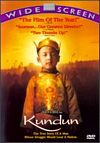
This Martin Scorsese film drama detailing the Dalai Lama's life story was in development for seven years, with the Dalai Lama having input into the 14 screenplay drafts by Melissa Mathison (The Black Stallion, E.T.). With four actors portraying the Dalai Lama at different ages, Scorsese's chronicle begins in 1933 with the death of the 13th Dalai Lama. Born in a remote area, the new Dalai Lama (seen at ages two and five in early sequences) is observed by monks who determine that he is the 14th reincarnation of the Buddha of Compassion. In 1944 the Dalai Lama uses newsreels and Western magazines to study WWII events, and as the war ends, he is forced to deal with Chinese Communist aggression. Protests from the Dalai Lama in 1949 are ignored as Mao (Robert Lin) maintains a military stranglehold on Tibet, eventually forcing the Dalai Lama to flee to Dharmsala, India. With a $28 million budget, Scorsese re-created Tibet's tragedy by filming in south-central Morocco with a cast of nonprofessional Tibetan actors. Second unit work took place at locations in Idaho and British Columbia. Avant-garde composer Philip Glass contributed a score with hypnotic, ritualistic overtones. -- Bhob Stewart
AMG REVIEW:
Having already tackled religion with The Last Temptation of Christ, Scorsese turned his spiritual eye to Tibet. The screenplay by Melissa Mathison is almost fable-like in its structure. The young Dalai Lama is raised to be the spiritual leader of a country that will, for all practical purposes, cease to be while he is still a young man, having been annexed by the Chinese government. Scorsese's camerawork communicates the torment the Dalai Lama feels being in the middle of political arguments he cares for so very little. In one memorable shot, the bodies of slain priests, clad in red robes, surround the Dalai Lama. The camera flies high into the air overhead leaving the Dalai Lama a speck in a sea of red. That shot encapsulates the Dalai Lama's feelings of frustration and symbolizes his fears. Christ, in Last Temptation, was conflicted. He was part God and part man. Those two parts struggled with each other just as the average person struggles between the flesh and the spirit. The Dalai Lama struggles not with his faith, but simply with his destiny. He never questions his relationship with God, making him a role model difficult to live up to. By presenting the Dalai Lama in this manner, Scorsese leaves this film the less engaging of his two religious films. While Kundun should be appreciated for the breathtaking cinematography by Roger Deakins, the beautiful, painterly compositions created by Scorsese, and the reverent tone Mathison brings to the screenplay, one is left with the feeling that Scorsese wanted to make a movie about the Dalai Lama more than he wanted to make a Martin Scorsese movie. -- Perry Seibert
AWARDS:
Best Art Direction-Set Decoration (nom) - Dante Ferreti - 1997 Academy
Best Art Direction-Set Decoration (nom) - Francesca Lo Schiavo - 1997 Academy
Best Cinematography (nom) - Roger Deakins - 1997 Academy
Best Costume Design (nom) - Dante Ferreti - 1997 Academy
Best Original Dramatic Score (nom) - Philip Glass - 1997 Academy
Best Original Score (nom) - Philip Glass - 1997 Golden Globe
Best Music Score (win) - Philip Glass - 1997 L.A. Film Critics Association

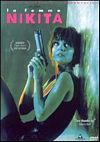
The serpentine plotline of Luc Besson's La Femme Nikita begins its 117-minute slither when punkish Nikita (Anne Parillaud) kills a cop and is sentenced to death. On the brink of execution, she is "saved" by French intelligence officer Bob (Tcheky Karyo). With the government's blessing, Bob lovingly coaches Nikita in the proper social graces--and also tutors her in the subtle art of political assassination. The paradoxical concept of a young woman blossoming socially while carrying out cold-blooded murders was downplayed when La Femme Nikita was remade in America as Point of No Return, with Bridget Fonda in the lead. A far less sociopathic TV-series version of La Femme Nikita surfaced on the USA Cable Network in early 1997. -- Hal Erickson
AMG REVIEW:
Nikita (renamed La Femme Nikita for the U.S.) is writer-director Luc Besson's rhythmic, ultra-stylish, and gleefully ridiculous 1990 hit movie. A mixture of Pygmalion, Diva, and one of John Woo's choreographed action pictures, the film was one of a sub-genre of action pictures to emerge in the 1990s, characterized by tongue-in-cheek stylistics and a hip, film noir-ish sensibility. Anne Parillaud, Besson's wife at the time, gives the film a sullen, acrimonious seriousness often missing in American films of this same type (i.e., Killing Zoe, The Long Kiss Goodnight). Nikita was remade in Hollywood as Point of No Return with Bridget Fonda and in Hong Kong as Black Cat; the film also spawned an American cable-television show called La Femme Nikita. -- Brendon Hanley
AWARDS:
Best Actress (win) - Anne Parillaud - 1990 French Academy of Cinema
Best Foreign-Language Film (nom) - 1992 Golden Globe







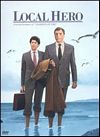
AMG REVIEW:
This warm-hearted fish-out-of-water tale highlights the cultural differences (and underlying similarities) between a big city American capitalist and small town Scottish villagers. Just as Mac falls in love with the country and its people, the villagers are equally seduced by his promises of instant, immense wealth. Rather than exploiting the cliché of an evil American oil company battling plucky Scottish townfolk, writer/director Bill Forsyth pursues a quirkier and more intriguing theme of the seduction of the Old World by the New, an idea that has animated such dissimilar works as Vladimir Nabokov's Lolita. Forsyth's use of "magical realism" is equally understated and restrained. This Scotsman's deadpan, self-deprecating satire of his countrymen is more indebted to Alexander Pope than to the more savage Jonathan Swift. The whimsical characters may be oddballs, but they are not gullible hicks: they want the Americans to show them the money. Forsyth's gags rarely occur at the expense of people's dignity, instead highlighting our basic human frailty. Chris Menges gives us many panoramic shots of the surprisingly beautiful Scottish landscape, while Mark Knopfler's plaintive soundtrack perfectly accents the proceedings. The performances of Burt Lancaster as the eccentric and ambitious oil tycoon is a constant delight, while Peter Riegert's Mac is appropriately (and alternately) flustered and smitten. -- Dan Jardine
AWARDS:
Best Direction (win) - Bill Forsyth - 1983 British Academy Awards
Best Screenplay (win) - Bill Forsyth - 1983 New York Film Critics Circle
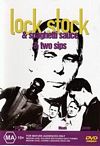

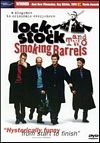
British writer Guy Ritchie made his feature directorial debut with this crime-caper comedy-drama set in London's East End and heavy on the Cockney dialogue (with one scene in subtitled Cockney rhyming slang). A big-bucks scheme goes awry: Cardsharp Eddy (Nick Moran) and pals Bacon (Jason Statham), Tom (Jason Flemyng), and Soap (Dexter Fletcher) scuffle to pile up enough money to put Eddy at the card table opposite gangland porn lord Hatchet Harry (P.H. Moriarty). Unfortunately, the whole plan backfires, leaving Eddy owing Harry a huge sum, payable within the week. In truth, Harry hopes to acquire the bar run by his rival, J.D. (Sting), who is Eddy's father. To raise the cash, Eddy sets out to steal from a marijuana business run by Winston (Steven Mackintosh), but the inevitable gunplay doesn't make for an easy heist. World premiere at the 1998 Edinburgh Film Festival (Focus on British Cinema). -- Bhob Stewart
AMG REVIEW:
Guy Ritchie's directorial debut Lock, Stock and Two Smoking Barrels is a work of artistic originality as well as an accurate portrayal of life as an Eastender. A rabid, farcical look at gangsters in East End London, it contains mayhem at the center of every scene and gains additional intensity from the slow-motion technique Ritchie employs in many of his death sequences. Ritchie's manipulation of these sequences forces his audience to experience the full pain of the events by seeing every detail frame by frame, something particularly apparent in the director's handling of the boxing-ring poker game that catalyses the story. A series of different angles and techniques convey the pressure each character at the table is feeling, and the use of slow motion makes it impossible for the audience to ignore the pain and anguish that Eddy (expertly played by Nick Moran) must feel when he realizes he is losing a lot of money. One major criticism of Lock, Stock, however, is the tired exploitation of Northern people as comic relief; Ritchie's colloquialism-filled script creates the feeling of London's gangster-ridden East End, but the stereotyping of two bumbling Liverpool thieves adds nothing new or creative to British cinema. In general, while the accents make it difficult to pick up much of Ritchie's subtle dialogue, the film is a rollercoaster experience of action, death, and deception that is definitely worth seeing. -- Laura Abraham

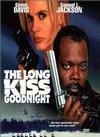






This $90 million science fiction adventure is adapted from the television series, created by Irwin Allen, which originally ran on CBS from 1965 to 1968. The original series employed a Swiss Family Robinson in outer space premise; sent to colonize a planet in the Alpha Centauri system, the Robinson family was thrown off course by a stowaway and was left wandering from planet to planet (and changing along the way from a black-and-white series to a color series). The 1998 remake is set in the year 2058, when the United Global Space Force sends Professor John Robinson (William Hurt) and family -- wife Maureen (Mimi Rogers), daughter Judy (Heather Graham), teen Penny (Lacey Chabert), and 10-year-old Will (Jack Johnson) -- on a promotional space jaunt to herald the "offshore" future for the human race (now saddled with eco problems on Earth). Major Don West (Matt LeBlanc), more accustomed to fighting menacing Global Sedition forces, is reluctant to sign on as the Jupiter II pilot but quickly changes his mind after he gets a good look at Judy in her fetish-fashioned space togs. Space spy Dr. Smith (Gary Oldman), hired to sabotage the mission, programs in problems but winds up aboard the craft unconscious. Once awake, he summons the Robinsons from suspended animation, and they save the ship just in time, passing through hyperspace to arrive near an Earth ship where they encounter space-pet Blawp and hordes of teethy spiders. A spider bite makes the villainous Smith mutate, one of some 750 special effects, from animatronics (Jim Henson Creature Shop) to CGI, and other adventures await throughout the galaxy. Cameos include actors from the original series, including June Lockhart and Robot Voice Dick Tufeld. In a curious coincidence, the TV series took place in the future of 1997, the year this movie was produced. -- Bhob Stewart
AMG REVIEW:
The Robinson family is lost again, and Dr. Smith, Major West, and that devoted Robot are embarking on an all-new space odyssey. New Line Cinema's big-screen Lost in Space update is nothing more than an empty big-budget dud that may quickly put audiences into "cryosleep." Filled to the brim with murky visuals and canned characters, this retro-remake seems more two-dimensional than the original, schlocky '60s TV show. Director Stephen Hopkins engulfs his cast in special effects, but viewers also need a helping of lucid story to accompany the film's tasty CGI. The pointless and prolonged action segment featuring an army of mechanical spiders proves to be somewhat suspenseful, but the narrative is sucked into a black hole once the Robinsons crash-land on the deteriorating planet. Both the director and writer must not realize that it's physically impossible for our heroes to be "lost in space" when they are stranded on a drab and desolate planet. Perhaps the movie would have been easier on the eyes if cinematographer Peter Levy photographed his subjects in bright colors, instead of a dingy pallet of muted tones. The A-list cast, which includes Gary Oldman, Mimi Rogers, Heather Graham, and William Hurt, is shackled to flat dialogue and given little opportunity to exhibit their talents. What originally seems like a promising space adventure based on a beloved TV show ultimately becomes a tired affair of flashy special effects without any rocket fuel to back it up. -- Adam Goldberg




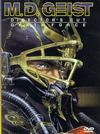








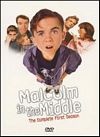
Best Actor - Comedy or Musical Series (nom) - Frankie Muniz - 2000 Golden Globe
Best Actress - Comedy or Musical Series (nom) - Jane Kaczmarek - 2000 Golden Globe
Best Television Series - Comedy or Musical (nom) - 2000 Golden Globe
Best Actress in a Comedy Series (nom) - Jane Kaczmarek - 2000 Screen Actors Guild
Best Comedy Series (nom) - 2001 American Film Institute
Best Female Actor in a Television Series (nom) - Jane Kaczmarek - 2001 American Film Institute
Best Actor - Television Musical or Comedy (nom) - Frankie Muniz - 2001 Golden Globes
Best Actress - Television Musical or Comedy (nom) - Jane Kaczmarek - 2001 Golden Globes
Best Actress in a Television Series - Musical or Comedy (nom) - Jane Kaczmarek - 2002 Golden Globe
Best Supporting Actor in a Series, Mini-Series or Motion Picture (nom) - Bryan Cranston - 2002 Golden Globe
Best Television Actress - Comedy (nom) - Jane Kaczmarek - 2002 Screen and Actors Guild
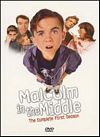
Best Actor - Comedy or Musical Series (nom) - Frankie Muniz - 2000 Golden Globe
Best Actress - Comedy or Musical Series (nom) - Jane Kaczmarek - 2000 Golden Globe
Best Television Series - Comedy or Musical (nom) - 2000 Golden Globe
Best Actress in a Comedy Series (nom) - Jane Kaczmarek - 2000 Screen Actors Guild
Best Comedy Series (nom) - 2001 American Film Institute
Best Female Actor in a Television Series (nom) - Jane Kaczmarek - 2001 American Film Institute
Best Actor - Television Musical or Comedy (nom) - Frankie Muniz - 2001 Golden Globes
Best Actress - Television Musical or Comedy (nom) - Jane Kaczmarek - 2001 Golden Globes
Best Actress in a Television Series - Musical or Comedy (nom) - Jane Kaczmarek - 2002 Golden Globe
Best Supporting Actor in a Series, Mini-Series or Motion Picture (nom) - Bryan Cranston - 2002 Golden Globe
Best Television Actress - Comedy (nom) - Jane Kaczmarek - 2002 Screen and Actors Guild
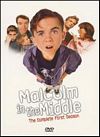
Best Actor - Comedy or Musical Series (nom) - Frankie Muniz - 2000 Golden Globe
Best Actress - Comedy or Musical Series (nom) - Jane Kaczmarek - 2000 Golden Globe
Best Television Series - Comedy or Musical (nom) - 2000 Golden Globe
Best Actress in a Comedy Series (nom) - Jane Kaczmarek - 2000 Screen Actors Guild
Best Comedy Series (nom) - 2001 American Film Institute
Best Female Actor in a Television Series (nom) - Jane Kaczmarek - 2001 American Film Institute
Best Actor - Television Musical or Comedy (nom) - Frankie Muniz - 2001 Golden Globes
Best Actress - Television Musical or Comedy (nom) - Jane Kaczmarek - 2001 Golden Globes
Best Actress in a Television Series - Musical or Comedy (nom) - Jane Kaczmarek - 2002 Golden Globe
Best Supporting Actor in a Series, Mini-Series or Motion Picture (nom) - Bryan Cranston - 2002 Golden Globe
Best Television Actress - Comedy (nom) - Jane Kaczmarek - 2002 Screen and Actors Guild



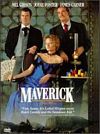
A gunslinging con man develops a tricky scheme to make a killing at a major poker tournament in this comic Western inspired by the popular television show. Mel Gibson assumes the role of Bret Maverick, the handsome rogue who hopes to cheat his way to success. In need of a large stake to enter a major card competition on a Louisiana steamboat, Maverick decides to take advantage of a few small-town poker players. These include the seemingly sweet Annabelle Bransford (Jodie Foster) and the intimidating Angel (Alfred Molina), neither of whom is too happy about their loss. Things become even more complicated for Maverick when the law gets involved, with Marshal Zane Cooper (James Garner, who played the role of Maverick in the original television series) giving chase. A series of stagecoach chases, complicated cons, and gun battles ensues, with Annabelle and Maverick finding time for plenty of flirtation along the way. -- Judd Blaise
AMG REVIEW:
Mel Gibson transplants his winking, nothing-can-go-wrong attitude from the Lethal Weapon movies to this high-energy, tongue-in-cheek update of the classic Western TV series, co-starring James Garner and Jodie Foster. After three previous collaborations, Gibson and Richard Donner are so familiar with one another that Maverick feels effortless, even during its big production numbers and smartly choreographed chase sequences. This is both an endearing quality and a fault of the film. Everyone is having such a good time, and the tone is so light, that even when Gibson is tied up on horseback with a noose around his neck, about to be lynched, he seems to know the situation will have a humorous outcome. The result is a film utterly satisfied with existing as big-budget escapism, whose empty core is beside the point. Beyond Gibson at his most glib and charming, Maverick finds Garner in winning form, serving as the link to the old series, and Foster indulging in surprisingly commercial fare by her standards, to good effect. This cartoon world of gunslingers, whose wit is as quick as their draw, culminates in a grand riverboat poker game, full of double, triple, and quadruple crosses. It's nothing more than a pre-packaged popcorn flick, but it's a reasonably fun one. Maverick was screenwriter William Goldman's first return to the Old West after Butch Cassidy and the Sundance Kid. -- Derek Armstrong
AWARDS:
Best Costume Design (nom) - 1994 Academy

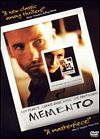
AMG REVIEW:
Christopher Nolan's crafty, twisty thriller builds itself on the foundation of film noirs past and present, but what gives it its own special kick is Nolan's steadfast determination against sentimentalizing his characters or subject, which immediately gives the film turf credibility. Memento is built on a device that doesn't always work in other pictures -- the narrative is told in reverse -- but here it has a pulsating life all its own. Nolan's taut screenplay and inventive direction find the nasty heart of the central tale, and the cast members offer juicy performances -- especially the versatile Guy Pearce, who manages a convincing zigzag of emotions and attitudes. One could argue that Memento is a bit too cold to truly mesmerize, but even for its chilliness, the film works as a labyrinthine entertainment. Its smart sensibility and willingness to embrace the best of its noir origins is what makes it memorable. This film was the toast of the 2001 Sundance Film Festival, picking up the Waldo Salt Screenwriting Award -- though many carped it should have taken additional prizes. -- Jason Clark
AWARDS:
Best Film Editing (nom) - Dody Dorn - 2001 Academy
Best Original Screenplay (nom) - Christopher Nolan - 2001 Academy
Best Original Screenplay (nom) - Jonathan Nolan - 2001 Academy
Best Editing (nom) - Dody Dorn - 2001 American Film Institute
Best Picture (nom) - Jennifer Todd - 2001 American Film Institute
Best Picture (nom) - Suzanne Todd - 2001 American Film Institute
Best Screenplay (win) - Christopher Nolan - 2001 American Film Institute
Best Picture (nom) - 2001 Broadcast Film Critics Association
Best Screenplay (win) - Christopher Nolan - 2001 Broadcast Film Critics Association
Best Screenplay (win) - Christopher Nolan - 2001 Broadcast Film Critics Association
Best Director (nom) - Christopher Nolan - 2001 Director's Guild of America
Best Screenplay (nom) - Christopher Nolan - 2001 Golden Globes
Best Screenplay (win) - Christopher Nolan - 2001 L.A. Film Critics Association
#4 Film of the Year (win) - 2001 National Board of Review
Waldo Salt Screenwriting Award (win) - Christopher Nolan - 2001 Sundance



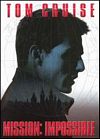
After he is framed for the death of several colleagues and falsely branded a traitor, a secret agent embarks on a daring scheme to clear his name in this spy adventure. Though it drew its name from the familiar television series, director Brian DePalma's big-budget adaptation shares little more with the original show than the occasional self-destructing message and the name of team leader Jim Phelps (Jon Voight). The film focuses not on Phelps but his protégé, Ethan Hunt (a reserved Tom Cruise), who becomes a fugitive after taking the blame for a botched operation. He responds by banding together with a group of fellow renegades, and he is soon maneuvering his way through a twisted series of double crosses that mainly serve as excuses for spectacular high-tech action sequences. Much of the activity revolves around a missing computer disk, with the film's most famous scene depicting Hunt's delicate efforts to retrieve the disk from a secure, well-alarmed room in CIA headquarters. -- Judd Blaise
AMG REVIEW:
A superior summer blockbuster in nearly every respect, this Brian De Palma-helmed adaptation of the '60s TV series provoked a lot of unnecessary head-scratching at the time for having a plot that actually required attention to follow (a criticism its inferior 2000 sequel apparently took to heart). But even those put off by David Koepp, Steve Zallian, and Robert Towne's twisty screenplay still had plenty to enjoy: a charismatic lead performance from Tom Cruise, a well-chosen supporting cast, and some unforgettable set pieces to rank with the best of De Palma's career. Not that the film itself does. Clever without really being about more than its action sequences, nifty gadgets, and memorable locations (although it might be argued that all those surveillance devices tap into some familiar themes), this is clearly De Palma working as a director-for-hire. But like the best hired help, he gets the job done and then some. -- Keith Phipps


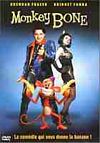

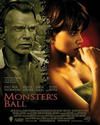
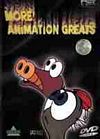



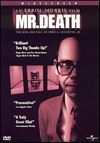
Throughout his work, documentary filmmaker Errol Morris has sought out characters lost in their own eccentric worlds, and he has managed to convey their sense of wonder with their passion, be it a topiary gardener arguing the merits of hand shears in Fast, Cheap & Out of Control (1997) or astrophysicist Stephen Hawking discussing the origin of the universe in A Brief History of Time (1992). In his most provocative work since The Thin Blue Line (1988), Morris details what happens when this interior dreamscape collides with the hard facts of history. As a young man accompanying his father to work at a state prison, Fred A. Leuchter, a bespectacled mouse of a man, learned how inefficient and inhumane most executions were, and he set out to design and build a better electric chair. Soon he began getting offers from state institutions throughout the country to redesign their electric chairs, along with gas chambers, gallows, and lethal injection machines. He quickly became a renowned expert in capital punishment. With Morris's typical ironic gaze, the audience listens, part-laughing, part-aghast, as Leuchter discusses the relative merits of one execution method over another. Up to this point, the film seems like a morbid extension of Fast, Cheap & Out of Control -- until Morris takes a sudden and daring turn into uncharted territories. When the notorious Nazi sympathizer Ernest Zündel was arrested in Canada, he needed an expert witness to corroborate his assertion that the Holocaust was a hoax; and Leuchter soon found himself chiseling chunks from the gas chamber walls in Auschwitz -- on his honeymoon. His illegal samples showed no significant residue of cyanide, so he concluded that the Holocaust did not happen. He soon became a celebrity of the neo-Nazi set: he testified on behalf of Zündel, gave lectures around the world, and published the Holocaust revisionist tract Leuchter Report. Much to his surprise, his death-machine business began to flounder, his marriage collapsed, and he found himself pursued by Jewish organizations and creditors. What makes this film so chilling is that Leuchter does not appear to be an ideologue. Instead, the audience is presented with a seemingly sane, albeit eccentric, individual, whose faith in his ability to reason was undone by his vanity and simple-mindedness. This film was screened at the 1999 Toronto Film Festival. -- Jonathan Crow
AMG REVIEW:
In an act of cinematic self-destruction to rival that of Senator Joseph McCarthy's more public meltdown in Emile De Antonio's Point of Order, Fred Leuchter, self-professed capital punishment expert, not only allows himself to be used by a nefarious Holocaust denier, he also permits director Errol Morris to capture the entire process on film. Hubris or sheer stupidity? It's hard to tell, because for the first third of the film, as Leuchter calmly discusses various modes of execution, it's possible to see him as no more than a zealous professional. Once he falls in with the notorious neo-Nazi Ernest Zündel, Leuchter's profound devotion to his profession becomes his undoing, though the film never loses its sense of the absurd. The sight of a man spending his honeymoon in Auschwitz taking samples off the walls of the gas chambers to prove that the Jewish inmates were not gassed isn't just tragic; it's laughable. Morris is clearly appalled by Leuchter, but he's also amazingly compassionate about the man's self-delusions. He also knows that a story this good practically tells itself, and he keeps out of the way as much as possible, allowing Leuchter to be his own executioner. -- Tom Wiener










One woman's rocky road to the altar gets played for laughs in this comedy, adapted from the one-woman off-Broadway show written by and starring Nia Vardalos. Toula (Vardalos) is a Greek-American woman who is in her early thirties and single, with no immediate prospects of changing that status any time soon. This bothers Toula a bit, but not half as much as it distresses her mother (Lainie Kazan) and father (Michael Constantine), who want to send her to Greece in hopes of finding a husband in the old country. Toula isn't interested in leaving the country to find a man, but since she works in the family business -- a Greek restaurant in Chicago called Dancing Zorba's -- she has to hear about it whether she likes it or not. One day, after seeing a handsome stranger in the restaurant and not having the courage to talk to him, Toula decides she needs a bit of self-improvement. Despite her dad's misgivings, Toula signs up for a night-school class studying computers, trades in her glasses for contact lenses, gets a different job at a travel agency, and spruces herself up with a new look and a new attitude. To her very pleasant surprise, she once again encounters the handsome stranger, who soon asks her out on a date. Schoolteacher Ian Miller (John Corbett) is seemingly perfect -- he's tall, handsome, smart, good-natured, and soon in love with Toula -- except for two little things: he's not Greek, and he's a vegetarian, both of which horrify Toula's family. When Ian pops the question (and Toula says yes), the bride-to-be has to negotiate a reasonably peaceful meeting between Ian's upper-class parents and her own working-class extended family. There's also the matter of the wedding, which Toula's mother is planning around the notion that quantity IS quality. My Big Fat Greek Wedding also features Ian Gomez (Vardalos' real-life husband), Louis Mandylor, Andrea Martin, and Joey Fatone (from the pop group *NSYNC). Tom Hanks and Rita Wilson helped produce the film through the auspices of their production company, Playtone. -- Mark Deming
AMG REVIEW:
My Big Fat Greek Wedding, a modest, likeable comedy, would have been less effective if it had been put through the Hollywood system. Nia Vardalos' script has enough Hollywood convention in it that having a newcomer in the lead automatically brings to it a freshness that a romantic comedy superstar like Julia Roberts or Sandra Bullock would have had a difficult time mustering. There is no cynicism in the film, which may make it difficult for some viewers to take. Vardalos and the rest of the performers seem genuinely amused by the clichéd scenarios and the familiar bits of comedic business they are given to play. They either find new ways to make the material work, or simply radiate goodwill toward each other and the audience to such an extent that the audience reciprocates. Maintaining a charming ease for its entire ninety-five minute running time, Vardalos and her cast desire nothing but the commendable goal of entertaining their audience. This is an unabashedly warm and friendly film that was seemingly made for all the right reasons. -- Perry Seibert
AWARDS:
Best Original Screenplay (nom) - Nia Vardalos - 2002 Academy
Best Acting Ensemble (nom) - 2002 Broadcast Film Critics Association
Best Writer (nom) - Nia Vardalos - 2002 Broadcast Film Critics Association
Best Actress - Musical or Comedy (nom) - Nia Vardalos - 2002 Golden Globe
Best Picture - Musical or Comedy (nom) - 2002 Golden Globe
Best Debut Performance (nom) - Nia Vardalos - 2002 IFP Independent Spirit Award
Best Cast (nom) - 2002 Screen and Actors Guild
Best Original Screenplay (nom) - Nia Vardalos - 2002 Writers Guild of America



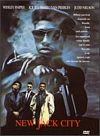
The ruthless leader of a New York City drug syndicate battles to maintain his power and avoid imprisonment in this fast-moving action drama. While the film's heroes are Scotty (Ice-T) and Nick (Judd Nelson), a pair of tough, streetwise cops, the main focus is their target, drug lord Nino Brown (Wesley Snipes). A criminal businessman with no room for pity or emotion, the flashy but severe Brown has built an empire and transformed an abandoned Harlem apartment building into a well-defended fortress. He begins to consider himself invincible, but his lust for power and the unpredictable actions of a former client turned police informer threaten to bring about his potential downfall. First-time director Mario Van Peebles keeps the traditional plot moving at an appropriately rapid pace, with stylish action sequences and energetic performances. The film's violence was somewhat controversial on its initial release, especially after shooting incidents marred showings in several theaters. However, the film's moral message is clearly anti-drug and anti-crime, its main intent to provide a high-powered, modern take on the gangster movie. -- Judd Blaise
AMG REVIEW:
Director Mario Van Peebles' debut feature is far from original, but Wesley Snipes' charismatic performance, its nonstop action, rocketing pace, and anti-drug message all contribute to the impact of this well-executed genre film. A fusion of Scarface (1932), Public Enemy (1931), The Godfather (1972), and a dozen other gangster rise-and-fall sagas, it's both a glamorous chronicle of the swiftly burgeoning power of crack in the New York of the 1980s and a scathing cautionary tale. "Ya gotta rob to get rich in the Reagan era," Snipes' drug kingpin informs his loyal troops, and like Coppola's masterpiece, the film links crime with business as the hard-working capitalists ply their trade. As the drug gang turns an abandoned Harlem building into their personal fortress, the film recalls the ease with which the crack lords once dominated entire areas of New York. Snipes, arrogant, narcisstic, methodical, ruthless, and magnetic in his evil, has rarely been better. Ice-T and Judd Nelson make a strange pair of narcotics detectives, but here, they rise to the occasion. -- Michael Costello





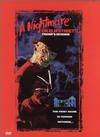



Jubei Yagyu, the hero from the popular anime Ninja Scroll returns in this violent animated adventure from Japan. As the Tokugawa Shogunate strives to unify Japan in the 17th century, a group of Christian rebels has proclaimed Tokisada Shiro Amakusa to be the Son of God as they attempt to bring down the new government. Yagyu tries to persuade Amakusa to back down, but when he refuses, fighting breaks out, with the Christians defending Amakusa with great zeal -- they believe that if he is killed or forced to step down from power, Satan will rise and take his place. This video release features two installments from the Ninja Resurrection series, The Revenge of Jubei and Hell's Spawn. -- Mark Deming







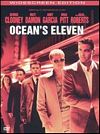
A rag-tag group of con artists and ex-cons team up for the heist to end all heists in this high-profile remake of the 1960 Rat Pack favorite. As with its predecessor, Ocean's Eleven opens with its titular hero Danny Ocean (George Clooney stepping into the Frank Sinatra role) eager for a new challenge. The similarities to the original end there, as Ocean conspires with his old pal Rusty Ryan (Brad Pitt) to rob 150 million dollars from an underground vault that serves three of Las Vegas' biggest casinos. Between the two of them, they recruit nine other men, each with his own criminal specialty, to assist in the mission: moneyman Reuben Tishkoff (Elliot Gould), card dealer Frank (Bernie Mac), pickpocket Linus (Matt Damon), aging con artist Saul (Carl Reiner), British explosives pro Basher (Don Cheadle), techie Dell (Eddie Jemison), rude-boy brothers Virgil (Casey Affleck) and Turk (Scott Caan), and professional acrobat Yen (Shaobo Qin). What Ocean doesn't tell the group is that there's another reason he's coordinating the heist: the three casinos they're robbing are all owned by ruthless gambling mogul Terry Benedict (Andy Garcia), who just happens to be married to Ocean's former love Tess (Julia Roberts). Ocean's Eleven was updated by scribe Ted Griffin and marked the third feature shot by director Steven Soderbergh under the alias Peter Andrews. -- Michael Hastings
AMG REVIEW:
Cool, calm, collected, and low-key -- almost to a fault -- director Steven Soderbergh's starry remake of 1960's plodding Rat Pack vehicle may be little more than a muscle-stretching exercise for the newly minted Oscar-winner, but at least it's an audience-pleasing one. Ocean's Eleven is a hodgepodge of some of the director's pet influences: the deft multi-character juggling of Robert Altman, the just-the-facts policier technique of Jules Dassin or Francois Truffaut, and even some of the high-gloss pyrotechnics of David Fincher or John McTiernan. In many ways, it's Soderbergh's least distinctive film: the casual explosions, rag-tag rapport, and only-in-the-movies plot conveniences are just a notch away from the territory of the director's one-time nemesis Jerry Bruckheimer. Where he makes the material his own is in the casting -- this motley crew is more geek than chic, and they all play off each other incredibly well -- and in the zippy dissection of the complex heist. So while Ocean's Eleven isn't as funny or as involving as it could be -- in other words, it's not Out of Sight Part II -- watching Soderbergh spin his wheels is still more enjoyable than just about anything out there. -- Michael Hastings
AWARDS:
Best Acting Ensemble (nom) - 2001 Broadcast Film Critics Association
#3 Film of the Year (win) - 2001 National Board of Review
Best Foreign Film (nom) - 2002 French Academy of Cinema









AMG REVIEW:
A classic in the martial arts genre, Tsui Hark's Once Upon a Time in China, which has inspired three sequels, is a flashy, spirited film featuring Jet Li in one of his best roles. This period piece set in the 19th century deals with Western customs and modern weaponry and their effect on Chinese culture. It's too bad that this idea couldn't have been taken more seriously, rather than making all the Westerners into comic book bad guys. The plot and politics about Westerners ruining China really don't work, and the humor, like so many movies in this genre, is over-the-top hokey and made worse by dubbed voices that all sound American. What you're left with are spectacular, artful fight scenes, and these make up for the clunky script and goofball comedy. Li is a marvel, defeating hundreds of enemies with his small frame and quick, perfect movements. The final battle aboard a clipper ship is the movie's finest. This could have been an even better film if it took its subject matter and story seriously, but Once Upon a Time in China does succeed in being completely entertaining. -- Adam Bregman



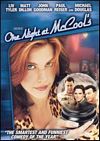
AMG REVIEW:
Matt Dillon makes a disappointing return to the screen after a three-year absence with this abysmal "comedy" that is one of the year's most misogynistic and puerile films, an astonishingly bad debut for the production company of co-star Michael Douglas. To be fair, director Harald Zwart and late screenwriter Stan Seidel aren't just presenting offensive stereotypes of women here, they're doing the same to the other sex. The film's central female figure is seen only through the wish-fulfillment fantasies of the men she encounters, while they in turn utterly ignore the sometimes easily discernible truth about her character and bestow upon her whatever qualities they wish to find. By turns sexy, motherly, virginal, abused, coquettish, and helpless -- depending on who's interpreting her -- Jewel (Liv Tyler) is not a character, she's an icon. In true femme fatale fashion, she's using her power over the panting, mindless males she encounters to get what she wants, namely consumerist symbols of success, safety, and comfort. The minds that conceived and executed this lame-brained, stereotype-reinforcing exercise have some serious issues about their ideas to work out in therapy regarding men, women, and relationships; but it's not necessary for an audience to sit through their effort to grapple with their limitations on celluloid. One Night at McCool's (2001) is a major dud and a big-time letdown from talents such as Dillon and Douglas, whose scenes together, goofy as they are, are the only things worth seeing in the film. -- Karl Williams





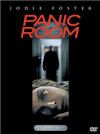











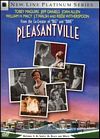
Gary Ross, Oscar nominated for his Dave and Big screenplays, made his directorial debut with this comedy. The cheerful '50s TV sitcom "Pleasantville" is revived in the '90s for a loyal cable audience. One devoted fan is shy suburban teen David Wagner (Tobey Maguire), who has an almost obsessive interest in the series. Living with his divorced mother (Jane Kaczmarek), David sometimes has disputes with his ultra-hip twin sister Jennifer (Reese Witherspoon). She wants to watch MTV just when a Pleasantville marathon is about to begin. They struggle over the remote control, and it breaks. A strange TV repairman (Don Knotts) supplies their new remote, a potent high-tech device which zaps David and Jennifer inside Pleasantville, where their new sitcom parents are businessman George Parker (William H. Macy) and wife Betty (Joan Allen). As "Bud" and "Mary Sue," the teens take up residence in a black-and-white suburbia where sex does not exist and the temperature is always 72 degrees. Life is always pleasant, books have no words, bathrooms have no toilets, married couples sleep in twin beds, the high school basketball team always wins, and nobody ever questions "The Good Life." David revels in Pleasantville's Prozac-styled peacefulness. He fits right in, but Jennifer's 1990s attitude upsets the blandness balance, painting parts of Pleasantville in "living color." Repressed desires surface, cracks appear in the '50s lifestyles, and the Pleasantville populace finds their lives changing in strange, wonderful ways. It's liberating -- but there's also a darker side. This film breaks an all-time record with more than 1700 special effects shots. Shown at the 1998 Toronto Film Festival. -- Bhob Stewart
AMG REVIEW:
The directorial debut of notable screenwriter Gary Ross, this whimsical take on television, modernism, and traditional values often tells its tale with a heavy hand (especially in vignettes involving racism and infidelity), but its strikingly-realized mise en scene compensates for the script's meandering. Armed with some of the late-90s' most outstanding acting talent, Pleasantville resonates with noble intentions: one cannot fault the film for lack of ambition, even if it's never as satisfying as it should be dramatically. Ross utilizes truly innovative special effects, combining vibrant color with rich black-and-white, often in the same scene, mirroring the personalities of the characters and their feelings. The second of two high-profile films in 1998 (the other being The Truman Show to address television's relation to society, especially pertaining to spectatorship, Pleasantville also marked the final big-screen appearance of beloved character actor J.T. Walsh, who shines as an old-school values family man. -- Jason Clark
AWARDS:
Best Art Direction/Set Decoration (nom) - Jeannine Oppewall - 1998 Academy
Best Art Direction/Set Decoration (nom) - Jay R. Hart - 1998 Academy
Best Costume Design (nom) - Judianna Makovsky - 1998 Academy
Best Original Dramatic Score (nom) - Randy Newman - 1998 Academy
Best Supporting Actress (win) - Joan Allen - 1998 Broadcast Film Critics Association
Best Production Design (win) - Jeannine Oppewall - 1998 L.A. Film Critics Association
Best Supporting Actress (win) - Joan Allen - 1998 L.A. Film Critics Association



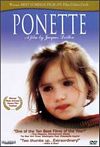
AMG REVIEW:
Not long after graduating from diapers, four-year-old Victoire Thivisol won the Venice Film Festival's Best Actress award for her performance in this 1996 French film. She deserved the award for her moving portrayal of Ponette, a little girl coping with the death of her mother (Marie Trintignant). But the film itself is a bit wearisome. In its attempt to fathom Ponette's burden of grief and terror, it follows her through bout after bout of crying. It is truly remarkable that a four-year-old can turn her emotions on and off with such ease and with such a powerful effect, and the gimmick works for a while. Unfortunately, director Jacques Doillon takes Ponette's grief to implausible extremes, turning her into a virtual cloudburst. Of course, virtuosic crying cannot be justified by mere death alone, so Doillon cooks up other ways to make her cry. One is to have Daddy (Xavier Beauvois) tell her how dumb Mommy was for having a car crash. Another is to have Daddy drop her at a boarding school when she needs him most. And in the pièce de résistance, Ponette's playmates immure her in a dumpster as a kind of trial by ordeal that will qualify her to become a "child of God," enabling her to make contact with her mother. Ponette ends up pawing at her mother's grave and asking her playmates to help her die. But, wonder of wonders, the time comes when Ponette has a beautiful vision (or dream, or hallucination, or mirage, or possibly even miracle) that corks her lachrymal glands. The film is worth seeing -- if you like angst for angst's sake or if you want to witness the acting precocity of Thivisol and the other children, including Matiaz Caton, Leopoldine Serre, and Delphine Schiltz. But don't expect much of a plot or script. -- Mike Cummings
AWARDS:
Critics Prize (win) - 1996 São Paulo International Film Festival
Volpi Cup for best female performance (win) - Victoire Thivisol - 1996 Venice Film Festival









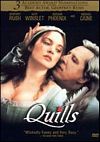
AMG REVIEW:
Philip Kaufman's taut, economical dramatization of the latter years of the Marquis de Sade may sacrifice historical accuracy in the name of high entertainment, but makes for essential viewing nonetheless, thanks in large part to the bold, uncompromising work of lead Geoffrey Rush. All of Rush's film work to date seems to inform his rendering of de Sade: the mania, desperation, and dogged conviction he displayed (with varying degrees of success) in films such as Shine (1996), Children of the Revolution (1996), and Elizabeth (1998) are all in perfect balance here. In a return to form after 1993's dismal Rising Sun, Kaufman seems determined to transcend the stage origins of Doug Wright's screenplay, employing cunning camerawork, convincingly decrepit locales, and crisp editing in order to keep the film's forward momentum from sagging. Still, packed as it is with clever turns of phrase and convenient plot developments, Quills could never be mistaken for a loose, realistic take on the vilified author's life (those in search of a more factual take on the Marquis should look to the 1966 film version of Peter Weiss' play Marat/Sade). Rather, Quills provides a juicy, almost old-fashioned moviegoing experience -- albeit with all the lurid sex, masochism, and graphic feces afforded by this century's censors. -- Michael Hastings
AWARDS:
Best Actor (nom) - Geoffrey Rush - 2000 Academy
Best Art Direction (nom) - Jill Quertier - 2000 Academy
Best Art Direction (nom) - Martin Childs - 2000 Academy
Best Costume Design (nom) - Jacqueline West - 2000 Academy
Best Actor (nom) - Geoffrey Rush - 2000 British Academy Awards
Best Costume Design (nom) - Jacqueline West - 2000 British Academy Awards
Best Makeup/Hair (nom) - 2000 British Academy Awards
Best Production Design (nom) - Martin Childs - 2000 British Academy Awards
Best Supporting Actor (win) - Joaquin Phoenix - 2000 Broadcast Film Critics Association
Best Actor - Drama (nom) - Geoffrey Rush - 2000 Golden Globe
Best Screenplay (nom) - Doug Wright - 2000 Golden Globe
#1 Film of the Year (win) - 2000 National Board of Review
Special Recognition for Freedom of Expression (win) - 2000 National Board of Review
Best Actor (nom) - Geoffrey Rush - 2000 Screen Actors Guild
Best Supporting Actress (nom) - Kate Winslet - 2000 Screen Actors Guild


Indiana Jones (Harrison Ford) is no ordinary archeologist. When we first see him, he is somewhere in the Peruvian jungle in 1936, running a booby-trapped gauntlet (complete with an over-sized rolling boulder) to fetch a solid gold idol. He loses this artifact to his chief rival, a French archeologist named Belloq (Paul Freeman), who then prepares to kill our hero. In the first of many serial-like escapes, Indy eludes Belloq by hopping into a convenient plane. So, then: Is Indiana Jones afraid of anything? Yes, snakes. The next time we see Jones, he's a soft-spoken, bespectacled professor. He is then summoned from his ivy-covered environs by Marcus Brody (Denholm Elliott) to find the long-lost Ark of the Covenant. The Nazis, it seems, are already searching for the Ark, which the mystical-minded Hitler hopes to use to make his stormtroopers invincible. But to find the Ark, Indy must first secure a medallion kept under the protection of Indy's old friend Abner Ravenwood, whose daughter Marion (Karen Allen) evidently has a "history" with Jones. Whatever their personal differences, Indy and Marion become partners in one action-packed adventure after another, ranging from wandering the snake pits of the Well of Souls to surviving the pyrotechnic unearthing of the sacred Ark. A joint project of Hollywood prodigies George Lucas and Steven Spielberg, with a script cowritten by Lawrence Kasdan and Philip Kaufman, among others, Raiders of the Lost Ark is not so much a movie as a 115-minute thrill ride. Costing $22 million (nearly three times the original estimate), Raiders of the Lost Ark reaped $200 million during its first run. It was followed by Indiana Jones and the Temple of Doom (1985) and Indiana Jones and the Last Crusade (1989), as well as a short-lived TV-series "prequel." -- Hal Erickson
AMG REVIEW:
An homage to the glory days of Saturday matinee adventure serials and back lot B-movies, Raiders of the Lost Ark is one of the most unabashedly enjoyable cinematic events of the 1980s. Packed with breakneck action, a cheerfully absurd plot involving Nazis and lost treasure, exotic locales, and a bit of romance, Raiders celebrated old-school adventure and made it palatable to an increasingly jaded contemporary audience. One of the most ingenious and stylish action films ever made, it became an almost instant classic, turning otherwise stodgy film critics into gleeful children and pulling in millions of dollars from filmgoers who found it the most thrilling theatrical event since Star Wars four years earlier. That Raiders spawned two sequels, a slew of inferior imitations, and settled into the cultural lexicon is a testament to both its initial impact and enduring appeal, as well as the outwardly contradictory notion that originality can spring from a tried-and-true formula. -- Rebecca Flint
AWARDS:
Best Art Direction (win) - Michael Ford - 1981 Academy
Best Art Direction (win) - Leslie Dilley - 1981 Academy
Best Art Direction (win) - Norman Reynolds - 1981 Academy
Best Cinematography (nom) - Douglas Slocombe - 1981 Academy
Best Director (nom) - Steven Spielberg - 1981 Academy
Best Editing (win) - Michael Kahn - 1981 Academy
Best Picture (nom) - 1981 Academy
Best Score (nom) - John Williams - 1981 Academy
Best Sound (win) - Gregg Landaker - 1981 Academy
Best Sound (win) - Roy Charman - 1981 Academy
Best Sound (win) - Steve Maslow - 1981 Academy
Best Sound (win) - Bill Varney - 1981 Academy
Best Visual Effects (win) - Richard Edlund - 1981 Academy
Best Visual Effects (win) - Kit West - 1981 Academy
Best Visual Effects (win) - Bruce Nicholson - 1981 Academy
Best Visual Effects (win) - Joe Johnston - 1981 Academy
Special Achievement (win) - Ben Burtt - 1981 Academy
Special Achievement (win) - Anderson, Richard L. - 1981 Academy
Best Production Design/Art Direction (win) - Norman Reynolds - 1981 British Academy Awards
Best Director (nom) - Steven Spielberg - 1981 Directors Guild of America
Best Film - 1982 PEO
100 Greatest American Movies (win) - 1998 American Film Institute
U.S. National Film Registry (win) - 1999 Library of Congress

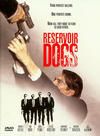



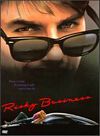
Risky Business is the film in which 19-year-old Tom Cruise dances around his living room in his underwear. He does this to celebrate the fact that his parents have left him alone while they go on vacation. Somewhere along the line, hooker Rebecca De Mornay, fleeing her vicious pimp, hides out in the Cruise manse. Things go from bad to worse to as Cruise inadvertently drives his father's Porsche into Lake Michigan and nearly scuttles his college recruitment interview. -- Hal Erickson
AMG REVIEW:
Most well known for turning a very young Tom Cruise into a major box-office sensation, Risky Business is much more than a star-making vehicle. Ingeniously crafted and perfectly acted, the film is a subtle coming-of-age tale that captures the experience of upper-class American teenagers more astutely than any other film to emerge from the 1980s. Playing the naive high school senior Joel, Cruise turns in one of the finest performances of his career. Alongside him, Rebecca De Mornay is equally stunning as the tempestuous and savvy call girl Lana, who convinces her young client to turn his parents' house into a brothel for the local high schoolers. Beyond the acting though, Risky Business paints a tender and sophisticated portrait of sexual awakening and the experience of growing up. Expertly directed by Paul Brickman with a lush score from Tangerine Dream, Risky Business is sleek, satisfying Hollywood entertainment at its best. -- Rachel Deahl



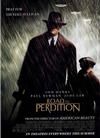
The acclaimed graphic novel from crime writer Max Allan Collins becomes this big budget Dreamworks drama from director Sam Mendes and screenwriter David Self. Tom Hanks stars as Michael Sullivan, a morally conflicted Depression-era hit man committing murder in the name of his employer, John Rooney (Paul Newman). A kindly, aging Irish crime boss who raised Sullivan as his surrogate son, Rooney is affiliated with Al Capone in Chicago and thus wields great power in the "Tri-Cities" of Moline, IL; Rock Island, IL; and Davenport, IO. Curious about his father's mysterious profession, Sullivan's son, Michael Jr. (Tyler Hoechlin), stows away in his father's automobile one night and witnesses the execution of a man at the hands of Sullivan and Rooney's biological son, Connor (Daniel Craig). Although Michael keeps his promise to remain silent about what he's seen, the paranoid and unstable Connor tries to wipe out the entire Sullivan clan anyway, succeeding only in killing Sullivan's wife, Annie (Jennifer Jason Leigh), and youngest son, Peter (Liam Aiken). Enraged at this and another surprise betrayal by the Rooneys, Sullivan embarks on a path of bloody retribution, Michael in tow. Although he intends to leave his boy with relatives in the rural town of Perdition once the coast is clear, he ends up exposing Michael to the goriest aspects of his talents, slaughtering former associates as he dodges contract assassin Maguire (Jude Law) and cripples the cash flow of the Rooney and Capone organizations through a series of bank robberies, attempting to force either mob family to offer up the sequestered Connor as a sacrifice. Inspired by the popular Japanese comic book series Lone Wolf and Cub and based loosely on an episode from the life and career of notorious real-life crime figures John and Connor Looney, Road to Perdition co-stars Stanley Tucci as legendary Chicago mobster Frank Nitti. -- Karl Williams
AMG REVIEW:
An elegant, mournful gangster picture that joins the ranks of Miller's Crossing (1990) and The Godfather (1972) as an example of the genre's best, this adaptation of a fact-based graphic novel is another showcase for the visual talents of director Sam Mendes, following up his Oscar-winning cinematic debut, American Beauty (1999). The film's power is due in no small part to a superb script from relatively new screenwriter David Self, who enlarges upon the source material's themes until they've reached Shakespearean proportions, while cleverly touching upon the tale's themes of fathers and sons, coming of age, violence, and damnation. Audiences may have a difficult time grappling with the emotional reserve, itchy trigger finger and ultimate fate of hit man Michael Sullivan, played by one of its favorite, most likable leading men, Tom Hanks, but the fact is that the character rings true to his circumstances and allows the star an opportunity to more freely employ the gruff, flinty toughness, the sharper edges of intelligence, and the irked, tired refusal to suffer fools gladly that are so often lurking just below the surface of his more popular roles (in many ways, Hanks' Sullivan seems to be the black sheep brother of Captain John Miller from 1998's Saving Private Ryan). Despite this, the film's one flaw is that it allows Sullivan so much screen time that not every viewer might realize that he's only a supporting player: the protagonist is not the father but the son, Michael Jr., well played by Tyler Hoechlin as a youth whose future prospects are cloudy at best but become more certain as events unfold. It's his point of view being shared, the ultimate fate of his soul that's at stake, and his character that's being emotionally tracked, but his denouement may feel anticlimactic compared to the father's spectacular, heart-breaking exit. It's a trifling flaw in an otherwise top-notch film that's certain to be reconsidered in later years as the century's first great gangster flick. The cast is terrific (Jude Law--in a role wholly invented for the film--and Paul Newman, in the underappreciated winter of his career, deliver awe-inspiring performances as well), but it's that corker of a script from Self, trenchant and devastating, breath-taking in its ability to ply the screen with elegant visuals followed up with sparkling dialogue and unexpected confrontations, that lights up the screen and the memory. -- Karl Williams
AWARDS:
Best Art Direction (nom) - 2002 Academy
Best Cinematography (nom) - 2002 Academy
Best Original Score (nom) - 2002 Academy
Best Sound (nom) - 2002 Academy
Best Sound Editing (nom) - 2002 Academy
Best Supporting Actor (nom) - Paul Newman - 2002 Academy
Best Picture (nom) - 2002 Broadcast Film Critics Association
Best Supporting Actor (nom) - Paul Newman - 2002 Broadcast Film Critics Association
Best Young Performer (nom) - Tyler Hoechlin - 2002 Broadcast Film Critics Association
Best Supporting Actor (nom) - Paul Newman - 2002 Golden Globe
Best Cinematography (Runner-up) (win) - Conrad L. Hall - 2002 L.A. FIlm Critics Association

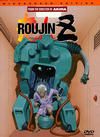

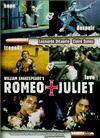

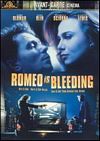
New York cop Jack Grimaldi (Gary Oldman) has a nice home, a stunning wife Natalie (Annabella Sciorra), and a sweet, if stupid mistress, Sheri (Juliette Lewis). Jack also earns extra money by betraying mob witnesses to Mafia-boss Don Falcone (Roy Scheider). Assigned to guard the viciously sexy Russian-born hit woman, Mona Demarkov (Lena Olin), Jack is almost instantly seduced and allows Mona to escape. Falcone orders Jack to find and kill Mona, and threatens to murder him if he fails. Mona offers to pay Jack to help her eliminate Falcone and fake her own death. Several plot twists and turns later, Jack is left with his life in shambles. -- Linda Rasmussen
AMG REVIEW:
Romeo is Bleeding is a perverse, vicious modern-day film noir, featuring one of the most unusual and brutally violent female characters in film. The film, an excessive tribute to the noir universe of tough women and weak men, sets out to push the conventions of noir further than they've ever been pushed. However, despite the all-out, memorable performance by Lena Olin and some other fine moments, Romeo is Bleeding fails because it is shallow and self-mocking, filled with self-conscious references to the overwrought world of pulp fiction -- substituting flash and violence for depth and character. -- Linda Rasmussen












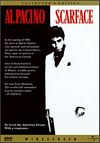
Howard Hawks' 1931 Scarface ran a tight 99 minutes, making its "crime does not pay" point with directness and efficiency. Brian DePalma's 1983 remake of Scarface ambles along at 170 minutes, making its "drugs are bad for you" point over...and over...and over....Al Pacino stars as Tony Montana, an exiled Cuban criminal who goes to work for Miami drug lord Robert Loggia. Montana rises to the top of Florida's crime chain, appropriating Loggia's coke-head mistress (Michelle Pfeiffer) in the process. Howard Hawks' "X Marks the Spot" motif in depicting the storyline's many murders is dispensed with in the 1983 Scarface; instead, we are inundated with blood by the bucketful, especially in the now-infamous buzz saw scene. One carry-over from the original Scarface is Tony Montana's incestuous yearnings for his sister Gina (Mary Elizabeth Mastrantonio). The screenplay for the 1983 Scarface was written by Oliver Stone. -- Hal Erickson
AMG REVIEW:
Infinitely quotable and more than a little cartoonish, Brian De Palma's update of Howard Hawks' seminal gangster film revels in its freedom to be larger than life. A work as akin to pop art as any other form, it reworks the crime melodrama in bold, primary colors, mostly blood red. Attracting a great deal of attention for its violence at the time of its release, the controversy overshadowed the fact that everything in the film ran to extremes, including Pacino's performance, the director's visual style (which found him almost reverting to The Fury mode, the dialogue (from a script co-written by Oliver Stone), and most importantly the themes. Scarface focuses on words like "crime" and "America," then lets itself run wild with the associations. That a classically American rise-and-fall story forms the heart of the film is its simplest and best irony. The experience will probably be thrilling to some, particularly those already enthusiastic about De Palma's work, and extremely off-putting to others. Tony Montana may not be an appealing character with which to spend nearly three hours, but there's little chance of forgetting the experience. -- Keith Phipps








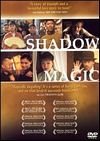
Chinese-born, American-based director Ann Hu debuts with this epic historical drama about the introduction of motion pictures to China during the beginning of the 20th century. The film is based on a true story of Liu Jung (Xia Yu), a Peking photographer who struggles to start a film industry in China in spite of the strong anti-Western sentiment of the time. At the film's outset, Liu Jung is scolded by his autocratic boss Master Ren (Liu Peiqi) for his obsession with Western gizmos after he brings home a junked Victrola. During a photo session with China's most famous opera star, Lord Tan (Li Yusheng), Liu Jung runs into Raymond Wallace (Jared Harris), a mysterious Brit who is hell-bent on introducing movies (called "shadow magic") to the Emperor. As soon as Liu Jung sees his first frame, he is hooked on the medium and committed to Wallace's scheme. This film was screened at the 2000 Sundance Film Festival. -- Jonathan Crow
AMG REVIEW:
A well-meaning rumination on the power of the moving image and the need for societal change, Ann Hu's naïve, cliched film nevertheless takes the road too often traveled in its unconvincing East versus West narrative. Engagingly acted but often embarrassingly cloying, Shadow Magic falls into the trap of turning its characters into ciphers and reactors instead of honest human beings. Its assertions on Chinese culture of the early 1900s seem forced and modernized to appeal to the desires of current audiences, which drains the movie of any emotional authenticity. Additionally, the film is all too happy to create its heroes and villains in broad strokes, when the central friendship and mystery of cinema themes are far more involving and interesting. The film has the longing to become an important epic about tolerance and clashing beliefs, but these ideas have been explored far more effectively in countless Chinese-language films of the previous few decades. -- Jason Clark

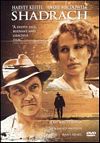
Susanna Styron made her feature directorial debut with this family drama, an adaptation of a 1978 short story by her father, novelist William Styron (Sophie's Choice). Paul Whitehurst (voice of Martin Sheen) recalls Depression-era events in Tidewater, Virginia, when he was ten years old. In the summer of 1935, lonely young Paul (Scott Terra), with his strict father (Darrell Larson) and fatally ill mother (Deborah Hedwall), is raised in a boring, middle-class way of life, so mundane it leads him into a friendship with the lower-class Dabneys, once aristocratic but now reduced to poverty on the former Dabney plantation. Bootlegger Vernon (Harvey Keitel) is married to earthy beer-drinking Trixie (Andie MacDowell), and Paul enjoys the fun-loving lifestyle of this couple and their seven children. Shadrach (John Franklin Sawyer), a 99-year-old former slave, turns up one day at the Dabney house after walking barefoot from Alabama to Virginia, where he was born into slavery. Since Shadrach's wish to be buried on the Dabney's land violates Virginia law, the request sets a variety of racist attitudes and conflicts into motion. Shown at the 1998 LA Independent Film Festival. -- Bhob Stewart







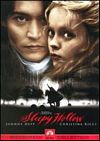
Washington Irving's tale of Ichabod Crane and the Headless Horseman gets a few new twists in a screen adaptation directed by Tim Burton. In this version, Ichabod (Johnny Depp) is a New York City detective whose unorthodox techniques and penchant for gadgets make him unpopular with is colleagues. He is sent to the remote town of Sleepy Hollow to investigate a series of bizarre murders, in which a number of people have been found dead in the woods, with their heads cut off. Local legend has it that a Hessian ghost rides through the woods on horseback, lopping off the heads of the unsuspecting and unbelieving. Ichabod refuses to believe in this legend, convinced that there must be a logical explanation for the murders. In time, Ichabod becomes smitten with a local lass, Katrina Van Tassel (Christina Ricci), who is the sweetheart of the burly Brom Bones (Casper Van Dien), and he becomes determined to capture the murderer to prove his bravery and win her heart. Christopher Walken, Jeffrey Jones, and Christopher Lee highlight the supporting cast; Lee's appearance is particularly apt, since Burton has cited the Hammer films of the 1960s as a major influence in making this film. Andrew Kevin Walker and Tom Stoppard contributed to the screenplay. -- Mark Deming
AMG REVIEW:
Employing the horror film atmosphere of the classic Hammer Films, Tim Burton updates the Washington Irving fable to surprisingly ineffectual results. Extravagantly designed and mounted, the film has a lack of ingenuity in its storytelling, unusual for a Burton film. The screenplay by Andrew Kevin Walker (with an uncredited assist by the much-lauded Tom Stoppard) is notably deficient in creating characters that seem multi-dimensional. Johnny Depp is wonderfully engaging as the resident hero, but others in the cast, especially love interest/damsel in distress Christina Ricci, seem too contemporary to pull off the period flavor that is so richly on display. Instead of Burton's typical embrace of the bizarre nature of his source material, the audience gets a fancily-disguised slasher movie which merely comes up with interestingly-depicted beheadings instead of honest, intriguing thrills. An Oscar winner for Best Art Direction, the film was a considerable box-office success, but this relatively low-risk, middlebrow entertainment is not in the same league with Burton's past efforts. -- Jason Clark
AWARDS:
Best Art Direction (win) - Rick Heinrichs - 1999 Academy
Best Art Direction (win) - Peter Young - 1999 Academy
Best Cinematography (nom) - Emmanuel Lubezki - 1999 Academy
Best Costume Design (nom) - Colleen Atwood - 1999 Academy
Best Costume Design (win) - Colleen Atwood - 1999 British Academy Awards
Best Production Design (win) - Rick Heinrichs - 1999 British Academy Awards
Best Special Visual Effects (nom) - 1999 British Academy Awards
Best Production Design (win) - Rick Heinrichs - 1999 L.A. Film Critics Association



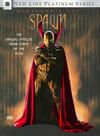

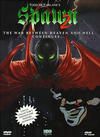











SpongeBob tries to impress Sandy at Mussel Beach, and accidentally rips his pants! He's embarrassed until he realizes the crowd through it was a joke he did on purpose! His ripped pants are a hit, but the joke gets old, fast.
SB-129
Squidward flees to the Krusty Krab in search of quiet and winds up frozen in the freezer. When he finally thaws, he finds himself far into the future and wondering how to go back!
Texas
Sandy's blue. Seems she's homesick for 'good ol' Texas' and plans to go back home. SpongeBob's determined to cheer her up by bringing a bit of Texas right to Bikini bottom.
The Graveyard Shift
The Krusty Krab is now open 24 hours a day. On their first all night shift, Squidward tries to scare Sponge Bob with tales of the "harsh-slinging slasher." And as things begin to go bump in the night, Squidward starts believing his own twisted tale!
Something Smells
SpongBob's got terrible sea onion ice cream breath, yet he can't understand why he's being avoided. Patrick says it's a beauty issue. So when Patrick eats sea onion bon bons and people avoid him, too, he's convinced he caught "the ugly" from SpongeBob.
Jellyfishing
When SpongeBob and Patrick find Squidward is recovering from a bicycling accident, they take him jellyfishing so he can have his "best day ever." Unfortunately, their good intentions wreak havoc on Squidward's recovery efforts.
Dying For Pie
Squidward accidentally lets SpongeBob eat an exploding pie. To alleviate his guilt, Squidward resolves to make SpongeBob's few remaining hours enjoyable. And that makes Squidward more miserable than ever!
Wormy
Sandy's taking a trip and puts SpongeBob and Patrick in charge of her pet caterpillar. When the caterpillar turns into a butterfly overnight, SpongeBob and Patrick are convinced this new creature ate "Wormy" and is now after them and the rest of Bikini Bottom!
F.U.N.
SpongeBob is convinced Plankton's so evil because he's lonely, so he befriends the little guy. Unfortunately, everyone sees that Plankton is using SpongeBob to get to the secret krabby patty recipe. It's up to Mr. Krabs to reveal Plankton's plot to SpongeBob.
Club SpongeBob
SpongeBob and Patrick's clubhouse has no room for Squidward. Literally. But Squidward forces his way in, "propelling" the clubhouse into the middle of nowhere. Hopelessly lost, Squidward begins to panic. But SpongeBob and Patrick truest in the "magic conch."

America's most famous sea sponge braces himself for the scary season in this collection of Halloween-themed episodes from the Nickelodeon cartoon series Spongebob Squarepants. Join Spongebob (voice of Tom Kenny), Patrick the Starfish (voice of Bill Fagerbakke), Squidward (voice of Rodger Bumpass), and Sandy the Squirrel (voice of Carolyn Lawrence) in the episodes "Imitation Krabs", "Frankendoodle", "Scaredy Pants", "Squidward, The Unfriendly Ghost", and "I Was A Teenage Gary". -- Mark Deming





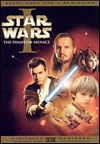
In 1977, George Lucas released Star Wars, the ultimate sci-fi popcorn flick turned pop-culture myth machine. It quickly became the biggest money-making film of all time and changed the shape of the film industry. After two successful sequels (1980's The Empire Strikes Back and 1983's Return Of The Jedi) that extended the story of the first film, Lucas took some time off to produce movies for others with mixed success. In 1999, Lucas returns to the Star Wars saga with a new approach -- instead of picking up where Return Of The Jedi left off, Star Wars: Episode I - The Phantom Menace is the first of a trilogy of stories that will trace what happened in the intergalactic saga before the first film began. Here, Obi-Wan Kenobi (Ewan McGregor) is a young apprentice Jedi knight under the tutelage of Qui-Gon Jinn (Liam Neeson); Anakin Skywalker (Jake Lloyd), who will later father Luke Skywalker and become known as Darth Vader, is just a nine-year-old boy. When the Trade Federation cuts off all routes to the planet Naboo, Qui-Gon and Obi-Wan are assigned to settle the matter, but when they arrive on Naboo they are brought to Amidala, the Naboo Queen (Natalie Portman), by a friendly but opportunistic Gungan named Jar Jar. Qui-Gon and Obi-Wan plan to escort Amidala to a meeting of Republic leaders in Coruscant, but trouble with their spacecraft strands them on the planet Tatoonie, where Qui-Gon meets Anakin, the slave of a scrap dealer. Qui-Gon is soon convinced that the boy could be the leader the Jedis have been searching for, and he begins bargaining for his freedom and teaching the boy the lessons of The Force. The supporting cast includes Pernilla August as Anakin's mother, Terence Stamp as Chancellor Valorum, and Samuel L. Jackson as Jedi master Mace Windu; Jackson told a reporter before The Phantom Menace's release that the best part about doing the film was that he got to say "May The Force Be With You" on screen. -- Mark Deming
AMG REVIEW:
To say that the first prequel to George Lucas' legendary Star Wars trilogy was "highly anticipated" would be an understatement. Twenty years after the original Star Wars hit the screen in 1977 and helped redefine the contemporary blockbuster, Lucas answered fan prayers by not only re-releasing the original trio, but also beginning production on the epic's first three episodes, depicting young Anakin Skywalker's rise to Jedi greatness and fabled descent to the Dark Side. Even the first trailer for the closely-guarded Star Wars: Episode 1-The Phantom Menace (1999) touched off a fan frenzy, as the faithful bought tickets to catch a glimpse of the impending Industrial Light and Magic spectacle, complete with signature gallery of oddball creatures, and then left the theaters. When The Phantom Menace opened in May 1999, however, response was mixed. While the computer-generated alternate universe was top-notch and Lucas' knack for whiz-bang special effects action reached an apex in the Ben-Hur-esque pod race, critics (professional and otherwise) objected to the wooden human characters, overly kiddie-friendly atmosphere, and goofy alien sidekick Jar Jar Binks. The fact that its impressive $61 million opening failed to break weekend records also caused some consternation. Still, by January 2000, The Phantom Menace had grossed over $400 million in the U.S., proving that the box office Force was still with Lucas (though The Matrix would sweep the special effects Oscars). -- Lucia Bozzola
AWARDS:
Best Sound (nom) - Gary Rydstrom - 1999 Academy
Best Sound (nom) - Tom Johnson - 1999 Academy
Best Sound (nom) - John Midgley - 1999 Academy
Best Sound (nom) - Shawn Murphy - 1999 Academy
Best Sound Effects Editing (nom) - Ben Burtt - 1999 Academy
Best Sound Effects Editing (nom) - Tom Bellfort - 1999 Academy
Best Visual Effects (nom) - Scott Squires - 1999 Academy
Best Visual Effects (nom) - Rob Coleman - 1999 Academy
Best Visual Effects (nom) - Dennis Muren - 1999 Academy
Best Visual Effects (nom) - John Knoll - 1999 Academy
Best Sound (nom) - 1999 British Academy Awards
Best Special Visual Effects (nom) - 1999 British Academy Awards







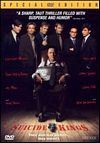
Television director Peter O'Fallon made his feature film debut with this independent film that pays obvious homage to the style of Quentin Tarantino, with plenty of violence and funny, talkative hit men. Suave gangster Charlie Barrett (Christopher Walken) meets four young men who have taken over his regular booth at a popular bistro. Charmed by the swaggering kids, he agrees to take a ride with them, but they give him a sedative and he awakens in a deserted mansion, taped to a chair with one of his fingers missing. One of his abductors, Avery (Henry Thomas) says that he has a sister who has been kidnapped and they need $2 million to get her back, as well as a finger to exchange for her severed digit. Charlie phones his lawyer Marty (Cliff De Young), who calls a henchman, Lono (Denis Leary), who investigates the kidnappings and gives Charlie enough information to start playing each of his inexperienced abductors against the others. -- Michael Betzold
AMG REVIEW:
Simultaneously funny, creepy, and violent, this story of wealthy youths who stage an ill-planned abduction of a homicidal mobster is a wickedly nasty treat for crime buffs. The young cast of kidnappers has great chemistry, and manages to be believable in some rather unlikely exchanges with each other and their ruthless, cunning captive Christopher Walken. Denis Leary steals the show as Walken's cynically profane goon, and there are some fine supporting turns by Henry Thomas (E.T.), Jay Mohr (Saturday Night Live), and Johnny Galecki (Roseanne). Gripping and riddled with dark humor, Suicide Kings is an entertaining poisoned confection. -- Robert Firsching






Between giving up his super powers, confronting criminals from outer space, and having problems with his girlfriend, it's a bad time to be the Man of Steel in this sequel to the 1978 blockbuster. When terrorists threaten to destroy Paris with a thermonuclear device as they hold reporter Lois Lane (Margot Kidder) hostage, Superman (Christopher Reeve) comes to the rescue and flings the weapon into space. However, its blast outside the earth's orbit awakens Zod (Terence Stamp), Ursa (Sarah Douglas), and Non (Jack O'Halloran), three villains from Superman's home planet of Krypton who were exiled to outer space for their crimes. Zod and his partners arrive on Earth and use their powers in a bid to take over the U.S., and then the world. However, when Lois realizes that mild mannered Clark Kent and Superman are actually the same person, he brings her to his Fortress of Solitude, where his decision to marry Lois costs him his remarkable strength. Without his super powers, how can Superman vanquish Zod and save the world? Gene Hackman, Ned Beatty, Susannah York, and Jackie Cooper return from the first film, parts of which were shot in tandem with the sequel. -- Mark Deming
AMG REVIEW:
Arguably the best of the Superman films, Superman II is darker than its counterparts, with a more foreboding, mythological atmosphere that's arguably closer in tone to the original comic book. High-energy director Richard Lester (A Hard Day's Night) lends the franchise a verve the first film, directed by Richard Donner, lacked. He retains the best aspects of that film -- the sharp performances and impressive visual effects -- and adds a snappier pace and a more sardonic wit. Christopher Reeve is even better than he was in the original, adding more complex shadings to the character's dilemma between his obligations as Superman and his life as Clark Kent. The supporting cast is particularly strong: Terence Stamp is humorously cocky performance as the diabolical Zod, and Gene Hackman is as sleazily entertaining as he was in the first film. Much of the sequel was shot at the same time as the first Superman, enhancing the feeling of continuity between the two. -- Brendon Hanley

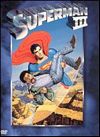
In a major departure from the tone of the preceding two Superman adventure films, this mix of vile deeds and fantasy heroics drops the "S" out of cosmic and goes for comic instead. Right at the starting gate, Gus Gorman (Richard Pryor) and a subsequent slapstick sequence upstage the caped crusader (Christopher Reeves again), who later develops an identity crisis. Gorman, newly trained as a computer whiz, starts working for a conglomerate run by the corporate nemesis Ross Webster (Robert Vaughn), intent on world domination. Gorman is sent to Superman's small town of Smallville to wipe out Columbia's coffee crop by fiddling with the computer side of a weather satellite. Clark Kent is in town for his class reunion, leading Superman to clash with Gorman, which in turn, leads Gorman to develop a hybrid Red Kryptonite. Unwittingly, since Gorman's wits are always in doubt, the Red Kryptonite causes Superman to split into a Dr. Jekyll and Mr. Hyde schizophrenia -- but in two separate bodies. As the evil Superman swaggers around town, megalomaniac Ross Webster has other tricks in mind -- and in one of the more memorable action scenes (interspersed with a video game sequence), Superman is chased through the Grand Canyon by a fast-flying, very determined missile. Lana Lang (Annette O'Toole) is on hand for romantic interest (Margot Kidder only appears briefly -- she was growing tired of Lois Lane). -- Eleanor Mannikka
AMG REVIEW:
Any series needs to grow and evolve, so it's probably best not to mourn the disappearance of bedrock characters Lois Lane (Margot Kidder) and Lex Luthor (Gene Hackman) too deeply. But when they're replaced by a wisecracking Richard Pryor and character actor villains with none of the gravitas mustered by their predecessors, it's hard not to long for the old days. After the first two thematically linked Superman films, the series becomes totally episodic in Superman III, including a new love interest (Annette O'Toole) for Clark Kent (Christopher Reeve), and a handful of bizarre scenarios that spring from a desperate grab bag of ideas. David and Leslie Newman's script takes Superman through some darker moments than bargained for during his kryptonite sickness, including his laying waste to a bar by flicking peanuts at the bottles at lightning speed. Does the audience really want to see Reeve's baby blues filled with menace for much of the movie? Finally winning back his identity after a brutal fight between Clark and Superman at a junkyard, which includes Clark getting repeatedly crushed in machinery that would turn a mortal into mincemeat, the movie gets somewhat back on track. But going for the comedic and demographic punch that Pryor could offer wasn't a good idea, as his jive-bumbling never meshes with the action-movie format. A series that always had a certain amount of melodramatic kitschy pride gets belittled in the process. -- Derek Armstrong



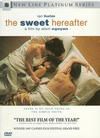

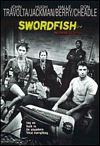
Director Dominic Sena follows up his stylish action film Gone in 60 Seconds (2000) with this high-tech thriller. John Travolta stars as Gabriel Shear, a charismatic spy who plots to steal a multi-billion-dollar fortune in illegal government funds. In order to make his scheme work, however, Gabriel needs some help from a computer hacker, which is where Stanley Jobson (Hugh Jackman) comes in. Stanley has been paroled from prison after serving a lengthy sentence for penetrating the FBI's cyber-surveillance operations. Issued a restraining order that keeps him away from computers and living penniless in a trailer park, Stanley wants only to be reunited with his daughter Holly, who's in the custody of his ex-wife, now remarried to a pornographer. Gabriel and his partner Ginger (Halle Berry) offer Stanley the chance to get his child back in exchange for his help, but the hacker soon realizes he's a pawn in a larger operation than the high-tech bank heist he thought he was perpetrating. In the meantime, a dedicated federal agent (Don Cheadle), the same man who once arrested Stanley, is trying to expose Gabriel's operation. Swordfish also stars Sam Shepard and Zach Grenier. -- Karl Williams
AMG REVIEW:
Dominic Sena's rigorously dumb techno-thriller is crafted with enough brevity and what-the-hell, B-movie attitude to almost make up for its deficit in the idea department -- almost. Not so much a director's picture or star vehicle as it is a super-deluxe producer's display case, Swordfish reeks of the influence of Matrix mogul Joel Silver: There's the beefy, virtuous, monosyllabic hacker-geek (here played by Hugh Jackman); the hilariously retrograde Madonna/whore female characters (as represented by Halle Berry, trying her hardest to be icy); and the freeze-framed, digitally trumped-up, 360-degree action sequences (done to comic excess here). John Travolta's mincing baddy routine is just passable enough to reverse the downward spiral he began in 2000: It's neither as terrible as his fey Psychlo patriarch in Battlefield Earth nor as good as his intentionally hammy Nicolas Cage impersonation in Face/Off. For their parts, Berry, Jackman, and the underused Don Cheadle and Vinnie Jones make the most of the scraps thrown them by screenwriter Skip Woods, who saves the bulk of his excruciatingly self-referential monologues for Travolta. Though Sena threatens to lapse into the arrhythmia that plagued his first two features (the tedious Kalifornia and Gone in 60 Seconds), he neatly sandwiches his action set pieces between snippets of virtual crotch-grabbing and simulated fellatio, and the whole ordeal is gone in under 100 minutes. Hypersexed 13-year-olds -- or hypersexed 13-year-olds at heart -- should have a ball. -- Michael Hastings

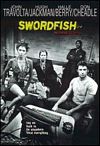
AMG REVIEW:
Dominic Sena's rigorously dumb techno-thriller is crafted with enough brevity and what-the-hell, B-movie attitude to almost make up for its deficit in the idea department -- almost. Not so much a director's picture or star vehicle as it is a super-deluxe producer's display case, Swordfish reeks of the influence of Matrix mogul Joel Silver: There's the beefy, virtuous, monosyllabic hacker-geek (here played by Hugh Jackman); the hilariously retrograde Madonna/whore female characters (as represented by Halle Berry, trying her hardest to be icy); and the freeze-framed, digitally trumped-up, 360-degree action sequences (done to comic excess here). John Travolta's mincing baddy routine is just passable enough to reverse the downward spiral he began in 2000: It's neither as terrible as his fey Psychlo patriarch in Battlefield Earth nor as good as his intentionally hammy Nicolas Cage impersonation in Face/Off. For their parts, Berry, Jackman, and the underused Don Cheadle and Vinnie Jones make the most of the scraps thrown them by screenwriter Skip Woods, who saves the bulk of his excruciatingly self-referential monologues for Travolta. Though Sena threatens to lapse into the arrhythmia that plagued his first two features (the tedious Kalifornia and Gone in 60 Seconds), he neatly sandwiches his action set pieces between snippets of virtual crotch-grabbing and simulated fellatio, and the whole ordeal is gone in under 100 minutes. Hypersexed 13-year-olds -- or hypersexed 13-year-olds at heart -- should have a ball. -- Michael Hastings






"All the animals come out at night" -- and one of them is a cabby about to snap. In Martin Scorsese's classic 1970s drama, insomniac ex-Marine Travis Bickle (Robert De Niro) works the nightshift, driving his cab throughout decaying mid-'70s New York City, wishing for a "real rain" to wash the "scum" off the neon-lit streets. Chronically alone, Travis cannot connect with anyone, not even with such other cabbies as blowhard Wizard (Peter Boyle). He becomes infatuated with vapid blonde presidential campaign worker Betsy (Cybill Shepherd), who agrees to a date and then spurns Travis when he cluelessly takes her to a porno movie. After an encounter with a malevolent fare (played by Scorsese), the increasingly paranoid Travis begins to condition (and arm) himself for his imagined destiny, a mission that mutates from assassinating Betsy's candidate Charles Palatine to violently "saving" teen hooker Iris (Jodie Foster) from her pimp Sport (Harvey Keitel). Travis's bloodbath turns him into a media hero; but has it truly calmed his mind? Written by Paul Schrader, Taxi Driver is an homage to and reworking of cinematic influences, a study of individual psychosis, and an acute diagnosis of the latently violent, media-fixated Vietnam era. Scorsese and Schrader structure Travis's mission to save Iris as a film noir version of John Ford's late Western The Searchers (1956), aligning Travis with a mythology of American heroism while exposing that myth's obsessively violent underpinnings. Yet Travis's military record and assassination attempt, as well as Palatine's political platitudes, also ground Taxi Driver in its historical moment of American in the 1970s. Employing such techniques as Godardian jump cuts and ellipses, expressive camera moves and angles, and garish colors, all punctuated by Bernard Herrmann's eerie final score (finished the day he died), Scorsese presents a Manhattan skewed through Travis's point-of-view, where De Niro's now-famous "You talkin' to me" improv becomes one more sign of Travis's madness. Shot during a New York summer heat wave and garbage strike, Taxi Driver got into trouble with the MPAA for its violence. Scorsese desaturated the color in the final shootout and got an R, and Taxi Driver surprised its unenthusiastic studio by becoming a box-office hit. Released in the Bicentennial year, after Vietnam, Watergate, and attention-getting attempts on President Ford's life, Taxi Driver's intense portrait of a man and a society unhinged spoke resonantly to the mid-'70s audience -- too resonantly in the case of attempted Reagan assassin and Foster fan John W. Hinckley. Taxi Driver went on to win the Palme d'Or at the Cannes Film Festival, but it lost the Best Picture Oscar to the more comforting Rocky. Anchored by De Niro's disturbing embodiment of "God's lonely man," Taxi Driver remains a striking milestone of both Scorsese's career and 1970s Hollywood. -- Lucia Bozzola
AMG REVIEW:
"I'm God's lonely man," says Travis Bickle, played by Robert De Niro in one of his finest and most memorable performances. Travis, the protagonist and focal point of Taxi Driver, is severely out of his element in New York City, though it's hard to imagine where else he would fit in; he goes through life as if the world speaks a dialect unknown to him. He seems incapable of relating to anyone beyond superficial pleasantries or casual violence, and when he does attempt to reach out to others -- to beautiful campaign manager Betsy (Cybil Shepherd), to philosophical cabbie Wizard (Peter Boyle), or to teenage runaway turned prostitute Iris (Jodie Foster) -- he runs into a brick wall despite his best intentions, as he can't fully comprehend others and they can't fathom him. Screenwriter Paul Schrader and director Martin Scorsese place this isolated, potentially volatile man in New York City, depicted as a grimly stylized hell on Earth, where noise, filth, directionless rage, and dirty sex (both morally and literally) surround him at all turns. When Travis attempts to transform himself into an Avenging Angel who will "wash some of the real scum off the street," his murder spree follows a terrible and inevitable logic: he is a bomb built to explode, like the proverbial gun which, when produced in the first act, must go off in the third. While De Niro's masterful performance brings Travis to vivid life, it's Scorsese's dynamic, idiosyncratic visual storytelling (given an invaluable assist by cinematographer Michael Chapman) that provides the perfect narrative context. Capturing New York's underbelly with a palate of reds and yellows that burn with an evil glow, Scorsese fills the story with tiny details and offhand moments that form the fully rounded reality of Travis' fallen world. If De Niro produced one of film's most troubling portraits of a lost soul, Scorsese created a painfully vivid purgatory for him to live in, and, alongside Raging Bull, Taxi Driver marks the finest work of this actor/director team. -- Mark Deming
AWARDS:
Best Actor (nom) - Robert De Niro - 1976 Academy
Best Picture (nom) - 1976 Academy
Best Score (nom) - Bernard Herrmann - 1976 Academy
Best Supporting Actress (nom) - Jodie Foster - 1976 Academy
Anthony Asquith Award for Original Film Music (win) - Bernard Herrmann - 1976 British Academy Awards
Best Film - Martin Scorsese - 1976 British Academy Awards
Best Supporting Actress (win) - Jodie Foster - 1976 British Academy Awards
Most Promising Newcomer (win) - Jodie Foster - 1976 British Academy Awards
Competing Film - Martin Scorsese - 1976 Cannes Film Festival
Golden Palm (win) - Martin Scorsese - 1976 Cannes Film Festival
Best Director (nom) - Martin Scorsese - 1976 Directors Guild of America
Best Actor (win) - Robert De Niro - 1976 L.A. Film Critics Association
Best Music Score (win) - Bernard Herrmann - 1976 L.A. Film Critics Association
New Generation Award (win) - Jodie Foster - 1976 L.A. Film Critics Association
New Generation Award (win) - Martin Scorsese - 1976 L.A. Film Critics Association
Best Actor (win) - 1976 LA Film Critics Association
Best Actor (win) - De Niro, Robert - 1976 New York Film Critics Circle
Best Direction - Martin Scorsese - 1976 New York Film Critics Circle
Best Film - Martin Scorsese - 1976 New York Film Critics Circle
Best Supporting Actor - Harvey Keitel - 1976 New York Film Critics Circle
Best Supporting Actress - Jodie Foster - 1976 New York Film Critics Circle
Best Actor - 1976 SOC
Best Director - 1976 SOC
Best Supporting Actress - 1976 SOC
U.S. National Film Registry (win) - 1994 Library of Congress
100 Greatest American Movies (win) - 1998 American Film Institute



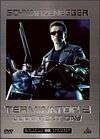
A sequel to the low-budget science fiction action thriller that made him and star Arnold Schwarzenegger A-list Hollywood names, writer-director James Cameron upped the ante with this follow-up by employing a more sweeping storyline and cutting-edge special effects. Linda Hamilton returns as Sarah Connor, now a single mother to rebellious teen John Connor (Edward Furlong). Having been informed by a time-traveling soldier in the first film that John will one day grow up to become humanity's savior from a computer-controlled Armageddon, Sarah has responded by becoming a muscle-bound she-warrior bent on educating John in survival tactics and battle strategies. Her ranting about mankind's future has landed Sarah in an insane asylum and John in the foster care system. The rebellious John has responded to his situation by getting into scrapes with the law. When a new and improved Terminator android called the T-1000 (Robert Patrick) arrives from the future to eliminate John, an older model T-800 (Schwarzenegger) is sent to protect the boy. The T-1000, however, has the ability to morph itself into any shape it desires, allowing it chameleon-like powers and near indestructibility. The T-800 saves John's life and helps breaks Sarah out of the institution. Staying only one step ahead of the dogged T-1000, Sarah leads her son and the T-800 to the headquarters of Cyberdyne Systems, the company that will invent a robotic intelligence that will eventually take over the world. There, they attempt to convince inventor Miles Dyson (Joe Morton) to help them stop the future from ever occurring by destroying his work. Dyson sacrifices himself in an explosion to save the world, leading to a final showdown between the two Terminators at a steel foundry. Terminator 2: Judgment Day (1991), which won four Oscars in technical categories for its groundbreaking effects, was followed by a short sequel filmed exclusively as an attraction for theme parks, Terminator 2: 3D Battle Across Time (1996). -- Karl Williams
AMG REVIEW:
Terminator 2: Judgement Day is most notable for being one of the first films to seamlessly combine a large amount of computer graphics -- in this case, the "morphing" technique -- with live action. Director James Cameron's big-budget sequel to his scruffy 1984 hit, Terminator, T2 capitalizes on Arnold Schwarzenegger's increased stardom by changing the persona of his indestructible-cyborg character from creature of destruction to lovable protector. After a number of TV parts and supporting film roles, Linda Hamilton comes into her own as a believable action hero, expertly balancing human drama with a rough, taut physicality. Newcomer Edward Furlong is also quite good as her rebellious son. As with many of Cameron's films, however, the visual effects are what make the movie really stand out. Integrated into several lengthy action sequences, the indestructible molten-metal villain (played in human form by Robert Patrick) is audacious and exciting, enough so to avoid becoming stale even on repeat viewings. -- Brendon Hanley
AWARDS:
Best Cinematography (nom) - Adam Greenberg - 1991 Academy
Best Editing (nom) - Mark Goldblatt - 1991 Academy
Best Editing (nom) - Conrad Buff - 1991 Academy
Best Makeup (win) - Dawn, Jeff - 1991 Academy
Best Makeup (win) - Stan Winston - 1991 Academy
Best Sound (win) - Gary Rydstrom - 1991 Academy
Best Sound (win) - Tom Johnson - 1991 Academy
Best Sound (win) - Lee Orloff - 1991 Academy
Best Sound (win) - Gary Summers - 1991 Academy
Best Sound Effects (win) - Gloria S. Borders - 1991 Academy
Best Sound Effects (win) - Gary Rydstrom - 1991 Academy
Best Visual Effects (win) - Bob Skotak - 1991 Academy
Best Visual Effects (win) - Dennis Muren - 1991 Academy
Best Visual Effects (win) - Gene Warren, Jr. - 1991 Academy
Best Visual Effects (win) - Stan Winston - 1991 Academy
Best Action Sequence (win) - 1992 MTV Movie Awards
Best Actor (win) - 1992 MTV Movie Awards
Best Actress (win) - 1992 MTV Movie Awards
Best Film (win) - 1992 MTV Movie Awards
Breakthrough Performance (win) - 1992 MTV Movie Awards
Most Desirable Female (win) - 1992 MTV Movie Awards
Best Film - 1992 PEO

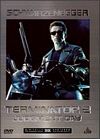
A sequel to the low-budget science fiction action thriller that made him and star Arnold Schwarzenegger A-list Hollywood names, writer-director James Cameron upped the ante with this follow-up by employing a more sweeping storyline and cutting-edge special effects. Linda Hamilton returns as Sarah Connor, now a single mother to rebellious teen John Connor (Edward Furlong). Having been informed by a time-traveling soldier in the first film that John will one day grow up to become humanity's savior from a computer-controlled Armageddon, Sarah has responded by becoming a muscle-bound she-warrior bent on educating John in survival tactics and battle strategies. Her ranting about mankind's future has landed Sarah in an insane asylum and John in the foster care system. The rebellious John has responded to his situation by getting into scrapes with the law. When a new and improved Terminator android called the T-1000 (Robert Patrick) arrives from the future to eliminate John, an older model T-800 (Schwarzenegger) is sent to protect the boy. The T-1000, however, has the ability to morph itself into any shape it desires, allowing it chameleon-like powers and near indestructibility. The T-800 saves John's life and helps breaks Sarah out of the institution. Staying only one step ahead of the dogged T-1000, Sarah leads her son and the T-800 to the headquarters of Cyberdyne Systems, the company that will invent a robotic intelligence that will eventually take over the world. There, they attempt to convince inventor Miles Dyson (Joe Morton) to help them stop the future from ever occurring by destroying his work. Dyson sacrifices himself in an explosion to save the world, leading to a final showdown between the two Terminators at a steel foundry. Terminator 2: Judgment Day (1991), which won four Oscars in technical categories for its groundbreaking effects, was followed by a short sequel filmed exclusively as an attraction for theme parks, Terminator 2: 3D Battle Across Time (1996). -- Karl Williams
AMG REVIEW:
Terminator 2: Judgement Day is most notable for being one of the first films to seamlessly combine a large amount of computer graphics -- in this case, the "morphing" technique -- with live action. Director James Cameron's big-budget sequel to his scruffy 1984 hit, Terminator, T2 capitalizes on Arnold Schwarzenegger's increased stardom by changing the persona of his indestructible-cyborg character from creature of destruction to lovable protector. After a number of TV parts and supporting film roles, Linda Hamilton comes into her own as a believable action hero, expertly balancing human drama with a rough, taut physicality. Newcomer Edward Furlong is also quite good as her rebellious son. As with many of Cameron's films, however, the visual effects are what make the movie really stand out. Integrated into several lengthy action sequences, the indestructible molten-metal villain (played in human form by Robert Patrick) is audacious and exciting, enough so to avoid becoming stale even on repeat viewings. -- Brendon Hanley
AWARDS:
Best Cinematography (nom) - Adam Greenberg - 1991 Academy
Best Editing (nom) - Mark Goldblatt - 1991 Academy
Best Editing (nom) - Conrad Buff - 1991 Academy
Best Makeup (win) - Dawn, Jeff - 1991 Academy
Best Makeup (win) - Stan Winston - 1991 Academy
Best Sound (win) - Gary Rydstrom - 1991 Academy
Best Sound (win) - Tom Johnson - 1991 Academy
Best Sound (win) - Lee Orloff - 1991 Academy
Best Sound (win) - Gary Summers - 1991 Academy
Best Sound Effects (win) - Gloria S. Borders - 1991 Academy
Best Sound Effects (win) - Gary Rydstrom - 1991 Academy
Best Visual Effects (win) - Bob Skotak - 1991 Academy
Best Visual Effects (win) - Dennis Muren - 1991 Academy
Best Visual Effects (win) - Gene Warren, Jr. - 1991 Academy
Best Visual Effects (win) - Stan Winston - 1991 Academy
Best Action Sequence (win) - 1992 MTV Movie Awards
Best Actor (win) - 1992 MTV Movie Awards
Best Actress (win) - 1992 MTV Movie Awards
Best Film (win) - 1992 MTV Movie Awards
Breakthrough Performance (win) - 1992 MTV Movie Awards
Most Desirable Female (win) - 1992 MTV Movie Awards
Best Film - 1992 PEO


AMG REVIEW:
On the heels of successfully stylish if little-seen films such as Screamers (1995) and The Assignment (1997), director Christian Duguay created this lackluster spy-genre film, one in a long line of marginal, B-pictures that attempted to make star Wesley Snipes an action hero. Besides a "secret" villainous conspiracy that attentive viewers can discern literally in the film's opening sequences, The Art of War (2000) features such narrative offenses as the absurd notion that the United Nations employs its own covert operations of lethal spies and an over-the-top scene in which a woman is repeatedly beaten, thrown into a mirror, and murdered. Snipes fails to whip up much enthusiasm for his undeveloped character, and his wooden performance contributes to the uninspired flatness of the proceedings, despite an effective opening sequence capped by a spectacular stunt fall from a skyscraper. The Art of War (2000) was the second collaboration between Snipes and screenwriter Wayne Beach, who also penned the marginally more interesting Murder at 1600 (1997). -- Karl Williams

Description
Commissioned by the military during World War II, this collection of propaganda cartoons has not been seen in over fifty years. Created by the famed animators at Warner Bros. from 1943-1946 and voiced by the legendary Mel Blanc, this DVD presents all twenty-eight Private Snafu cartoons ever released.

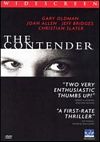
The hard-ball gamesmanship and casual character assassination of American politics sets the stage for this thriller from writer and director Rod Lurie. When the Vice President of the United States unexpectedly dies, all eyes in Washington D.C. are on President Jackson Evans (Jeff Bridges) as he chooses a new VP. Sen. Jack Hathaway (William Petersen), a respected career politician enjoying a new swell of popularity after a well-publicized attempt to save a drowning woman, is expected to be Evans' choice, but instead he picks Sen. Laine Hanson (Joan Allen), a decision that raises eyebrows on both sides of the political fence. Veteran power broker Shelly Runyon (Gary Oldman) is vehemently opposed to Hanson's appointment, in part because the Democratic senator was once a Republican, and vows to do everything in his power to prevent her from being confirmed. Runyon and his staff start digging for dirt on Hanson, and soon make a surprising discovery -- her personal morality is called into question when it's alleged that she took part in a group sexual liaison while she was a college student. The Contender also stars Mike Binder as one of Hanson's advisors, Mariel Hemingway as an old friend with a surprising secret, Christian Slater as an ambitious congressmen assisting Runyon, and Philip Baker Hall as Hanson's father; it was the second feature from former film critic Rod Lurie. -- Mark Deming
AMG REVIEW:
Film critic-turned-director Rod Lurie sets his sights on political controversy in this tawdry, often bravely smutty second effort (following his chamber drama Deterrence, which opened in early 2000). The Contender genuinely keeps viewers on their toes, if only because it's difficult to deduce whether the film's overheated melodramatic tone is intentional or accidental. If intentional, then Lurie has concocted a lurid satire that genuinely dissects the lunacy of the public versus private in American politics. If not, then the film is a certifiably ludicrous hoot, with an uncharacteristically broad (and hugely entertaining) performance by Jeff Bridges that depicts the President as a happy-go-lucky White House kitchen connoisseur. There are serious indications that the actors instinctively comprehend the sensational aspects of the story, but the movie's relentless sense of entitlement mars that point, most especially in the film's questionable closing epigraph reading "For Our Daughters" -- a curious choice for a film that introduces its main female character (played by Joan Allen) lying on her back in the midst of passionate intercourse. Nevertheless, this Dreamworks release (one of their first post-production acquisitions) was well-received at the 2000 Toronto International Film Festival. -- Jason Clark
AWARDS:
Best Actress (nom) - Joan Allen - 2000 Academy
Best Supporting Actor (nom) - Jeff Bridges - 2000 Academy
Best Actress - Drama (nom) - Joan Allen - 2000 Golden Globe
Best Supporting Actor (nom) - Jeff Bridges - 2000 Golden Globe
Best Actress (nom) - Joan Allen - 2000 Screen Actors Guild
Best Supporting Actor (nom) - Gary Oldman - 2000 Screen Actors Guild
Best Supporting Actor (nom) - Jeff Bridges - 2000 Screen Actors Guild
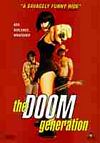
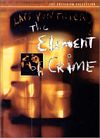
This framework is arguably beside the point; it's merely von Trier's way of entering a post-apocalyptic world of his own making, flooded and decaying, and filmed entirely in an amber-tinted tone punctuated only by blue police lights and sickly green fluorescents. By following principles of crime solving conceived by his mentor (played by British film veteran Esmond Knight), Fisher closes in on an awful revelation that spins The Element of Crime into another psychological dimension. Multilayered, deliberately paced, and atmospheric in the extreme (which less appreciative viewers may find intolerable), The Element of Crime elicits a dream state that is simultaneously oppressive and visually unforgettable, crammed with symbolic subtleties and cinematic references that can only be fully absorbed over multiple viewings. To say the least, this is a film that grows on you.


Good and evil battle for the future of 25th century Earth in this visually striking big-budget science fiction epic. In the year 1914, a group of scientists in Egypt are able to summon up a spaceship from another world through the power of four magical stones which represent the ancient elements: earth, wind, fire, and water. However, the alien visitors, before spiriting the scientist away, warn them that the stones are no longer safe on Earth. A few hundred years later, a huge ball of molten lava and flame is hurtling toward Earth, and scientist/holy man Victor Cornelius (Ian Holm) declares that in order to prevent it from destroying the Earth, the same four elemental stones must be combined with a fifth element, the positive force of life, as embodied by a visitor from another world named Leeloo (Milla Jovovich). However, if the force of evil presents itself to the stones instead, the Earth will be destroyed, and a sinister alien race called the Mangalores are intent upon using their representative, Zorg (Gary Oldman), to trigger the disaster. Despite her remarkable powers, Leeloo needs help with her mission, and she chooses her accomplice, military leader turned cab driver Korben Dallas (Bruce Willis), when she literally falls through the roof of his taxi. Writer and director Luc Besson wrote the original story for The Fifth Element when he was only 16 years old, though he was 38 before he was able to bring it to the screen. -- Mark Deming
AMG REVIEW:
The Fifth Element is a colorful riot of a story, not precisely long on sensible plotting but making up for its flaws with non-stop movement and humor, courtesy of director Luc Besson. It's a flat-out comedy with a handful of dramatic elements designed to appease those looking for an event movie, and Willis does a brilliant job of playing the tight-jawed, fast-shooting, hard-hitting hero. Gary Oldman's Zorg is a flare of color, tacky and dangerous, no physical antagonist for Dallas (Bruce Willis), but making up for it in intellect -- which tends to come a cropper, since none of his assistants has the brains to tie shoelaces without disaster. Ian Holm is in fine form too, turning in a lightly comic performance that's a delight to watch. The Fifth Element is really worth the candle when it comes to the design and visual effects. Sticking with the story will get viewers through all the eye candy in a speedy enough fashion, and even Chris Tucker's seriously over-the-top performance as Ruby Rhod is unlikely to cause a bump. New York in the 23rd century is crowded and overactive, buildings rising for miles and traffic running in multiple lanes between those buildings. While the makeup effects seem to be relatively ordinary, the visual effects -- computer-generated as well as model-based -- are eye-popping and brain-straining. The flying traffic alone is phenomenally detailed. Overall, the film is a joy to look at, though video viewers are recommended to find a letterboxed copy (such as that on the DVD and laserdisc releases). The Fifth Element suffers from a flawed script that's little more than a chase number, never pausing to explain itself, but this is countered by the visuals and the performances. Taken in the intended spirit -- as a comedy, rather than as a dramatic effort -- The Fifth Element is grand entertainment. -- Steven E. McDonald
AWARDS:
Best Sound Effects Editing (nom) - Mark Mangini - 1997 Academy
Technical Grand Prize (win) - Thierry Arbogast - 1997 Cannes Film Festival
Best Cinematography (win) - Thierry Arbogast - 1997 French Academy of Cinema
Best Director (win) - Luc Besson - 1997 French Academy of Cinema
Best Production Design (win) - Dan Weil - 1997 French Academy of Cinema
Best French Director (win) - Luc Besson - 1997 Lumière de Paris d'Unifrance

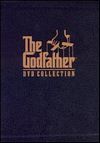
Popularly viewed as one of the best American films ever made, the multi-generational crime saga The Godfather (1972) is a touchstone of cinema: one of the most widely imitated, quoted and lampooned movies of all time. Marlon Brando and Al Pacino star as Vito Corleone and his youngest son Michael, respectively. It is the late 1940s in New York and Corleone is, in the parlance of organized crime, a "godfather" or "don," the head of a Mafia family. Michael, a free thinker who defied his father by enlisting in the Army to fight in World War II, has returned a war hero. Having long ago rejected the family business, Michael shows up at the wedding of his sister Connie (Talia Shire) with his non-Italian girlfriend, Kay (Diane Keaton), who learns for the first time about the family "business." A few months later at Christmas time, the don barely survives being shot by gunmen in the employ of a drug-trafficking rival whose request for aid from the Corleones' political connections was rejected. After saving his father from a second assassination attempt, Michael persuades his hotheaded eldest brother Sonny (James Caan) and family advisors Tom Hagen (Robert Duvall) and Sal Tessio (Abe Vigoda) that he should be the one to exact revenge on the men responsible. After murdering a corrupt police captain and the drug-trafficker, Michael hides out in Sicily while a gang war erupts at home. Falling in love with a local girl, Michael marries her, but she is later slain by Corleone enemies in an attempt on Michael's life. Sonny is also butchered, having been betrayed by Connie's husband. As Michael returns home and convinces Kay to marry him, his father recovers and makes peace with his rivals, realizing that another powerful don was pulling the strings behind the narcotics endeavor that began the gang warfare. Once Michael has been groomed as the new don, he leads the family to a new era of prosperity, then launches a campaign of murderous revenge against those who once tried to wipe out the Corleones, consolidating his family's power and completing his own moral downfall. Nominated for 11 Academy Awards and winning for Best Picture, Best Actor and Best Adapted Screenplay, The Godfather was followed by a pair of sequels. -- Karl Williams
AMG REVIEW:
"I believe in America" -- and America embraced The Godfather (1972), turning it into a landmark artistic triumph and blockbuster hit. The movie was initially planned as a low budget adaptation of Mario Puzo's Mafia family bestseller, and young director Francis Ford Coppola was hired because Paramount thought he would be easy to control. Instead, he fought the studio to cast little-known Al Pacino as Michael Corleone and foundering Marlon Brando as Don Vito, and he turned The Godfather into an operatic period epic about family, honor, and American economic success (the word "Mafia" is never used); in return, he was almost fired during production. The finished film's narrative drive and imagery were astonishing. Beginning with the opening sequence intercutting Vito's sepulchral study with the bright wedding outside, Coppola renders the Corleones threatening in their business and appealing in their closeness as they negotiate the legacy of Vito's prosperity. Gordon Willis's shadowy cinematography infused the film with shades of black, brown, and gold, contrasting bleak Family dealings with warm family loyalty. The famously extreme violence, particularly the horse head and Sonny's tollbooth demise (echoing 1967's Bonnie and Clyde), revealed the cost of protecting the family honor; the baptism montage elevated Michael's corruption to diabolical proportions as he consolidates his business power. Highly anticipated and critically revered, The Godfather became the biggest box office hit ever (at that point), adding several catchphrases to the cultural lexicon, revitalizing the gangster genre, turning Pacino into a star, and reviving Brando's career. Nominated for eleven Oscars, The Godfather won Best Picture, but Brando snubbed his Best Actor prize, Coppola lost Best Director to Cabaret's Bob Fosse, and Willis's cinematography and Nino Rota's memorable score weren't even nominated. In 1998, the American Film Institute named The Godfather one of the three greatest American films ever made, testifying to its enduring artistic legacy. -- Lucia Bozzola
AWARDS:
Best Actor (win) - Marlon Brando - 1972 Academy
Best Adapted Screenplay (nom) - Mario Puzo - 1972 Academy
Best Adapted Screenplay (win) - Francis Ford Coppola - 1972 Academy
Best Costume Design (nom) - Anna Hill Johnstone - 1972 Academy
Best Director (nom) - Francis Ford Coppola - 1972 Academy
Best Editing (nom) - Peter Zinner - 1972 Academy
Best Editing (nom) - William H. Reynolds - 1972 Academy
Best Picture (win) - 1972 Academy
Best Sound (nom) - Richard Portman - 1972 Academy
Best Sound (nom) - Grenzbach, Bud - 1972 Academy
Best Sound (nom) - Newman, Christopher - 1972 Academy
Best Supporting Actor (nom) - Al Pacino - 1972 Academy
Best Supporting Actor (nom) - James Caan - 1972 Academy
Best Supporting Actor (nom) - Robert Duvall - 1972 Academy
Anthony Asquith Award for Original Film Music (win) - Nino Rota - 1972 British Academy Awards
Best Director - Francis Ford Coppola - 1972 Directors Guild of America
10 Best Films - 1972 National Board of Review of Motion Pict
Best Supporting Actor - 1972 National Board of Review of Motion Pict
Best Actor (nom) - Marlon Brando - 1972 New York Film Critics Circle
Best Actor (nom) - Al Pacino - 1972 New York Film Critics Circle
Best Direction (nom) - Francis Ford Coppola - 1972 New York Film Critics Circle
Best Film (nom) - Francis Ford Coppola - 1972 New York Film Critics Circle
Best Screenwriting - Mario Puzo - 1972 New York Film Critics Circle
Best Screenwriting - Francis Ford Coppola - 1972 New York Film Critics Circle
Best Supporting Actor (win) - Robert Duvall - 1972 New York Film Critics Circle
Best Actor - 1972 SOC
Best Actor (in Drama) (win) - 1973 Golden Globe
Best Director (win) - 1973 Golden Globe
Best Film (in Drama) (win) - 1973 Golden Globe
U.S. National Film Registry (win) - 1990 Library of Congress
100 Greatest American Movies (win) - 1998 American Film Institute


AMG REVIEW:
In this unprecedented Sino-Western co-production, Bernardo Bertolucci turned the strange life of final Chinese crown ruler Pu Yi into a sumptuous epic. Shooting on location in China in the first Western production allowed to film in Beijing's Forbidden City, Bertolucci spent $25 million on lavish sets and costumes, as well as a cast of thousands, for a story spanning six decades, from Pu Yi's 1908 coronation to his 1960s life as a poor civilian. The story is structured through flashback memories as Pu Yi comes to grips with existence as a villain and commoner under Communism, and Vittorio Storaro's exquisite cinematography subtly underscores the emperor's rise and fall by shifting from a palette rich in reds, oranges, and yellows for Pu Yi's imperial years to somber blues and grays for his exile and imprisonment. Despite critical complaints that the story was lacking in emotional involvement, many viewers agreed that Bertolucci had created another visual marvel. Nominated for nine Oscars, The Last Emperor scored an unexpected sweep, winning all nine, including Best Picture and Best Director. An hour of footage cut from the release version was restored in the 1998 theatrical reissue reedited by Bertolucci. -- Lucia Bozzola
AWARDS:
Best Adapted Screenplay (win) - Bernardo Bertolucci - 1987 Academy
Best Adapted Screenplay (win) - Mark Peploe - 1987 Academy
Best Art Direction (nom) - Osvaldo Desideri - 1987 Academy
Best Art Direction (win) - Ferdinando Scarfiotti - 1987 Academy
Best Art Direction (win) - Bruno Cesari - 1987 Academy
Best Cinematography (win) - Vittorio Storaro - 1987 Academy
Best Costume Design (win) - James Acheson - 1987 Academy
Best Director (win) - Bernardo Bertolucci - 1987 Academy
Best Editing (win) - Gabriella Cristiani - 1987 Academy
Best Picture (win) - 1987 Academy
Best Score (win) - David Byrne - 1987 Academy
Best Score (win) - Ryuichi Sakamoto - 1987 Academy
Best Score (win) - Cong Su - 1987 Academy
Best Sound (win) - Ivan Sharrock - 1987 Academy
Best Sound (win) - Bill Rowe - 1987 Academy
Best Director - Bernardo Bertolucci - 1987 Directors Guild of America
Best Foreign Film (win) - Bernardo Bertolucci - 1987 French Academy of Cinema
Best Cinematography (win) - Vittorio Storaro - 1987 L.A. Film Critics Association
Best Music Score (win) - Ryuichi Sakamoto - 1987 L.A. Film Critics Association
Best Music Score (win) - Cong Su - 1987 L.A. Film Critics Association
Best Music Score (win) - David Byrne - 1987 L.A. Film Critics Association
10 Best Films - 1987 National Board of Review of Motion Pict
Best Cinematography (win) - Vittorio Storaro - 1987 New York Film Critics Circle
Best Cinematography (win) - Vittorio Storaro - 1987 New York Film Critics Circle
Best Director (nom) - Bernardo Bertolucci - 1988 British Academy Awards
Best Film (win) - Bernardo Bertolucci - 1988 British Academy Awards
Special Jury Award (win) - Bernardo Bertolucci - 1988 European Film Academy
Best Director (win) - Bernardo Bertolucci - 1988 Golden Globe
Best Director (win) - 1988 Golden Globe
Best Film (Drama) (win) - 1988 Golden Globe
Best Film (in Drama) (win) - 1988 Golden Globe
Best Original Score (win) - David Byrne - 1988 Golden Globe
Best Original Score (win) - Ryuichi Sakamoto - 1988 Golden Globe
Best Original Score (win) - Cong Su - 1988 Golden Globe
Best Screenplay (win) - Mark Peploe - 1988 Golden Globe
Best Screenplay (win) - Bernardo Bertolucci - 1988 Golden Globe

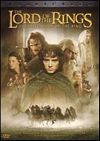
New Zealand filmmaker Peter Jackson fulfills his lifelong dream of transforming author J.R.R. Tolkien's best-selling fantasy-epic into a three-part motion picture that begins with this holiday 2001 release. Elijah Wood stars as Frodo Baggins, a Hobbit resident of the medieval "Middle-Earth" who discovers that a ring bequeathed to him by beloved relative and benefactor Bilbo (Ian Holm) is in fact the "one ring," a device that will allow its bearer to manipulate dark powers and enslave the world. Frodo is charged by the wizard Gandalf (Ian McKellen) to return the ring to Mount Doom, the evil site where it was forged millennia ago and the only place where it can be destroyed. Accompanying Frodo is a fellowship of eight others: his Hobbit friends Sam (Sean Astin), Merry (Dominic Monaghan), and Pippin (Billy Boyd); plus Gandalf; the human warriors Aragorn (Viggo Mortensen) and Boromir (Sean Bean); Elf archer Legolas (Orlando Bloom); and Dwarf soldier Gimli (John Rhys-Davies). The band's odyssey to the dreaded land of Mordor, where Mount Doom lies, takes them through the Elfish domain of Rivendell and the forest of Lothlorien, where they receive aid and comfort from the Elf princess Arwen (Liv Tyler), her father Elrond (Hugo Weaving), and Queen Galadriel (Cate Blanchett). In pursuit of the travelers and their ring are Saruman (Christopher Lee) -- a traitorous wizard and kin, of sorts, to Gandalf -- and the Dark Riders, under the control of the evil, mysterious Sauron (Sala Baker). The Fellowship must also do battle with a troll, flying spies, Orcs, and other deadly obstacles both natural and otherwise as they draw closer to Mordor. Lord of the Rings: Fellowship of the Ring (2001) was filmed in Jackson's native New Zealand, closely followed by its pair of sequels, The Two Towers (2002) and The Return of the King (2003). -- Karl Williams
AMG REVIEW:
Peter Jackson's The Lord of the Rings: The Fellowship of the Ring is certainly the grandest and most skillfully made cinematic spectacle in recent memory, surpassing even Star Wars -- perhaps the most venerated science fiction series in cinematic history -- in terms of creativity, adventure, and sheer enjoyment. Swift, economical -- in spite of a nearly three-hour running time -- and extremely engrossing, Jackson starts his tale with a brief and essential history of Middle Earth and its inhabitants to bring moviegoers unfamiliar with J.R.R. Tolkien's epic novel up to speed, while greatly impressing Tolkien's longtime fans with great flourish and a bit of inside humor. And so it goes from the lush and rolling meadows of the Shire to the bleak and infernal wasteland of Mordor, all vividly realized by Jackson's team of screenwriters and special effects technicians who are all well on their way to receiving a bevy of awards for their amazing work. As for the cast, one would be hard-pressed to assemble a more perfectly suited ensemble. The three main characters -- as portrayed by Elijah Wood, Ian McKellan, and Viggo Mortensen -- are the real life force of the film's narrative, each giving astonishing performances with characters that could have very easily been made into caricatures had they been essayed by lesser actors. The Lord of the Rings: The Fellowship of the Ring does have some very minor narrative problems, mostly involving some very brief explanations of certain plot elements, while a handful of the secondary characters -- particularly Gimli and Legolas -- are not quite fully characterized. These issues, however, have more to do with the audacity of attempting to cover the entirety of a 400-page novel in three hours than with some deficiency of the script. As it stands, Jackson's The Fellowship of the Ring is the ultimate fantasy film, thereby making the next chapter of the saga, The Lord of the Rings: The Two Towers, one of the most anticipated films of 2002. -- Ryan Shriver
AWARDS:
Best Adapted Screenplay (nom) - Peter Jackson - 2001 Academy
Best Adapted Screenplay (nom) - Philippa Boyens - 2001 Academy
Best Adapted Screenplay (nom) - Fran Walsh - 2001 Academy
Best Art Direction (nom) - Dan Hennah - 2001 Academy
Best Art Direction (nom) - Grant Major - 2001 Academy
Best Cinematography (win) - Andrew Lesnie - 2001 Academy
Best Costume Design (nom) - Richard Taylor - 2001 Academy
Best Costume Design (nom) - Ngila Dickson - 2001 Academy
Best Director (nom) - Peter Jackson - 2001 Academy
Best Film Editing (nom) - John Gilbert - 2001 Academy
Best Makeup (win) - Peter Owen - 2001 Academy
Best Makeup (win) - Richard Taylor - 2001 Academy
Best Original Score (win) - Howard Shore - 2001 Academy
Best Original Song (nom) - Enya - 2001 Academy
Best Original Song (nom) - Roma Ryan - 2001 Academy
Best Original Song (nom) - Nicky Ryan - 2001 Academy
Best Picture (nom) - Peter Jackson - 2001 Academy
Best Picture (nom) - Fran Walsh - 2001 Academy
Best Picture (nom) - Key: P214004 Not Found - 2001 Academy
Best Sound (nom) - Michael Semanick - 2001 Academy
Best Sound (nom) - Hammond Peek - 2001 Academy
Best Sound (nom) - Christopher Boyes - 2001 Academy
Best Sound (nom) - Gethin Creagh - 2001 Academy
Best Supporting Actor (nom) - Ian McKellen - 2001 Academy
Best Visual Effects (win) - Jim Rygiel - 2001 Academy
Best Visual Effects (win) - Mark Stetson - 2001 Academy
Best Visual Effects (win) - Randall William Cook - 2001 Academy
Best Visual Effects (win) - Richard Taylor - 2001 Academy
Best Composer (nom) - Howard Shore - 2001 American Film Institute
Best Digital Effects (win) - Jim Rygiel - 2001 American Film Institute
Best Picture (win) - Tim Sanders - 2001 American Film Institute
Best Picture (win) - Fran Walsh - 2001 American Film Institute
Best Picture (win) - Peter Jackson - 2001 American Film Institute
Best Picture (win) - Barrie M. Osborne - 2001 American Film Institute
Best Production Design (win) - Grant Major - 2001 American Film Institute
Best Actor (nom) - Ian McKellen - 2001 British Academy Awards
Best Adapted Screenplay (nom) - Peter Jackson - 2001 British Academy Awards
Best Adapted Screenplay (nom) - Fran Walsh - 2001 British Academy Awards
Best Adapted Screenplay (nom) - Philippa Boyens - 2001 British Academy Awards
Best Cinematography (nom) - Andrew Lesnie - 2001 British Academy Awards
Best Costume Design (nom) - Ngila Dickson - 2001 British Academy Awards
Best Director (win) - Peter Jackson - 2001 British Academy Awards
Best Editing (nom) - John Gilbert - 2001 British Academy Awards
Best Film Music (nom) - Howard Shore - 2001 British Academy Awards
Best Make Up/Hair (win) - 2001 British Academy Awards
Best Picture (win) - Tim Sanders - 2001 British Academy Awards
Best Picture (win) - Peter Jackson - 2001 British Academy Awards
Best Picture (win) - Barrie M. Osborne - 2001 British Academy Awards
Best Production Design (nom) - Grant Major - 2001 British Academy Awards
Best Sound (nom) - 2001 British Academy Awards
Best Special Visual Effects (win) - 2001 British Academy Awards
Orange Award (win) - 2001 British Academy Awards
Best Composer (win) - Howard Shore - 2001 Broadcast Film Critics Association
Best Composer (win) - Howard Shore - 2001 Broadcast Film Critics Association
Best Director (nom) - Peter Jackson - 2001 Broadcast Film Critics Association
Best Picture (nom) - 2001 Broadcast Film Critics Association
Best Song (win) - Enya - 2001 Broadcast Film Critics Association
Best Song (win) - Enya - 2001 Broadcast Film Critics Association
Best Director (nom) - Peter Jackson - 2001 Director's Guild of America
Best Director (nom) - Peter Jackson - 2001 Golden Globes
Best Original Score (nom) - Howard Shore - 2001 Golden Globes
Best Original Song (nom) - Enya - 2001 Golden Globes
Best Picture - Drama (nom) - 2001 Golden Globes
Best Music Score (win) - Howard Shore - 2001 L.A. Film Critics Association
Best Production Design (Runner-up) (win) - Grant Major - 2001 L.A. Film Critics Association
Best Production Design (win) - 2001 National Board of Review
Best Supporting Actress (win) - Cate Blanchett - 2001 National Board of Review
Special Achievement in Filmmaking (win) - Peter Jackson - 2001 National Board of Review
Best Cast in a Theatrical Motion Picture (nom) - 2001 Screen Actors Guild
Best Supporting Actor (win) - Ian McKellen - 2001 Screen Actors Guild
Best Adapted Screenplay (nom) - Fran Walsh - 2001 Writer's Guild of America
Best Adapted Screenplay (nom) - Peter Jackson - 2001 Writer's Guild of America
Best Adapted Screenplay (nom) - Philippa Boyens - 2001 Writer's Guild of America

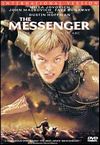
In the 15th century, France is mired in the 100 Years War when a humble voice appears, claiming to have been instructed by the Lord to lead the French army into battle and defend their land against the British. The voice belongs to Jeanne d'Aragon, a teenage girl from a tiny village, and, to the surprise of many, her story does not fall on deaf ears. Wearing the armor of a soldier, the girl known as Joan of Arc leads the French troops in what she believes is a holy battle. Joan would soon be tried for heresy for her actions, but history would vindicate her with sainthood. The Messenger: The Story of Joan of Arc stars Milla Jovovich as Joan of Arc, Faye Dunaway as Yolande d'Aragon, and Dustin Hoffman as The Grand Inquisitor. Directed by Luc Besson, The Messenger was originally titled Joan of Arc but added the prefix to avoid confusion with the 1999 TV movie of the same name, which starred Leelee Sobieski. -- Mark Deming
AMG REVIEW:
Marketed as a modern spin on the Joan of Arc saga, The Messenger is no special delivery. The rape and murder of young Joan's sister is the first of many hard-to-watch moments in this expensive flop of a historical drama. Milla Jovovich's manic performance as Joan lacks the essence of complexity that director Luc Besson asks the audience to consider: is Joan truly a messenger of God or just plain "nuts," as one soldier declares. Such laughable anachronistic dialogue, the overdone breathy pleading, hysterical screaming, and watery blue-eyed stare of Jovovich, and the miscasting of Dustin Hoffman as Joan's Conscience retracts any credibility the film might have gained from a famed cast. John Malkovich gives an entertaining performance as the neurotic and effeminate Charles VII, Dauphin of France, while Faye Dunaway, as his mother-in-law, is interesting to watch -- mostly because of her costumes. The strongest minute of the movie is its final one, as Joan is burned alive while the holy men watch, raising their own symbols of (what they think is) God's will, suggesting a bold statement of hypocrisy by the director. -- Lisa Kropiewnicki
AWARDS:
Best Cinematography (nom) - Thierry Arbogast - 1999 French Academy of Cinema
Best Costumes (win) - Catherine Leterrier - 1999 French Academy of Cinema
Best Director (nom) - Luc Besson - 1999 French Academy of Cinema
Best Editing (nom) - Sylvie Landra - 1999 French Academy of Cinema
Best French Film (nom) - 1999 French Academy of Cinema
Best Music (nom) - Eric Serra - 1999 French Academy of Cinema
Best Production Design (nom) - Hugues Tissandier - 1999 French Academy of Cinema
Best Sound (win) - Vincent Tulli - 1999 French Academy of Cinema
Best Sound (win) - Bruno Tarriere - 1999 French Academy of Cinema
Best Sound (win) - Francois Groult - 1999 French Academy of Cinema

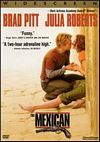
A clumsy criminal is put in a position where he not only has to save his own skin, but that of his girlfriend in this comedy with strong undercurrents of romance. Jerry Welbach (Brad Pitt) is a low-level Mafia "mechanic" whose ineptitude is countered by frequent (but unpredictable) bursts of dumb luck. Jerry's girlfriend Samantha (Julia Roberts) wants him to get out of the business, and after his latest blunder lands capo Arnold Margolese (Gene Hackman) in jail, so does mid-level crime kingpin Bernie Nayman (Bob Balaban). But Bernie insists that Jerry do one last errand for the mob before they let him find employment elsewhere -- he has to go to Mexico and recover a rare and very valuable pistol, which is said to be cursed. While Samantha objects to Jerry taking the assignment, he isn't in much of a position to argue; Jerry heads south of the border, while Samantha, in a huff, sets out for Las Vegas. Once in Mexico, Jerry finds the pistol easily enough, but making his way back to the States proves to be an unexpected challenge. Meanwhile, Jerry's superiors want insurance that he'll return with the goods, so they hire Leroy (James Gandolfini), a hitman, to kidnap Samantha and hold her hostage until Jerry comes back. However, Samantha and Leroy quickly strike up a friendship, and she soon learns the gunman has a sensitive side he doesn't show to the world -- along with a few other secrets. The Mexican marked the first screen pairing for mega-stars Julia Roberts and Brad Pitt -- though, given the film's narrative arc, they play only a handful of scenes together. The film was directed by Gore Verbinski, who won awards for his work in commercials before breaking through with the quirky family comedy Mouse Hunt. -- Mark Deming
AMG REVIEW:
Hyped extensively for its supposedly dreamy big-screen pairing of Julia Roberts and Brad Pitt, The Mexican sailed into US theaters on a wave of anticipation and, as it turned out, largely false advertising. While they do indeed play lovers -- albeit perpetually sparring ones -- Pitt and Roberts appear onscreen together for all of about ten minutes, and what an awful ten minutes they are. Cast respectively as Jerry and Samantha, a con artist and his long-suffering girlfriend, the two actors play one of those couples whose endless arguments are supposed to be the stuff of ironic, quirky entertainment. Unfortunately, thanks to a flat, clichéd script and misguided direction, the scenes between Roberts and Pitt -- who look like they've wandered off the set of a Gap commercial -- have all the fizz and buoyancy of a warm can of Coke. Much better are Roberts' scenes with The Sopranos' James Gandolfini, cast here as Leroy, the gay hit man who kidnaps Samantha. Their scenes have what those between Roberts and Pitt lack, namely chemistry. Roberts, for her part, gamely flashes her legs and smile, while Pitt wanders around looking really cute and clueless in an orange t-shirt. Director Gore Verbinski, known largely for making the Budweiser talking-frog commercials, proves that while he may have had a knack for directing animatronic amphibians, live human beings remain beyond his general comprehension. -- Rebecca Flint

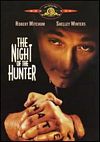
Adapted by James Agee from a novel by Davis Grubb, The Night of the Hunter represented legendary actor Charles Laughton's only film directing effort. Combining stark realism with Germanic expressionism, the movie is a brilliant good-and-evil parable, with "good" represented by a couple of farm kids and a pious old lady, and "evil" literally in the hands of a posturing psychopath. Imprisoned with thief Ben Harper (Peter Graves), phony preacher Harry Powell (Robert Mitchum) learns that Ben has hidden a huge sum of money somewhere near his home. Upon his release, the murderously misogynistic Powell insinuates himself into Ben's home, eventually marrying his widow Willa (Shelley Winters). Eventually all that stands between Powell and the money are Ben's son (Billy Chapin) and daughter (Sally Jane Bruce), who take refuge in a home for abandoned children presided over by the indomitable, scripture-quoting Rachel Cooper (Lillian Gish). The war of wills between Mitchum and Gish is the heart of the film's final third, a masterful blend of horror and lyricism. Laughton's tight, disciplined direction is superb -- and all the more impressive when one realizes that he intensely disliked all child actors. The music by Walter Schumann and the cinematography of Stanley Cortez are every bit as brilliant as the contributions by Laughton and Agee. Overlooked on its first release, The Night of the Hunter is now regarded as a classic. -- Hal Erickson
AMG REVIEW:
Actor Charles Laughton directed only one movie during his 36 years in show business, and he certainly made his lone effort memorable; The Night of the Hunter is a strange, chilling, and uniquely compelling work that resembles no other American film of its era. Superbly shot by ace cinematographer Stanley Cortez, the film was obviously influenced by the look of German expressionist cinema, but Cortez and Laughton took the style's visual devices and reshaped them for their own purposes. The result is a film that resembles a reflected dream of childhood, foreign and troubling yet also very beautiful. Laughton drew a stunning performance from Robert Mitchum, who drops his usual veneer of casual cool and becomes disquietingly psychotic man of the cloth Harry Powell; his rapt sermon about the battle between love and hatred, and his wedding night rejection and murder of his new bride (Shelley Winters), rank with the most powerful and deeply etched moments of Mitchum's career. Legend has it that Laughton, who didn't care for children, instructed Mitchum to direct Billy Chapin and Sally Jane Bruce as the luckless Harper siblings, and, if it's true, Mitchum coaxed a pair of unusually naturalistic and affecting performances from his youthful co-stars, who never play "cute." Lillian Gish is a tower of both strength and compassion as Rachel Cooper, the saintly flip side to Mitchum's dark perversity; in a world where even the most loving and honorable adults have gone astray, Rachel alone offers love and protection without judgment to young people who need it, and Powell's venal, misogynist brutality are no match for her spiritual courage. It's a pity that Laughton never followed up on this remarkable debut; many long and successful careers have been launched by movies not half as impressive as The Night of the Hunter. -- Mark Deming
AWARDS:
U.S. National Film Registry (win) - 1992 Library of Congress


In this spiritual thriller, an ancient prophecy is about to be fulfilled as a secret code brings the world to the edge of Apocalypse. Gillen Lane (Casper Van Dien) is a expert on theology and mythology who has gained international fame as a motivational speaker. Lane is approached by Stone Alexander (Michael York), the owner and founder of a major media empire, who has been made chairman of the European Union and needs someone to help spread the word about his goal of a world united behind a single vision of peace. Lane begins to realize that there's something sinister behind Alexander's veneer of charity and benevolence: a secret code was embedded in the original texts of the Torah that will allow the person who cracks it to unlock the secret powers of the Christian scriptures; if it falls into the wrong hands, it could mean the end of Man's Reign on Earth. After the death of his mother, Lane lost his faith in God and embraced a New Age philosophy, but now he must confront his lost faith as he tries to discover both the all-powerful secret of the Omega Code and his own true identity. The Omega Code also stars Van Dien's wife Catherine Oxenberg as Cassandra Barris, a reporter working for Alexander's network, and Michael Ironside as Dominic, Alexander's thuggish underling. The Omega Code was produced in association with the Trinity Broadcasting Network, America's largest Christian broadcasting outlet. -- Mark Deming
AMG REVIEW:
This supernatural thriller produced by the religious media outlet TBN is a work of sheer cinematic dreck that's disturbing on more than one level. On the surface, it's simply a lackluster affair with poor special effects and amateurish acting from Z-list leads Casper Van Dien, Catherine Oxenberg, and Michael York, built upon the wobbly foundation of a mind-numbingly stupid script. On another and rather deeper level, the film displays an offensive wrong-headedness about the religion at its core, positing that a secret Torah code will unlock secret powers of Christianity -- powers that sinister forces are in a rush to obtain. Just what would these hidden powers be exactly? Love? Tolerance? Of course, that would be a really interesting film, but this is just another rehash of a plot line that's always been done badly, be the offender thoughtless sequel garbage such as Omen III: The Final Conflict (1981), or a noble misfire such as The Body (2001). Despite its questionable pedigree and egregious final product, The Omega Code (1999) was a surprise box-office success due to relentless hyping on TBN, resulting in a sequel, Megiddo: The Omega Code 2 (2001). Viewers looking for a film with a strong moral message would do better to stick with Raiders of the Lost Ark (1981), a far superior film that makes sense and is, if one thinks about it deeply enough, a much more virtuous example of faith's transformational power. -- Karl Williams

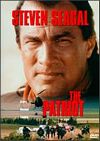
A deadly virus threatens to wipe out an entire Rocky Mountain town, leaving the town doctor (Steven Seagal) to find some way to escape the soldiers who enforce the town's quarantine and devise an antidote. Matters take a more deadly turn after the physician is captured by a dangerously unstable band of militia extremists. -- Sandra Brennan

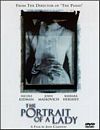
Jane Campion directed this expressive adaptation of the classic novel by Henry James. Isabel Archer (Nicole Kidman) is a young American woman who, after the death of her parents, has been sent to England to visit relatives. While her family's tragedy has left her penniless, Isabel's beauty has earned her the attentions of a number of eligible men. When Isabel turns down a proposal of marriage from the wealthy Lord Warburton (Richard E. Grant) because she does not love him, her cousin Ralph (Martin Donovan), who is also smitten with her, arranges for his father to leave her a fortune before succumbing to tuberculosis so that she may live as an independent woman. Isabel takes a tour of Europe, where she meets Madame Merle (Barbara Hershey), a jaded sophisticate and matchmaker who introduces her to Gilbert Osmond (John Malkovich), a widowed American artist living abroad. Isabel falls in love with Gilbert and they marry, but his sloth and opportunism soon begin to wear on her, and three years later she is desperate to get out of their relationship. The Portrait of a Lady also stars John Gielgud, Mary-Louise Parker, Christian Bale, and Shelley Winters. -- Mark Deming
AMG REVIEW:
Given The Piano's singular period story about an independent-minded woman, it is not surprising that Jane Campion's stylized version of Henry James' The Portrait of a Lady (1996) is more of an interpretation rather than an adaptation. With an opening montage of modern women, Campion and screenwriter Laura Jones stake a claim to the contemporary resonance in the story of naïve American heiress Isabel Archer. Injecting moments of surreal fantasy into the beautifully expressive, blue-tinged period surroundings, Campion alludes to the cravings that provoke Isabel to reject a safe marriage in favor of freedom. Why Isabel is easily seduced by the scheming Mme. Merle and the reptilian fortune hunter Osmond, however, remains elusive; John Malkovich's transparently malevolent Osmond makes Nicole Kidman's Isabel an inexplicable fool for love. Still, Barbara Hershey's complex Mme. Merle speaks to the damage inflicted on women by an oppressive social order, while Martin Donovan's eloquently restrained cousin Ralph powerfully attests to what might have been for Isabel. Provoking a deeply mixed response, The Portrait of a Lady failed to repeat The Piano's success, though the costumes and Hershey's performance earned Oscar nominations. -- Lucia Bozzola
AWARDS:
Best Costume Design - Janet Patterson - 1996 Academy
Best Supporting Actress - Barbara Hershey - 1996 Academy
Best Supporting Actress (win) - Barbara Hershey - 1996 L.A. Film Critics Association

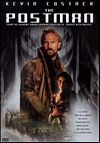
AMG REVIEW:
One of the most notorious flops of the late '90s, this science fiction adventure from director and actor Kevin Costner suffers from an inflated sense of self-importance, mawkish jingoism, and its star's limited range. However, it is also certainly not the train wreck that was Costner's earlier cinematic sci-fi misfire Waterworld (1995). Like that film, this one starts off okay with some nicely mounted if overlong scenes and then gradually becomes increasingly absurd. Although there is no instance of Dennis Hopper appearing in an eye patch aboard the Exxon Valdez here, there is an effort to mythologize the U.S. mail that seems rather goofy without a bit of further delineation. Ringing equally hollow are some convoluted, silly detours involving procreation, a demented military leader (why is everyone not just shooting this guy again?), and even a bizarre cameo by Tom Petty playing himself. It's too bad that these poorly thought-out elements ruin what is at times an interesting film with dandy ideas about what reluctant sacrifice, true patriotism, reality's sadly humorous march into mythology, and humanity's thirst for heroes. Unfortunately, its strong points are overwhelmed by the hagiographic treatment that the star affords himself and some guffaw-inducing dialogue. The Postman (1997), like so many science fiction failures, is a really fascinating idea executed poorly by people who don't seem all that familiar with what works and what doesn't in this difficult genre. -- Karl Williams


AMG REVIEW:
At once a send-up and an update of fairy tales, The Princess Bride combines comic one-liners to entertain adults with mythic battles and story lines to capture the hearts of children. Director Rob Reiner took a chance on William Goldman's cult novel and assembled a wide-ranging cast of comic character actors, including Billy Crystal, Mandy Patinkin, Peter Falk, and Wallace Shawn, to enliven a series of scenes that are the stuff of legends, bringing fresh life to old fables and spinning yarns heavy with the humor of old-school Catskills comedians. Robin Wright plays the title role, with Cary Elwes as the stable boy who fights off many sorts of dragons to win her. It's an enchanting film but not likely to spawn many imitators; satirizing fairy tales is tricky work. -- Michael Betzold
AWARDS:
Best Song (nom) - Willy Deville - 1987 Academy

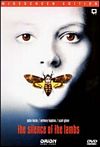
AMG REVIEW:
The only horror film to win a Best Picture Oscar, The Silence of the Lambs was released early in the year by a company (Orion) that went bankrupt and could not afford a significant award campaign for the film. For these reasons, it is among the least typical of Oscar-winning Best Pictures, a distinctive incidence of good filmmaking winning out over movies with more studio promotion behind them. It succeeds almost entirely due to the performance of Anthony Hopkins as cannibal serial killer Hannibal Lecter. Indeed, both co-star Jodie Foster and director Jonathan Demme took home Oscars largely for having had the good sense to allow Hopkins to dominate the film. Hopkins' Best Actor award notwithstanding, Lecter is only a supporting character, onscreen for less than a third of the film. The central story, about the search by a young FBI agent (Foster) for a different serial killer, Buffalo Bill (Ted Levine), is considerably less interesting, though Foster does an admirable job of bringing credibility to a convincing showdown sequence. -- Richard Gilliam
AWARDS:
Best Actor (win) - Anthony Hopkins - 1991 Academy
Best Actress (win) - Jodie Foster - 1991 Academy
Best Adapted Screenplay (win) - Ted Tally - 1991 Academy
Best Director (win) - Jonathan Demme - 1991 Academy
Best Editing (nom) - Craig McKay - 1991 Academy
Best Picture (win) - 1991 Academy
Best Sound (nom) - Newman, Christopher - 1991 Academy
Best Sound (nom) - Fleishman, Tom - 1991 Academy
Silver Bear (Best Director) (win) - Jonathan Demme - 1991 Berlin International Film Festival
Best Actor (win) - Anthony Hopkins - 1991 British Academy Awards
Best Actress (win) - Jodie Foster - 1991 British Academy Awards
Best Adapted Screenplay (nom) - Ted Tally - 1991 British Academy Awards
Best Director (David Lean Award) (nom) - Jonathan Demme - 1991 British Academy Awards
Best Film (nom) - 1991 British Academy Awards
Best Actor (win) - 1991 CHI
Best Actress (win) - 1991 CHI
Best Director (win) - 1991 CHI
Best Picture (win) - 1991 CHI
Best Director - Jonathan Demme - 1991 Directors Guild of America
10 Best Films - 1991 National Board of Review of Motion Pict
10 Best Films - 1991 National Board of Review of Motion Pict
Best Director - 1991 National Board of Review of Motion Pict
Best Actor (win) - Anthony Hopkins - 1991 New York Film Critics Circle
Best Actress (win) - Jodie Foster - 1991 New York Film Critics Circle
Best Director (win) - Jonathan Demme - 1991 New York Film Critics Circle
Best Film (win) - 1991 New York Film Critics Circle
Best Actor (Drama) (nom) - Anthony Hopkins - 1992 Golden Globe
Best Actress (Drama) (win) - Jodie Foster - 1992 Golden Globe
Best Actress (in Drama) (win) - 1992 Golden Globe
Best Director (nom) - Jonathan Demme - 1992 Golden Globe
Best Film (Drama) (nom) - 1992 Golden Globe
Best Film (in Drama) - 1992 PEO
100 Greatest American Movies (win) - 1998 American Film Institute

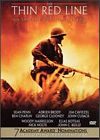
The return of director Terrence Malick to feature filmmaking after a twenty year sabbatical, this World War II drama is an elegiac rumination on man's destruction of nature and himself, based on James Jones' semi-autobiographical novel, his follow-up to From Here to Eternity. James Caviezel stars as Private Witt, a deserter living in peace and harmony with the natives of a Pacific island paradise. Captured by the Navy, Witt is debriefed by a senior officer (Sean Penn) and returned to an active duty unit preparing for what will be the Battle of Guadalcanal. As Witt goes ashore in the company of his fellow soldiers, they meet diverse fates. Sergeant Keck (Woody Harrelson) is killed by an exploding grenade. Captain John Gaff (John Cusack) is an intelligent, sober leader facing the destruction of his command because his commanding officer Colonel Tall (Nick Nolte) is bucking for a general's star. Sergeant McCron (John Savage) loses his mind. Private Bell (Ben Chaplin) gets a "Dear John" letter from his beloved wife. However, as the U.S. troops advance up grassy slopes toward entrenched Japanese positions, it is Witt's voiced-over ruminations on life, death, and nature that are the real heart and soul of The Thin Red Line (1998). Adrien Brody appears as Private Fife, the major character of Jones' novel and the author's alter-ego, although Fife has been relegated to a minor supporting role by Malick's filmed adaptation. -- Karl Williams
AMG REVIEW:
Reclusive director Terrence Malick's long-awaited return to filmmaking, The Thin Red Line is a beautifully rendered treatise on man and nature, revisiting World War II as few films have. Malick isn't interested in the traditional, linear rhythms of the James Jones novel on which the film is based; instead, he fashions an atypically unfocussed and philosophical war story, using the material as a blueprint. In the process, the director reveals the complex hopes and fears of men who are often portrayed as mere patriots in a fight they understand and accept. Some of the star cameos -- from John Travolta and George Clooney, among others -- may feel like just that: characters are intended to make transient but memorable appearances. Also uncharacteristic of war pictures is John Toll's lush cinematography, which offers the limitless beauty of the South Pacific as a startling backdrop to the folly of humanity. With The Thin Red Line, Malick creates a anti-war movie that is as intelligent and visually beautiful as it is unique. -- Matthew Doberman
AWARDS:
Best Adapted Screenplay (nom) - Terrence Malick - 1998 Academy
Best Cinematography (nom) - John Toll - 1998 Academy
Best Director (nom) - Terrence Malick - 1998 Academy
Best Editing (nom) - Billy Weber - 1998 Academy
Best Editing (nom) - Leslie Jones - 1998 Academy
Best Editing (nom) - Saar Klein - 1998 Academy
Best Original Dramatic Score (nom) - Hans Zimmer - 1998 Academy
Best Picture (nom) - 1998 Academy
Best Sound (nom) - Andy Nelson - 1998 Academy
Best Sound (nom) - Anna Behlmer - 1998 Academy
Best Sound (nom) - Paul "Salty" Brincat - 1998 Academy
Best Director (nom) - Terrence Malick - 1998 Directors Guild of America
Best Film (Golden Bear) (win) - 1999 Berlin Film Festival
Jury Special Mention (photography) (win) - John Toll - 1999 Berlin Film Festival
Best Foreign Language Film (nom) - 1999 French Academy of Cinema


In this animated story for the whole family, Disney brings A.A. Milne's classic characters from the Winnie the Pooh stories back to the big screen. Tigger is having a hard time finding anyone to play with him, so he decides to track down his family tree and find other Tiggers. Concerned that their friend feels sad, Winnie and his friends dress up like Tiggers so he won't feel so alone. But once Tigger finds out who they really are, it makes him even more determined to find his real family. As Tigger heads out in search of others like himself, he accidentally makes his way into a snowstorm, and Winnie and friends must find him before he gets lost in the cold. The Tigger Movie was originally produced for home video and then upgraded to a theatrical release. -- Mark Deming

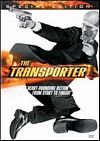
An outlaw finds his life becoming all the more dangerous when he turns against a gang of criminals in this action drama. Frank Martin (Jason Statham) is a former Special Forces officer who lives on the French Mediterranean and has a lucrative second career as a underworld courier for hire. Martin will deliver anything anywhere, but he has three iron-clad rules - once the plan is in motion it cannot be changed, neither he nor his customers are to ever use their real names, and under no circumstances will he open the package. Martin is hired to make a delivery to a wealthy but unscrupulous American known as Wall Street (Matt Schulze), but after taking possession of the package he realizes that whatever is inside happens to be alive. Breaking his own rule, Martin opens the bag to discover a beautiful Asian woman, Lai (Shu Qi), who is bound and gagged. Lai briefly escapes, but Martin captures her, and delivers her to Wall Street as promised. However, after being given a parcel to deliver by Wall Street, Martin finds out what Wall Street is up to - in partnership with Lai's father Mr. Kwai (Ric Young), Wall Street is part of a scheme to smuggle Asian illegal aliens into France. Martin's conscience gets the better of him, and he sets out to rescue Lai and put Wall Street and Mr. Kwai out of business; however, as if this wasn't enough of a challenge, Martin discovers a French detective, Tarconi (Francois Berleand) has gotten wind of his illegal business. The Transporter was the first English-language feature for Hong Kong-based director Corey Yuen, who along with directing a number of HK action flicks designed fight choreography for several American films. -- Mark Deming

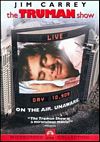
AMG REVIEW:
Recalling such satires of TV mania as Network (1976) and Real Life (1979), Peter Weir's The Truman Show (1998) takes aim at the consumers and creators of the ultimate TV celebrity-victim. Shooting from a number of "hidden camera" angles as Truman Burbank goes about his day, Weir blends the eponymous TV show with the film, complete with a "making of" documentary. With the perfection of the Seahaven "set" evincing a Twilight Zone creepiness, Truman's life is both banal family drama and sitcom, yet the slack-jawed viewers never turn it off; TV mastermind Christof is the deity the audience deserves. As Christof struggles to maintain control once Truman figures out the truth, the limits of Truman's life visualize his existential dilemma as a media-made entity -- and a metaphor for our own imprisonment in a culture defined by media and consumerism. The movie's brutal final image directs its criticisms as much at a passive, sensation-seeking audience as at those who provide the sensations; this cold climax deprives the movie of its potentially happy ending, turning its commentary back on the audience as might a Stanley Kubrick film. Originally written by Andrew Niccol in 1993, the film's critique was rendered all the more timely by such 1990s voyeuristic excesses as afternoon talk shows and MTV's The Real World; Jim Carrey's atypically low-key presence as Truman was in itself a comment on media stardom. A substantial summer hit, The Truman Show received Oscar nominations for Director, Screenplay, and Ed Harris's Machiavellian Christof, while critical kudos affirmed Carrey's dramatic talent. -- Lucia Bozzola
AWARDS:
Best Director (nom) - Peter Weir - 1998 Academy
Best Original Screenplay (nom) - Andrew Niccol - 1998 Academy
Best Supporting Actor (nom) - Ed Harris - 1998 Academy
Best Director (nom) - Peter Weir - 1998 Directors Guild of America
Best Actor in Drama (win) - Jim Carrey - 1998 Golden Globe
Best Original Score (win) - Burkhard Dallwitz - 1998 Golden Globe
Best Supporting Actor (win) - Ed Harris - 1998 Golden Globe
Best Production Design (Runner-up) (win) - Dennis Gassner - 1998 L.A. Film Critics Association


Like the TV series that shared the same title, The Untouchables (1987) was an account of the battle between gangster Al Capone and lawman Eliot Ness, this time in the form of a feature film boasting big stars, a big budget, and a script from respected playwright David Mamet. Kevin Costner stars as Ness, a federal agent who has come to Chicago during the Prohibition Era, when corruption in the local police department is rampant. His mission is to put crime lord Capone (Robert DeNiro) out of business, but Capone is so powerful and popular that Ness is not taken seriously by the law or the press. One night, discouraged, he meets a veteran patrolman, Jimmy Malone (Sean Connery), and discovers that the acerbic Irishman is the one honest man he's been seeking. Malone has soon helped Ness recruit a gunslinger rookie, George Stone (Andy Garcia) and, joined by nebbish accountant Oscar Wallace (Charles Martin Smith), the men doggedly pursue Capone and his illegal interests. At first a laughingstock, Ness soon has Capone outraged over his and Malone's sometimes law-bending tactics, and the vain mobster strikes back in vicious style. Ultimately, it is the most unexpected and minor of crimes, tax evasion, which proves Capone's undoing. All of the credits for The Untouchables boasted big names, including music from Ennio Morricone and costumes by Giorgio Armani. Director Brian DePalma continued his tradition of including a homage to past masters of the cinema with a taut stairway shoot-out reminiscent of a similar sequence in Sergei Eisenstein's The Battleship Potemkin (1925). -- Karl Williams
AMG REVIEW:
Brian DePalma's strikingly authentic re-creation of 1930s gangster films and Prohibition-era Chicago is dominated by the performance of Best Supporting Actor Oscar-winner Sean Connery as Jim Malone. Malone's mentorship of Elliot Ness (Kevin Costner), guiding him from his initial, Dudley Do Right-esque altruism to a more grimly realistic law enforcement agent, gives the film its emotional anchor. Costner's white-bread Ness and DeNiro's grandiose Capone pale in comparison to the charismatic Connery. Ennio Morricone's lush score and Stephen H. Burum's classy, high-gloss cinematography may romanticize the oft-gruesome violence, but both are well-suited to the approach taken by screenwriter David Mamet, who attempts to raise the pulp features from the original TV drama to high art. The film climaxes in a Grand Central Station shootout that is DePalma's stylish homage to the "Odessa steps" sequence in director Sergei Eisenstein's seminal Battleship Potemkin. -- Dan Jardine
AWARDS:
Best Art Direction (nom) - Patrizia Von Brandenstein - 1987 Academy
Best Art Direction (nom) - Hal G. Gausman - 1987 Academy
Best Costume Design (nom) - Marilyn Vance - 1987 Academy
Best Score (nom) - Ennio Morricone - 1987 Academy
Best Supporting Actor (win) - Sean Connery - 1987 Academy
Best Score (win) - Ennio Morricone - 1987 British Academy Awards
10 Best Films - 1987 National Board of Review of Motion Pict
Best Supporting Actor - 1987 National Board of Review of Motion Pict
Best Supporting Actor (nom) - Sean Connery - 1987 New York Film Critics Circle
Best Supporting Actor (nom) - Sean Connery - 1987 New York Film Critics Circle
Best Supporting Actor (win) - Sean Connery - 1988 Golden Globe
Best Supporting Actor (win) - 1988 Golden Globe





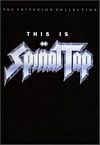
Largely improvised by director Rob Reiner and his cast, This is Spinal Tap looks and sounds like a "real" documentary, with Michael McKean, Harry Shearer, and Christopher Guest as David St. Hubbins, Derek Smalls, and Nigel Tufnel, the key members of a going-nowhere British heavy metal band called Spinal Tap. The "group" started as an informal skiffle band, eventually maturing into an R&B act called the Thamesmen (their hit was "Gimme Some Money"). After going through a psychedelic period with "Listen to the Flower People", the band mutated into Spinal Tap, a hard rock outfit responsible for such albums as "Intravenous DeMilo", "The Sun Never Sweats", and "Bent for the Rent". This Is Spinal Tap finds them in the midst of their first American tour in years as they support their new LP "Smell the Glove", with filmmaker Marty DiBergi (Rob Reiner), who specializes in TV commercials, on hand to document the occasion. Just about anything that can go wrong does; shows get canceled, stage props go wrong, wireless guitar pickups start broadcasting air-traffic reports, no one shows up for in-store appearances, David's girlfriend tries to take over the band, they wind up billed second to a puppet show at an amusement park, and the group teeters on the verge of breakup. After the film's initial release, McKean, Guest, and Shearer did a short club tour as Spinal Tap; the "band" reunited in 1992 for a new album, "Break Like the Wind", followed by a full-fledged tour and TV special, The Return Of Spinal Tap. -- Mark Deming
AMG REVIEW:
If there has ever been a funnier and truer film about rock music than This Is Spinal Tap, no one has had the courage to show it in public. Rob Reiner's hilarious mockumentary chronicle of the misadventures of a group of intellectually challenged British rock musicians touring the U.S. manages to laugh at and with its protagonists at the same time. While the unending cluelessness of Spinal Tap's core members, David St. Hubbins (Michael McKean, Nigel Tufnel (Christopher Guest), and Derek Smalls (Harry Shearer), is a marvel to behold (especially the scene in which Nigel is baffled by the miniature pumpernickel on the deli tray), the leading characters also exude a goofy charm. As we watch their career slowly collapse around them, it's difficult not to feel a certain sympathy while laughing at their travails (it helps that they've seen enough of this coming to be more annoyed than despairing about their careers). Guest, McKean, and Shearer, who improvised most of the film's material, all did time in rock bands in the 1960s and 1970s, and it seems as if they didn't forget a thing; no one who has ever been in a band, no matter how lowly, will fail to recognize the arguments at rehearsal, the on-stage screwups, the frustration of getting lost en route to a show, the thrill of hearing yourself on the radio, the chore of playing for an audience that doesn't care, and the excitement of a show that goes over. While This Is Spinal Tap takes deadly (and wildly funny) aim at the absurdities of the music business and the pompous excesses of the Heavy Metal scene, it's also made by people who understand the kick of a good rock show (for both performer and audience), and much of the humor comes from the fact that this seemingly absurd tale is not far at all from the truth. -- Mark Deming

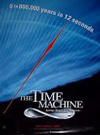

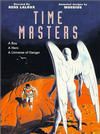



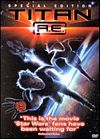
AMG REVIEW:
Classic animation and state-of-the-art computer-generated imagery combine in this visually impressive animated epic that ultimately falls flat due to a clichéd, highly formulaic script that's a hodgepodge of ideas and characters from other science fiction films. Like so many of the recent films from animator and co-director Don Bluth, Titan A.E. boasts impressive technical credits and aesthetic polish but lacks a foundation in storytelling that would make the project compelling. While Bluth's tales usually seem to be strongly influenced by Disney, he chooses this time to reference several live-action sci-fi classics, among them Star Wars (1977), The Last Starfighter (1984), and Independence Day (1996), all of which had greater box-office success. In fact, Titan A.E. was such a financial disappointment for studio 20th Century Fox that plans for a full-time animation studio were scrapped in the wake of the film's failure. -- Karl Williams

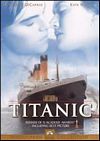
This spectacular epic re-creates the ill-fated maiden voyage of the White Star Line's $7.5 million R.M.S Titanic and the tragic sea disaster of April 15, 1912. Running over three hours and made with the combined contributions of two major studios (20th Century-Fox, Paramount) at a cost of more than $200 million, Titanic ranked as the most expensive film in Hollywood history at the time of its release, and became the most successful. Writer-director James Cameron employed state-of-the-art digital special effects for this production, realized on a monumental scale and spanning eight decades. Inspired by the 1985 discovery of the Titanic in the North Atlantic, the contemporary storyline involves American treasure-seeker Brock Lovett (Bill Paxton) retrieving artifacts from the submerged ship. Lovett looks for diamonds but finds a drawing of a young woman, nude except for a necklace. When 102-year-old Rose (Gloria Stuart) reveals she's the person in the portrait, she is summoned to the wreckage site to tell her story of the 56-carat diamond necklace and her experiences of 84 years earlier. The scene then shifts to 1912 Southampton where passengers boarding the Titanic include penniless Jack Dawson (Leonardo DiCaprio) and society girl Rose DeWitt Bukater (Kate Winslet), returning to Philadelphia with her wealthy fiance Cal Hockley (Billy Zane). After the April 10th launch, Rose develops a passionate interest in Jack, and Cal's reaction is vengeful. At midpoint in the film, the Titanic slides against the iceberg and water rushes into the front compartments. Even engulfed, Cal continues to pursue Jack and Rose as the massive liner begins its descent. Cameron launched the project after seeing Robert Ballard's 1987 National Geographic documentary on the wreckage. Blueprints of the real Titanic were followed during construction at Fox's custom-built Rosarito, Mexico studio, where a hydraulics system moved an immense model in a 17-million-gallon water tank. During three weeks aboard the Russian ship Academik Keldysh, underwater sequences were filmed with a 35mm camera in a titanium case mounted on the Russian submersible Mir 1. When the submersible neared the wreck, a video camera inside a remote-operated vehicle was sent into the Titanic's 400-foot bow, bringing back footage of staterooms, furniture and chandeliers. On November 1, 1997, the film had its world premiere at the 10th Tokyo International Film Festival. -- Bhob Stewart
AMG REVIEW:
Size of all sorts mattered for James Cameron's blockbuster Titanic, whose magnitude was in all ways unprecedented. Cameron and two studios spent $200 million on a 90% scale Titanic replica at a newly constructed Mexico studio; their efforts included duplicating furnishings from original Titanic designs, diving trips to shoot footage of the wreck with a specially designed underwater camera, and months of post-production on computer effects ranging from overhead "shots" of the Titanic at sea to characters' puffs of freezing breath. Delayed several months and beseiged by negative word-of-mouth, Titanic finally opened to rave reviews, especially for its bravura visuals. A few doubts were expressed over the Jack-Rose romance, but nothing could beat the spectacular recreation of the ship sinking or the powerful image of the floating corpse field. That love story, however, proved a potent draw, as Leonardo Di Caprio fans (many of them teenage girls) came back for repeat viewings, helping to power Titanic to a sojourn of more than 3 months at the top of the U.S. box office; the most expensive film ever made became a titanic moneymaker, grossing over $1.6 billion internationally. Cameron's coronation as blockbuster artist arrived when Titanic received a record-tying 14 Oscar nominations (like 1950's All About Eve) and won a record-tying 11 (like 1959's Ben-Hur). Cameron's screenplay, however, was ignored. -- Lucia Bozzola
AWARDS:
Best Actress (nom) - Kate Winslet - 1997 Academy
Best Art Direction-Set Decoration (win) - Michael Ford - 1997 Academy
Best Art Direction-Set Decoration (win) - Peter Lamont - 1997 Academy
Best Cinematography (win) - Russell Carpenter - 1997 Academy
Best Costume Design (win) - Deborah Scott - 1997 Academy
Best Director (win) - James Cameron - 1997 Academy
Best Film Editing (win) - Richard A. Harris - 1997 Academy
Best Film Editing (win) - James Cameron - 1997 Academy
Best Film Editing (win) - Conrad Buff - 1997 Academy
Best Makeup (nom) - Earnshaw, Tina - 1997 Academy
Best Makeup (nom) - Thompson, Simon - 1997 Academy
Best Makeup (nom) - Greg Cannom - 1997 Academy
Best Original Dramatic Score (win) - James Horner - 1997 Academy
Best Picture (win) - 1997 Academy
Best Song (win) - Will Jennings - 1997 Academy
Best Song (win) - James Horner - 1997 Academy
Best Sound (win) - Gary Summers - 1997 Academy
Best Sound (win) - Tom Johnson - 1997 Academy
Best Sound (win) - Mark Ulano - 1997 Academy
Best Sound (win) - Gary Rydstrom - 1997 Academy
Best Sound Effects Editing (win) - Christopher Boyes - 1997 Academy
Best Sound Effects Editing (win) - Tom Bellfort - 1997 Academy
Best Supporting Actress (nom) - Gloria Stuart - 1997 Academy
Best Visual Effects (nom) - Kanfer, Michael - 1997 Academy
Best Visual Effects (win) - Lasoff, Mark - 1997 Academy
Best Visual Effects (win) - Thomas Fisher - 1997 Academy
Best Visual Effects (win) - Rob Legato - 1997 Academy
Best Director (win) - James Cameron - 1997 Broadcast Film Critics Association
Best Director (win) - James Cameron - 1997 Directors Guild of America
Best Actor in a Dramatic Picture (nom) - Leonardo DiCaprio - 1997 Golden Globe
Best Actress in a Dramatic Picture (nom) - Kate Winslet - 1997 Golden Globe
Best Director (win) - James Cameron - 1997 Golden Globe
Best Dramatic Picture (win) - 1997 Golden Globe
Best Original Score (win) - James Horner - 1997 Golden Globe
Best Original Song (win) - James Horner - 1997 Golden Globe
Best Original Song (win) - Will Jennings - 1997 Golden Globe
Best Screenplay (nom) - James Cameron - 1997 Golden Globe
Best Supporting Actress (nom) - Gloria Stuart - 1997 Golden Globe
Best Production Design (win) - Peter Lamont - 1997 L.A. Film Critics Association
Best Foreign Language Film (nom) - 1998 French Academy of Cinema

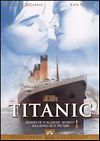
This spectacular epic re-creates the ill-fated maiden voyage of the White Star Line's $7.5 million R.M.S Titanic and the tragic sea disaster of April 15, 1912. Running over three hours and made with the combined contributions of two major studios (20th Century-Fox, Paramount) at a cost of more than $200 million, Titanic ranked as the most expensive film in Hollywood history at the time of its release, and became the most successful. Writer-director James Cameron employed state-of-the-art digital special effects for this production, realized on a monumental scale and spanning eight decades. Inspired by the 1985 discovery of the Titanic in the North Atlantic, the contemporary storyline involves American treasure-seeker Brock Lovett (Bill Paxton) retrieving artifacts from the submerged ship. Lovett looks for diamonds but finds a drawing of a young woman, nude except for a necklace. When 102-year-old Rose (Gloria Stuart) reveals she's the person in the portrait, she is summoned to the wreckage site to tell her story of the 56-carat diamond necklace and her experiences of 84 years earlier. The scene then shifts to 1912 Southampton where passengers boarding the Titanic include penniless Jack Dawson (Leonardo DiCaprio) and society girl Rose DeWitt Bukater (Kate Winslet), returning to Philadelphia with her wealthy fiance Cal Hockley (Billy Zane). After the April 10th launch, Rose develops a passionate interest in Jack, and Cal's reaction is vengeful. At midpoint in the film, the Titanic slides against the iceberg and water rushes into the front compartments. Even engulfed, Cal continues to pursue Jack and Rose as the massive liner begins its descent. Cameron launched the project after seeing Robert Ballard's 1987 National Geographic documentary on the wreckage. Blueprints of the real Titanic were followed during construction at Fox's custom-built Rosarito, Mexico studio, where a hydraulics system moved an immense model in a 17-million-gallon water tank. During three weeks aboard the Russian ship Academik Keldysh, underwater sequences were filmed with a 35mm camera in a titanium case mounted on the Russian submersible Mir 1. When the submersible neared the wreck, a video camera inside a remote-operated vehicle was sent into the Titanic's 400-foot bow, bringing back footage of staterooms, furniture and chandeliers. On November 1, 1997, the film had its world premiere at the 10th Tokyo International Film Festival. -- Bhob Stewart
AMG REVIEW:
Size of all sorts mattered for James Cameron's blockbuster Titanic, whose magnitude was in all ways unprecedented. Cameron and two studios spent $200 million on a 90% scale Titanic replica at a newly constructed Mexico studio; their efforts included duplicating furnishings from original Titanic designs, diving trips to shoot footage of the wreck with a specially designed underwater camera, and months of post-production on computer effects ranging from overhead "shots" of the Titanic at sea to characters' puffs of freezing breath. Delayed several months and beseiged by negative word-of-mouth, Titanic finally opened to rave reviews, especially for its bravura visuals. A few doubts were expressed over the Jack-Rose romance, but nothing could beat the spectacular recreation of the ship sinking or the powerful image of the floating corpse field. That love story, however, proved a potent draw, as Leonardo Di Caprio fans (many of them teenage girls) came back for repeat viewings, helping to power Titanic to a sojourn of more than 3 months at the top of the U.S. box office; the most expensive film ever made became a titanic moneymaker, grossing over $1.6 billion internationally. Cameron's coronation as blockbuster artist arrived when Titanic received a record-tying 14 Oscar nominations (like 1950's All About Eve) and won a record-tying 11 (like 1959's Ben-Hur). Cameron's screenplay, however, was ignored. -- Lucia Bozzola
AWARDS:
Best Actress (nom) - Kate Winslet - 1997 Academy
Best Art Direction-Set Decoration (win) - Michael Ford - 1997 Academy
Best Art Direction-Set Decoration (win) - Peter Lamont - 1997 Academy
Best Cinematography (win) - Russell Carpenter - 1997 Academy
Best Costume Design (win) - Deborah Scott - 1997 Academy
Best Director (win) - James Cameron - 1997 Academy
Best Film Editing (win) - Richard A. Harris - 1997 Academy
Best Film Editing (win) - James Cameron - 1997 Academy
Best Film Editing (win) - Conrad Buff - 1997 Academy
Best Makeup (nom) - Earnshaw, Tina - 1997 Academy
Best Makeup (nom) - Thompson, Simon - 1997 Academy
Best Makeup (nom) - Greg Cannom - 1997 Academy
Best Original Dramatic Score (win) - James Horner - 1997 Academy
Best Picture (win) - 1997 Academy
Best Song (win) - Will Jennings - 1997 Academy
Best Song (win) - James Horner - 1997 Academy
Best Sound (win) - Gary Summers - 1997 Academy
Best Sound (win) - Tom Johnson - 1997 Academy
Best Sound (win) - Mark Ulano - 1997 Academy
Best Sound (win) - Gary Rydstrom - 1997 Academy
Best Sound Effects Editing (win) - Christopher Boyes - 1997 Academy
Best Sound Effects Editing (win) - Tom Bellfort - 1997 Academy
Best Supporting Actress (nom) - Gloria Stuart - 1997 Academy
Best Visual Effects (nom) - Kanfer, Michael - 1997 Academy
Best Visual Effects (win) - Lasoff, Mark - 1997 Academy
Best Visual Effects (win) - Thomas Fisher - 1997 Academy
Best Visual Effects (win) - Rob Legato - 1997 Academy
Best Director (win) - James Cameron - 1997 Broadcast Film Critics Association
Best Director (win) - James Cameron - 1997 Directors Guild of America
Best Actor in a Dramatic Picture (nom) - Leonardo DiCaprio - 1997 Golden Globe
Best Actress in a Dramatic Picture (nom) - Kate Winslet - 1997 Golden Globe
Best Director (win) - James Cameron - 1997 Golden Globe
Best Dramatic Picture (win) - 1997 Golden Globe
Best Original Score (win) - James Horner - 1997 Golden Globe
Best Original Song (win) - James Horner - 1997 Golden Globe
Best Original Song (win) - Will Jennings - 1997 Golden Globe
Best Screenplay (nom) - James Cameron - 1997 Golden Globe
Best Supporting Actress (nom) - Gloria Stuart - 1997 Golden Globe
Best Production Design (win) - Peter Lamont - 1997 L.A. Film Critics Association
Best Foreign Language Film (nom) - 1998 French Academy of Cinema

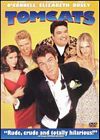
This romantic comedy in the vein of There's Something About Mary and American Pie concerns the story of Michael Delaney (Jerry O'Connell), a struggling cartoonist who makes a bet with seven buddies over who will be the last to marry. Several years later, the pot has boiled down to two: Michael, who is battling gambling debts in Las Vegas, and diehard bachelor Kyle Bremmer (Jake Busey), who is a self-proclaimed ladies' man. Michael tries to get Kyle to wed within 30 days in order to rescue himself from financial turmoil. When Natalie (Shannon Elizabeth) enters the picture as Kyle's new intended bride (as set up by Michael), she and Michael end up falling for one another, setting up a competition for her affections by the two men. Tomcats is the feature directorial debut for screenwriter Gregory Poirier. -- Jason Clark
AMG REVIEW:
As curiously misguided as a T & A comedy can get -- especially because it doesn't provide, at a bare minimum, the T & A -- Gregory Poirier's Tomcats is a tutorial in inept filmmaking, its flaws as perversely fascinating as a train wreck. It starts with a decent, if misogynistic, idea: a group of college buddies makes a bet to see who can go the longest without marrying, with years of mutual fund accumulations as the spoils. But instead of exploring the high/lowlights of the contest, Tomcats excises almost all of its side characters, skips ahead in time until only two are left, then sets them on a meandering series of overlong set pieces that defy all conventions for narrative cohesion. Wickedly telling examples include Jerry O'Connell's lengthy courtship of a librarian, which exists only to set up a laborious punch line about a geriatric dominatrix, and the bizarre scene in which cop Shannon Elizabeth and her partner discuss love lives while blowing away a house full of criminals. In the meantime, whole characters and subplots are abandoned for 30 to 45 minutes at a stretch. One vulgar scene scares up gales of surprised, wincing laughter, but does not come close to saving the flick. It's nice that O'Connell has grown out of his tubby phase from Stand By Me into a chiseled stud blessed with vacant charm, but roles like this make him into a different kind of embarrassment. Released within months of the moronic David Arquette vehicle See Spot Run, which Poirier wrote, Tomcats solidified its writer/director's reputation as emblematic of Hollywood's most socially bankrupt tendencies. -- Derek Armstrong











Mark Renton (Ewan McGregor), a young man with few prospects and fewer ambitions, lives in economically depressed Edinburgh. Like most of his friends, Renton is a heroin addict who loves the drug's blissful nothingness; financing his habit also provides excitement and challenges that his life otherwise lacks. Renton's two best friends are also junkies: Sick Boy (Jonny Lee Miller), a snappy dresser obsessed with James Bond, and Spud (Ewan Bremner), a guileless nerd who suggests Pee Wee Herman's debauched cousin. Renton and his pals also hang out with Begbie (Robert Carlyle), a borderline psychotic who loathes junkies even though he drinks like a fish. After one too many brushes with the law, Renton kicks heroin and moves to London, where he finds a job, a flat, and something close to peace of mind. However, Sick Boy, Begbie, and Spud all arrive at his doorstep on the trail of a big score, leading Renton back into drugs and crime. -- Mark Deming
AMG REVIEW:
A film that shows what makes heroin addictive without glorifying it, Trainspotting was one of the most popular and controversial British films of the 1990s. Exploding with morbid wit, kinetic energy, and fatalistic insight, it jolted critics and audiences regardless of whether or not they actually liked it. A twisting, riff-filled, almost plot-free story, Irvine Welsh's novel was almost unfilmable in its original form. The screen adaptation successfully streamlined Welsh's ungainly material into a slick social commentary that smoothed the book's rough edges without losing its vitriol and insight. Trainspotting is not merely about drug addiction, but about the relationship between wasted youth and the spiritually bankrupt society that has alienated them. Another of the film's great strengths was its ensemble casting of Ewan McGregor, Robert Carlyle, Jonny Lee Miller, and Ewen Bremner. McGregor and Carlyle, in particular, turned in star-making performances as Renton, the film's affable narrator, and Begbie, its resident psychotic drunk. Their work, and that of their co-stars, makes for such compulsively enjoyable viewing that, fittingly enough, you'll have a hard time coming down afterwards. -- Rebecca Flint
AWARDS:
Best Adapted Screenplay - John Hodge - 1996 Academy


AMG REVIEW:
Despite an intriguing premise, a few trashy thrills and several moments of genuine suspense, this abduction drama transforms into a dumb action flick halfway through. As usual, Kevin Bacon oozes reptilian charm in the role of the chief kidnapper. He may stray too often into such safe material as He Said, She Said, but this is an actor who was clearly born to play villains. Fans of the performer's full-frontal turns in Wild Things and Hollow Man will no doubt enjoy the constant anxiety about Bacon's, well, bacon. Courtney Love, however, fails to reveal much except her continuing propensity for playing emotionally and physically bruised victims. Her character is a mess, but the actress fails to delineate why, although to be fair, she's the victim of thin writing. The same is true of Stuart Townsend and Charlize Theron, who play the sort of bland, upper upper middle-class cyphers who only exist in Hollywood thrillers -- the kind with fewer tics and peculiarities than your average extra. (Bonus points to Theron, however, for convincingly clenching a surgical scalpel between her buttocks during a crucial seduction/revenge scene.) Picking on the poor stars, however, would be as mean-spirited as blaming young Dakota Fanning for playing such an absurdly precocious little moppet. The real problems are Greg Iles's silly screenplay and Luis Mandoki's bombastic direction. By the time the finale rolls around, replete with an aerial landing in the middle of a busy highway, the sub-Bruckheimer set pieces and glaring plot holes have long since ceased to amuse. Turn instead to David Fincher's taut Panic Room for a more effective and enjoyable contemporary kidnap thriller. -- Brian J. Dillard





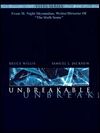
Actor Bruce Willis and writer/director M. Night Shyamalan reunite after the surprise success of The Sixth Sense for this supernatural thriller. David Dunne (Willis) is taking a train from New York City back home to Philadelphia after a job interview that didn't go well when his car jumps the tracks and collides with an oncoming engine, with David the only survivor among the 131 passengers on board. Astoundingly, David is not only alive, he hardly seems to have been touched. As David wonders what has happened to him and why he was able to walk away, he encounters a mysterious stranger, Elijah Prince (Samuel L. Jackson), who explains to David that there are a certain number of people who are "unbreakable" -- they have remarkable endurance and courage, a predisposition toward dangerous behavior, and feel invincible but also have strange premonitions of terrible events. Is David "unbreakable"? And if he is, what are the physical and psychological ramifications of this knowledge? Unbreakable also stars Robin Wright-Penn as Megan, David's wife; the supporting cast includes Spencer Treat Clark and Joey Perillo. -- Mark Deming
AMG REVIEW:
This follow-up to M. Night Shyamalan's out-of-nowhere breakout smash The Sixth Sense retains that film's deliberate pacing and attention to detail, but has more on its mind. This makes Unbreakable an even more ambitious and intriguing picture, even if the film's resolution leaves the viewer in the lurch by not realizing its full potential. A bold take on the mythology of comic books and realizing one's fate, the film is closest to the spirit of Alfred Hitchcock, who, like Shyamalan, lures viewers in one direction only to draw attention to something completely different when they least expect it. This is one of the film's strongest points: it is genuinely unpredictable and, until its wrap-up, feels as if it was helmed by a true visionary. Bruce Willis is quietly powerful in a rare interior role, fully engaging the viewer with his unshowy, sympathetic portrayal of a conflicted individual. While no Sixth Sense in terms of popularity, Unbreakable was still a box-office champ, despite polarizing much of its core audience. Interestingly, Shyamalan intended this film to be part of a planned trilogy, all of which would further explore Willis' character. -- Jason Clark

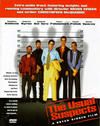



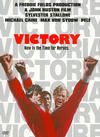


The contrast between modern, urban civilization and life in the natural world lies at the heart of Nicolas Roeg's visually dazzling drama Walkabout. In broad outline, the plot might resemble a standard fish-out-of-water tale: two city children become stranded in the Australian outback, and struggle to find their way back to civilization with the help of a friendly aborigine boy. But Roeg and screenwriter Edward Bond are concerned with far more than the average wilderness drama, as a shocking act of violence near the story's beginning makes clear. This is particularly true in regards to the relationship between the white children and the aborigine boy, who ultimately develops a troubled romantic attraction towards the older sister. Obviously intended as a statement on the exploitation of the natural world and native cultures by European civilization, the film nevertheless maintains an evocative vagueness that usually -- but not always -- favors poetry over didacticism. Most importantly, the film's justifiably acclaimed cinematography is likely to sway even those who find fault with the film's narrative and message. The shift between the sterile city images and the truly stunning, beautifully composed Australian landscapes provide the film's single best argument, making the film a vivid and convincing experience. -- Judd Blaise
AMG REVIEW:
Arguably director Nicolas Roeg's most enduring success, Walkabout is a complex, poetic cinematic experience. Roeg's overactive sense of symbolism is well-suited to the films themes of loneliness, alienation and social consciousness. Walkabout retains the director's offbeat style -- very little dialogue, shifting points of view, graphic, often shocking images, and an almost misanthropic world view -- but has a coherence and emotional depth missing from much of his later work. Though film's plot is often fascinating, it is Roeg's use of the camera -- both in broad strokes and minute observations -- that propels the film. He treats his characters as just one aspect of the sumptuous beauty and horror at play in the Australian outback. -- Brendon Hanley
AWARDS:
Competing Film - Nicolas Roeg - 1971 Cannes Film Festival




Immerse yourself in 90 minutes of adventurous animation in this collection of short subjects first featured on MTV's ground-breaking animated-art showcase, Liquid Television. -- Mark Deming

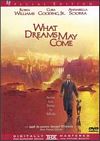
AMG REVIEW:
The Vincent Ward-directed What Dreams May Come had the misfortune of arriving just as public tolerance for Robin Williams in sentimental roles was waning dramatically. Though the much-seen Patch Adams was still to come,Dreams doubtlessly suffered from the rejection of those already burned by Fathers' Day, Jack, and their ilk -- which is too bad. Though the film treads the dangerous line between spirituality and kitsch, its deeply imaginative vision of the afterlife is both memorable -- especially the production design -- and moving. In many ways, it's a triumph of low expectations. Williams, Sciorra, and Gooding all turn in affecting performances. Similarly, screenwriter Ronald Bass may seem like the wrong person to tame the New Age qualities of Richard Matheson's story but, like the work of Krystof Kieslowski (if not quite in the same league) and the film The Sixth Sense, Ward proves that bad metaphysics can be converted into highly effective metaphors. Though not without its excesses, any film that can get away with scenes of a despondent Williams wandering paradise with his beloved pooch demonstrates an admirable ability to succeed on its own unique terms. Look fast for Werner Herzog as one of Hell's lost souls. -- Keith Phipps
AWARDS:
Best Art Direction/Set Decoration (nom) - Eugenio Zanetti - 1998 Academy
Best Art Direction/Set Decoration (nom) - Cindy Carr - 1998 Academy
Best Visual Effects (win) - Kevin Mack - 1998 Academy
Best Visual Effects (win) - Nicholas Brooks - 1998 Academy
Best Visual Effects (win) - Stuart Robertson - 1998 Academy
Best Visual Effects (win) - Joel Hynek - 1998 Academy







This epic film tells the story of the first space flight on a parallel Earth. The film focuses on the young hero Shirotzugh Lhadatto who signs up for the space program after failing the entrance exam for the royal navy. Unfortunately, the space program is not taken seriously by the government, but against all odds the program succeeds and Shirotzugh becomes the first astronaut. The picture features an original score by Oscar winner Ryuichi Sakamoto. -- Brian Whitener

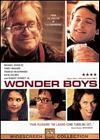
AMG REVIEW:
Following the triumph that was L.A. Confidential, director Curtis Hanson proves that film was no mere fluke with this beautifully written, expertly acted comedy that recalls the looseness and offbeat sensibilities of the best cinema of the 1970s. Michael Douglas wonderfully casts aside his typical onscreen persona to create a shaggy, likable lead character who looks and sounds like an actual human being. The performers surrounding him are equally impressive, especially Tobey Maguire, whose man-in-the-moon visage and natural coolness are put to perfect use in a touching portrayal. Steve Kloves' script is filled with remarkable insights, but is also perfectly modulated, never forgetting that the chief concern of a movie is to entertain and enlighten, and the movie duly prevails on both fronts. In a rare act of faith, Paramount Pictures decided to re-release this gem after an unsuccessful early 2000 run, blaming a poor marketing plan and lack of focus on its luminous supporting cast; the film was also re-released to remind Academy voters of its quality when they were filling out their year-end ballots, who responded only by acknowledging Kloves' adaptation and Bob Dylan's original song with nominations. -- Jason Clark
AWARDS:
Best Adapted Screenplay (nom) - Steve Kloves - 2000 Academy
Best Editing (nom) - Dede Allen - 2000 Academy
Best Song (win) - Bob Dylan - 2000 Academy
AFI's Top 10 Films of the Year (win) - 2000 American Film Institute
Best Actor (nom) - Michael Douglas - 2000 British Academy Awards
Best Adapted Screenplay (nom) - Steve Kloves - 2000 British Academy Awards
Best Adapted Screenplay (win) - Steve Kloves - 2000 Broadcast Film Critics Association
Best Supporting Actress (win) - Frances McDormand - 2000 Broadcast Film Critics Association
Best Actor - Drama (nom) - Michael Douglas - 2000 Golden Globe
Best Motion Picture - Drama (nom) - 2000 Golden Globe
Best Original Song (win) - Bob Dylan - 2000 Golden Globe
Best Screenplay (nom) - Steve Kloves - 2000 Golden Globe
Best Actor (win) - Michael Douglas - 2000 L.A. Film Critics Association
Best Supporting Actress (win) - Frances McDormand - 2000 L.A. Film Critics Association
#8 Film of the Year (win) - 2000 National Board of Review
Best Adapted Screenplay (nom) - Steve Kloves - 2000 Writers Guild of America





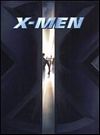
One of the most popular superhero teams in comic book history finally comes to the screen in this big-budget adaptation of the long-running Marvel Comics series. Psychic Professor Xavier (Patrick Stewart) leads a school of skilled mutants called X-Men, a peacekeeping force to safeguard the world against a race of genetically mutated humans known as Homo Sapiens Superior. However, Magneto (Ian McKellen), a mutant with a powerful magnetic charge, has also begun to organize a team to strike first against what he believes to be a threat from humanity. When he kidnaps Rogue (Anna Paquin) from the X-Men's compound, Xavier and his forces must rescue her, even as they continue to vie with Magneto for the fearsomely strong mutant battler Wolverine (Hugh Jackman). Both Xavier and Magneto also have to contend with Senator Kelly (Bruce Davison), a heartless political leader who wants a final solution against mutants on both sides. Fighting for the forces of virtue with the X-Men are Famke Janssen as Jean Grey, Halle Berry as Storm, and James Marsden as Cyclops; Rebecca Romjin-Stamos as Mystique, Ray Park as the Toad, and Tyler Mane as Sabretooth are the minions of Magneto. -- Mark Deming
AMG REVIEW:
Considered by comic book fans to be one of the better film adaptations to spring from the pulp genre, X-Men is an exciting, well-crafted action picture that shuttles the career of director Bryan Singer from the world of low-budget, independent filmmaking into the mainstream studio fold. The film's Achilles heel is its complicated juggling act of multiple characters and plot lines, but Singer must be forgiven for squeezing a story that has unfolded over 30 years into a two-hour time frame. For the most part he succeeds admirably, maintaining an obvious affection and regard for his tale's comic book roots and making the essential artistic choice of taking it all seriously (as the series of sequels that followed Batman (1989) prove, a tongue-in-cheek approach can become quickly wearisome). Singer also scores on the casting front, with strong performances from several of his key players, most notably veterans Patrick Stewart and Ian McKellen. The cast standout, however, is Australian newcomer Hugh Jackman, who bites into his role of Wolverine with leonine aggression, preserving a sense of latent intelligence just under the surface of his broiling, testosterone-fueled anger. X-Men will make Jackman a star, and with a healthy box-office tally, it's a safe bet that 20th Century Fox will be making a sequel. -- Karl Williams



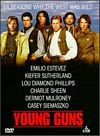
In this Western based loosely on actual events and people, Emilio Estevez stars as William H. Bonney (aka Billy the Kid). Sought for a petty crime in Lincoln County, Billy is taken in by John Tunstall (Terrence Stamp), a British ranch owner seeking to make it in the cattle business. Tunstall employs a group of "regulators," comprised of wayward youths he's gathered over the years, to watch over his ranch; in turn, he teaches them how to read and reforms them into better men. Tunstall's business interests come into conflict with those of corrupt and murderous businessman Lawrence Murphy (Jack Palance), whose widespread connections make him a power to be reckoned with. When Tunstall won't budge from his right to pursue a living, Murphy's henchmen stage an ambush and kill him. This triggers a vow of vengeance from the quick-tempered Billy and his five fellow regulators, who are deputized to serve arrest warrants in the murder. However, when Billy decides to gun down the suspects instead of detaining them, his loyal pals become accessories in a vigilante spree to wipe the territory clean of Murphy and his web of conspirators. Soon, the supposed lawmen are on the run from bounty hunters, henchmen, and government soldiers, from all directions of the compass. This box-office hit also stars Charlie Sheen, Kiefer Sutherland, Lou Diamond Phillips, Dermot Mulroney, and Casey Siemaszko. -- Derek Armstrong
AMG REVIEW:
Young Guns was surprisingly successful at taking a rusty genre, the Western, and making it accessible and interesting to the Brat Pack generation. The result is a popcorn film popular enough to have spawned a sequel two years later, yet not good enough to land on many lists of favorite Westerns. Still, it's not as conventional as one might expect. For starters, Emilio Estevez's Billy the Kid is far more gleefully sadistic than most other Western antiheroes get to be, especially those designed for the consumption of teenagers. The film also features a narratively unimportant yet strangely fascinating sequence in which the characters trip on peyote, complete with vomit, dangerously aimless shotgun blasts, and an underwater-sounding audio track that seems like an experimental coup on the part of director Christopher Cain. Add in the premature death of one of the film's biggest stars, and Young Guns is not as easy to telegraph as it should be. Still, it's not as exciting as it should be, either -- the climactic set piece is the only sustained gun battle, and it gets resolved extremely improbably. While the back stories of the key characters are meant to give them soul, they are clumsily handled, particularly Kiefer Sutherland's tacked-on affair with a Chinese girl enslaved by his enemy. Young Guns has a certain comforting familiarity to its target audience, but not much of a following beyond that. -- Derek Armstrong

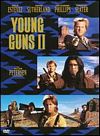
Only three of the original five "young guns" -- Billy the Kid (Emilio Estevez), Jose Chavez y Chavez (Lou Diamond Phillips), and Doc Scurlock (Kiefer Sutherland) -- return in Young Guns, Part 2, which is the story of Billy the Kid and his race to safety in Old Mexico while being trailed by a group of government agents led by Pat Garrett (William Petersen). Along the way, Billy's crew gains three new recruits: Arkansas Dave Rudabaugh (Christian Slater), Tom O'Folliard (Balthazar Getty), and Hendry French (Alan Ruck). Though the film suffers from an uneven script, many performances -- particularly Slater's -- are surprisingly strong, and the movie looks great. The theme song, "Blaze of Glory", is performed by Jon Bon Jovi in his first solo appearance; the rocker also has a cameo in the film. -- Stephen Thomas Erlewine
AMG REVIEW:
The sequel to the successful brat pack Western Young Guns (1988), Geoff Murphy's film is equally devoid of talent. The film follows Billy the Kid's (Emilio Estevez) attempts to elude a posse led by Sheriff Pat Garrett (William Petersen) in the company of his bad guy peers: Kiefer Sutherland, Christian Slater, and Lou Diamond Phillips. Mostly a showcase for adolescent posturing, the film labors to make its bad guys heroic in the Peckinpah mold, but neither the formulaic script nor the mediocre acting come anywhere near that level. Petersen, as the laconic sheriff, is the only actor who seems to be doing more than phoning his part in. -- Michael Costello
AWARDS:
Best Song (nom) - Jon Bon Jovi - 1990 Academy
Best Original Song (win) - Jon Bon Jovi - 1991 Golden Globe